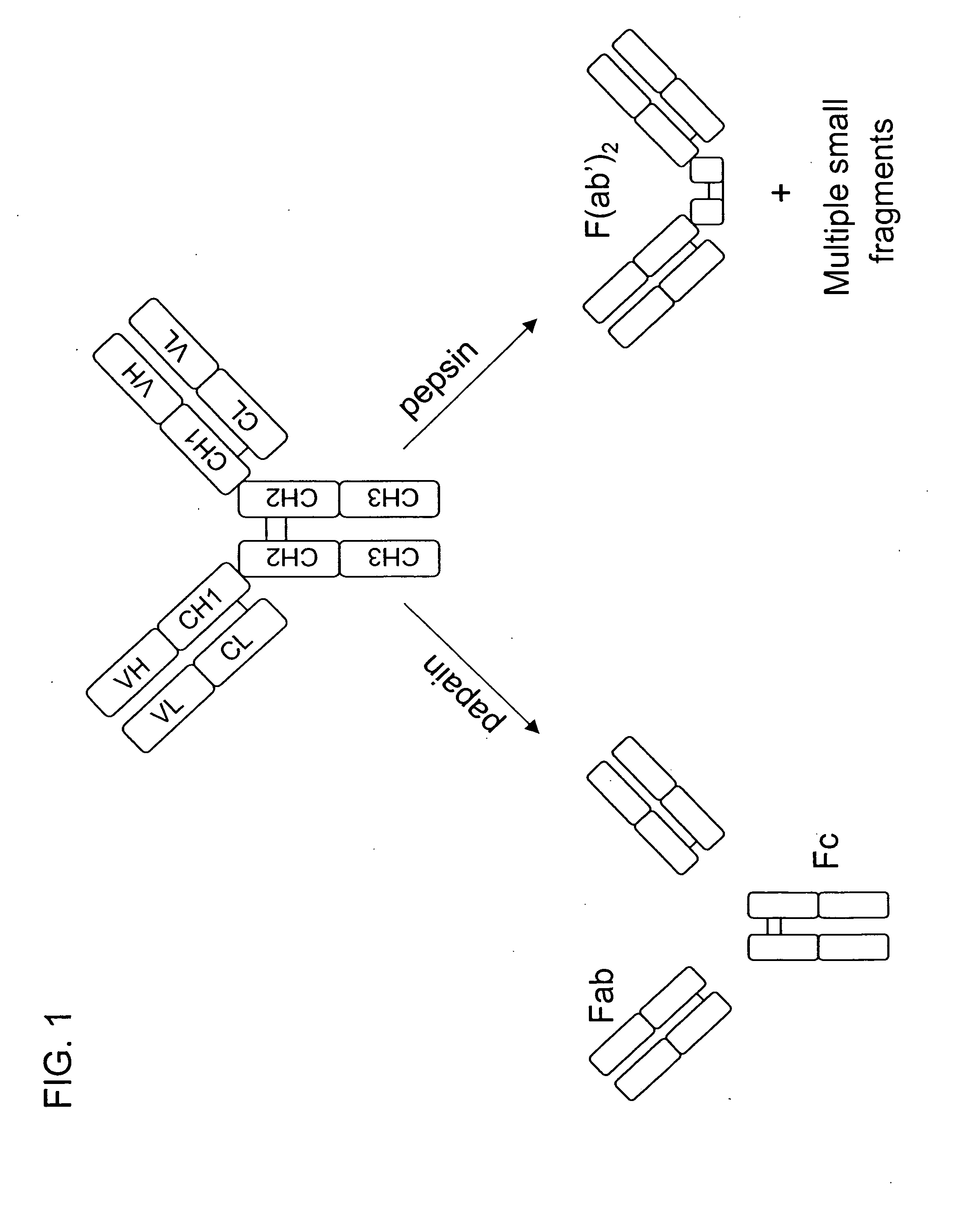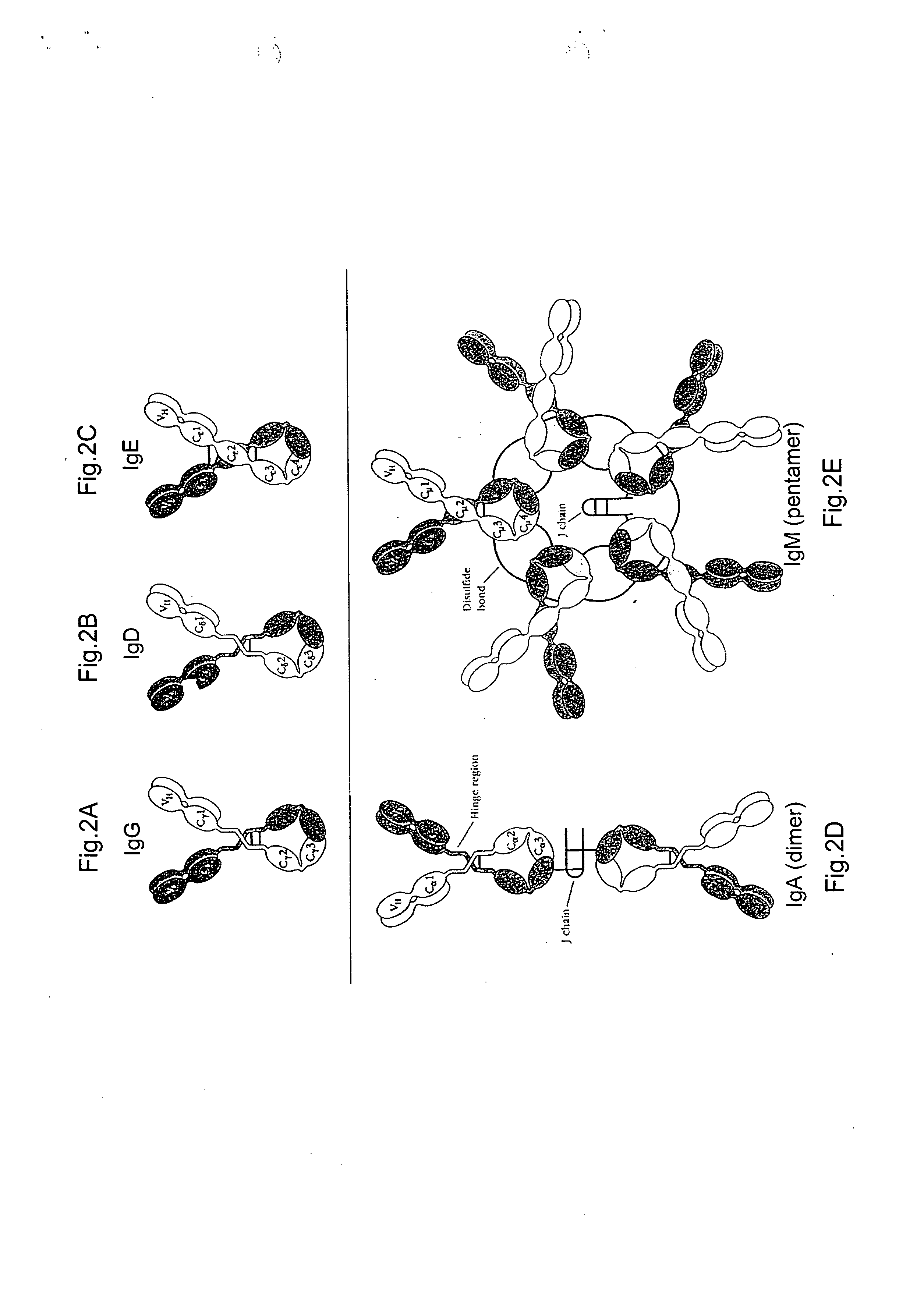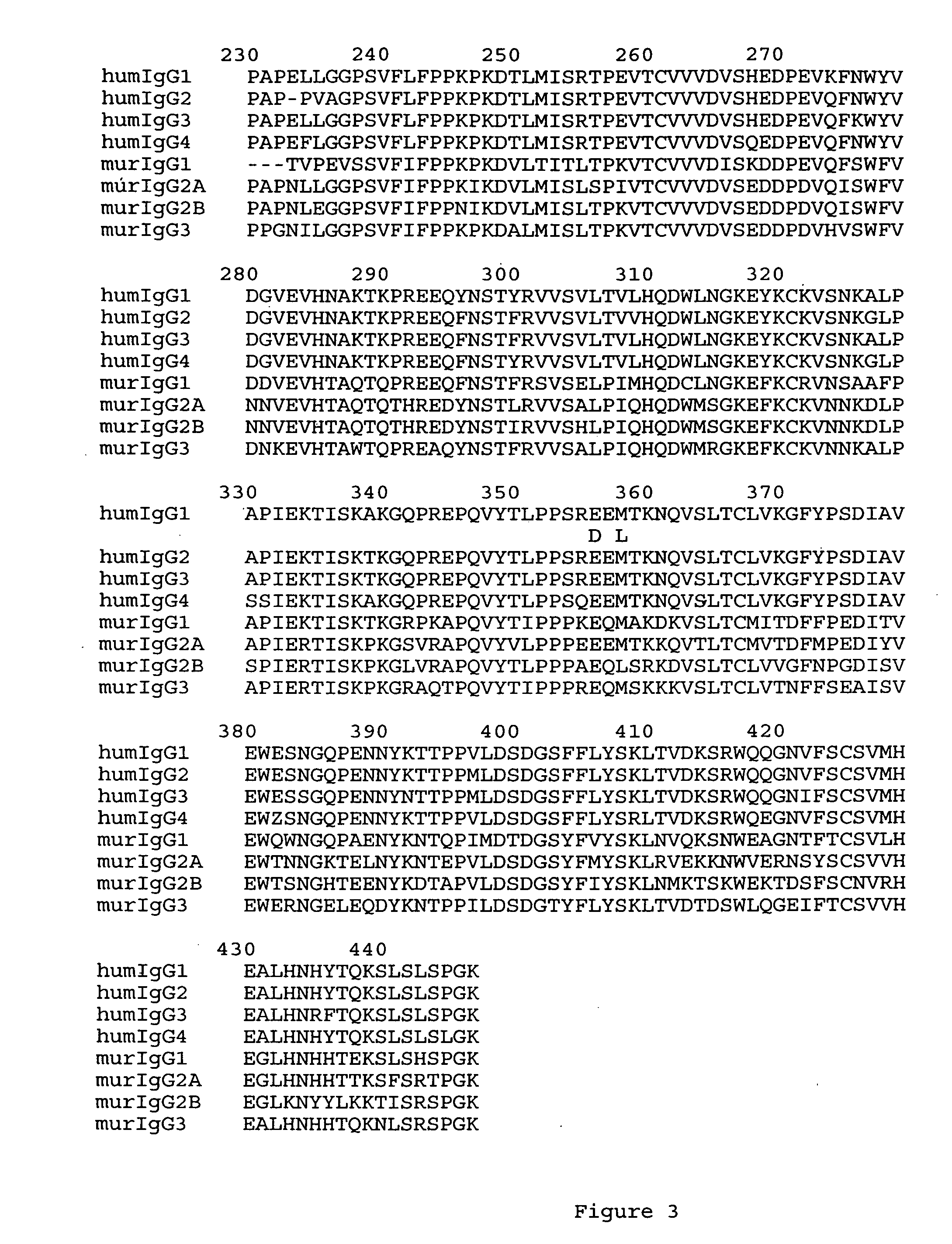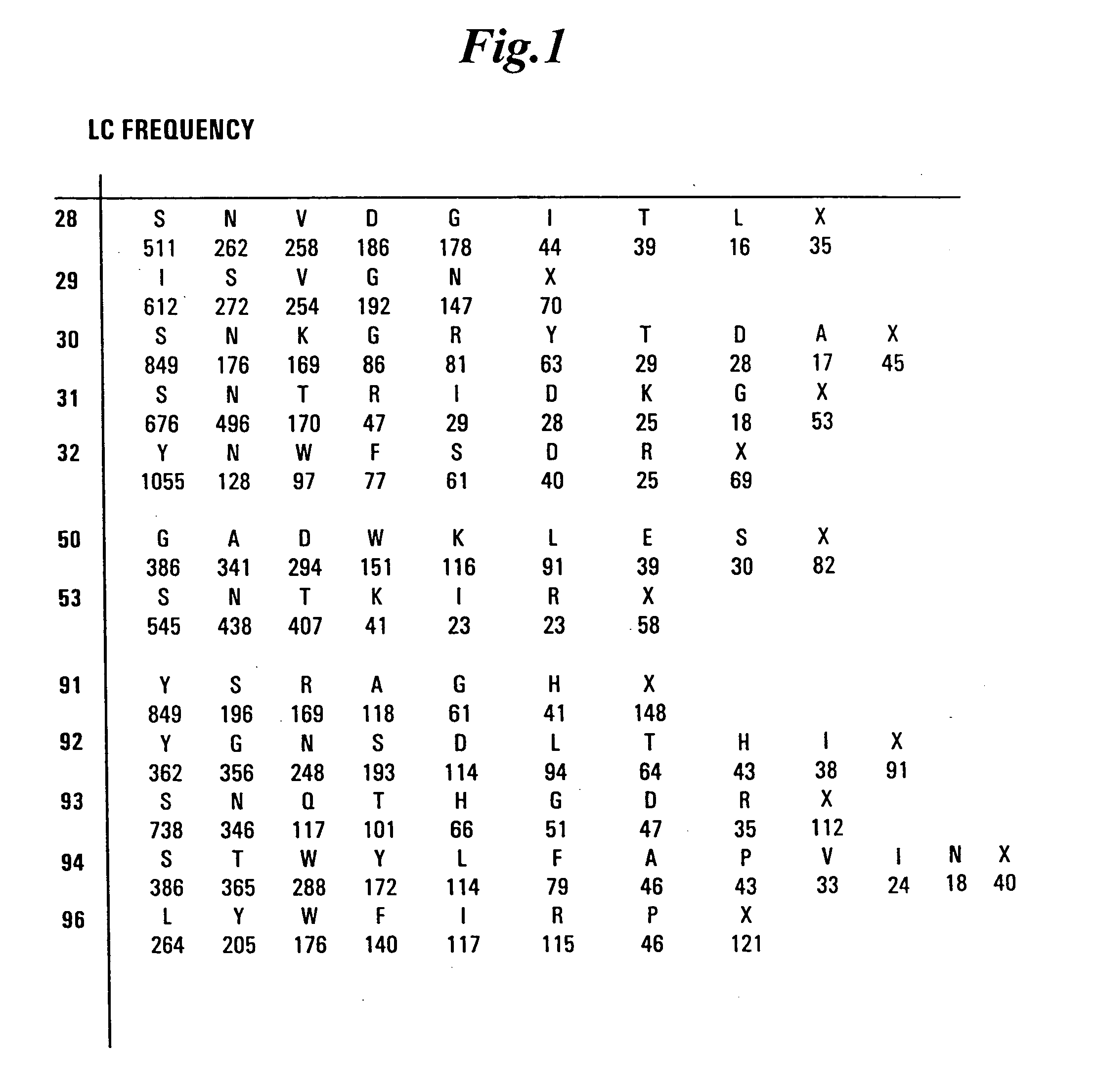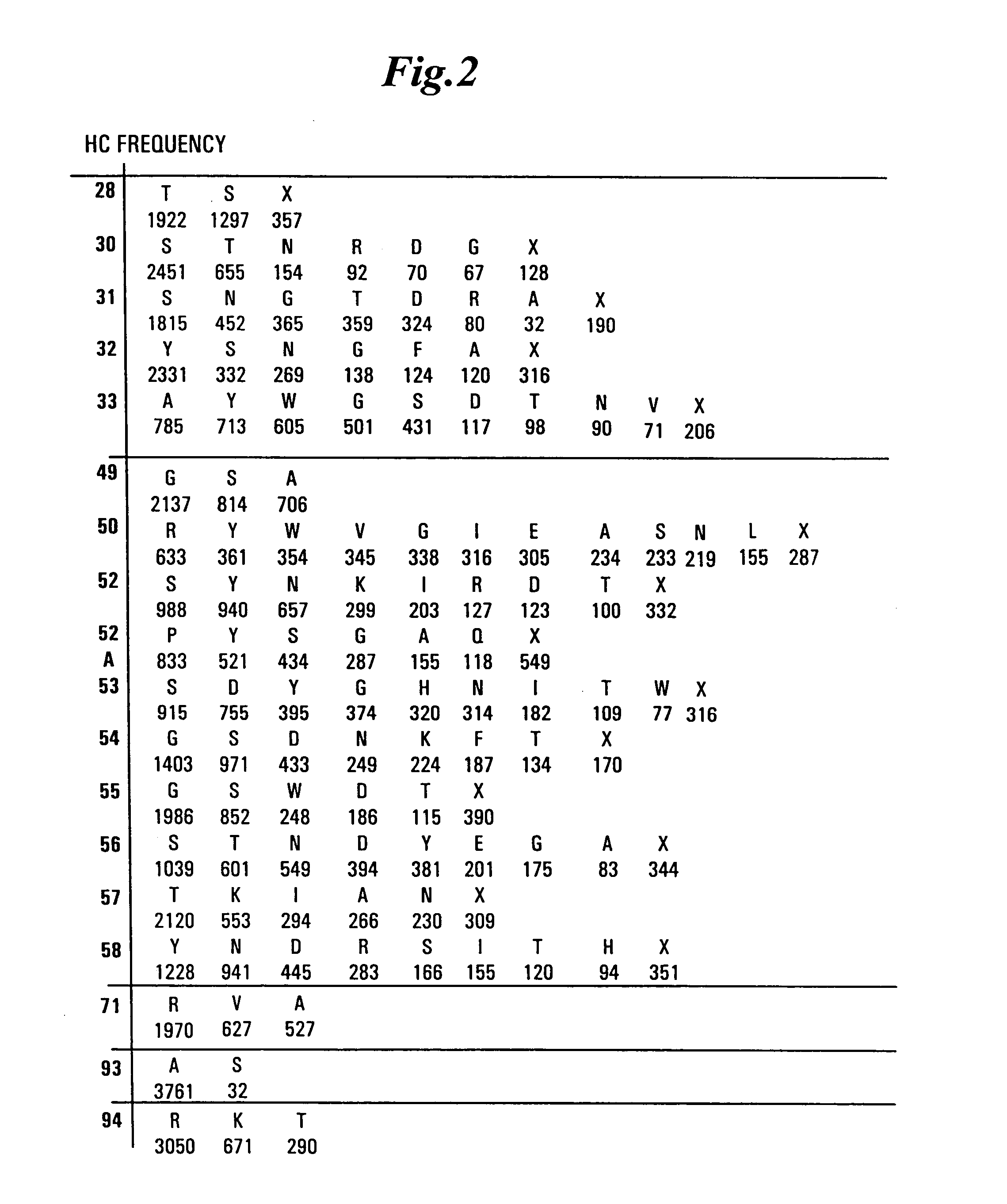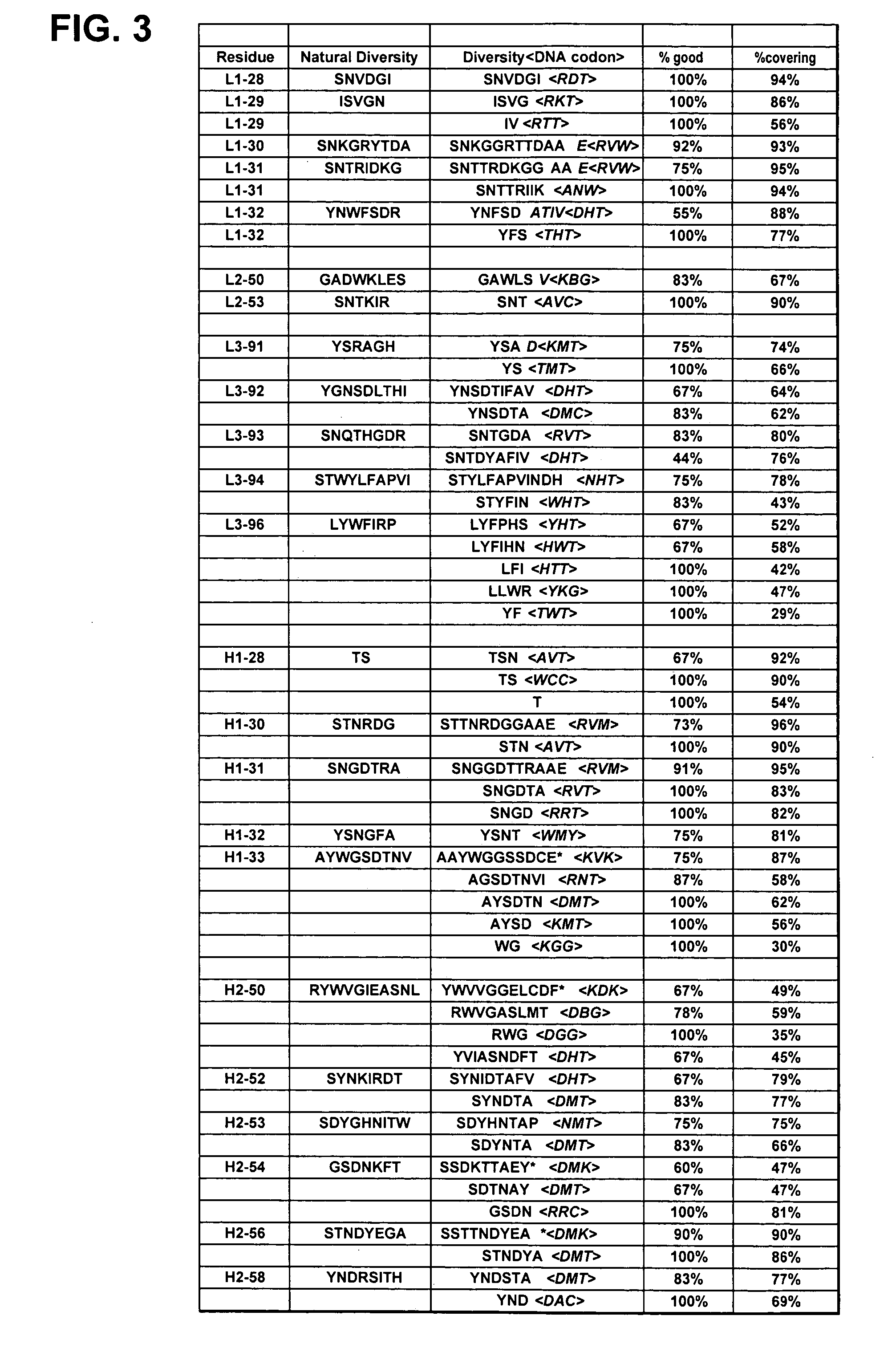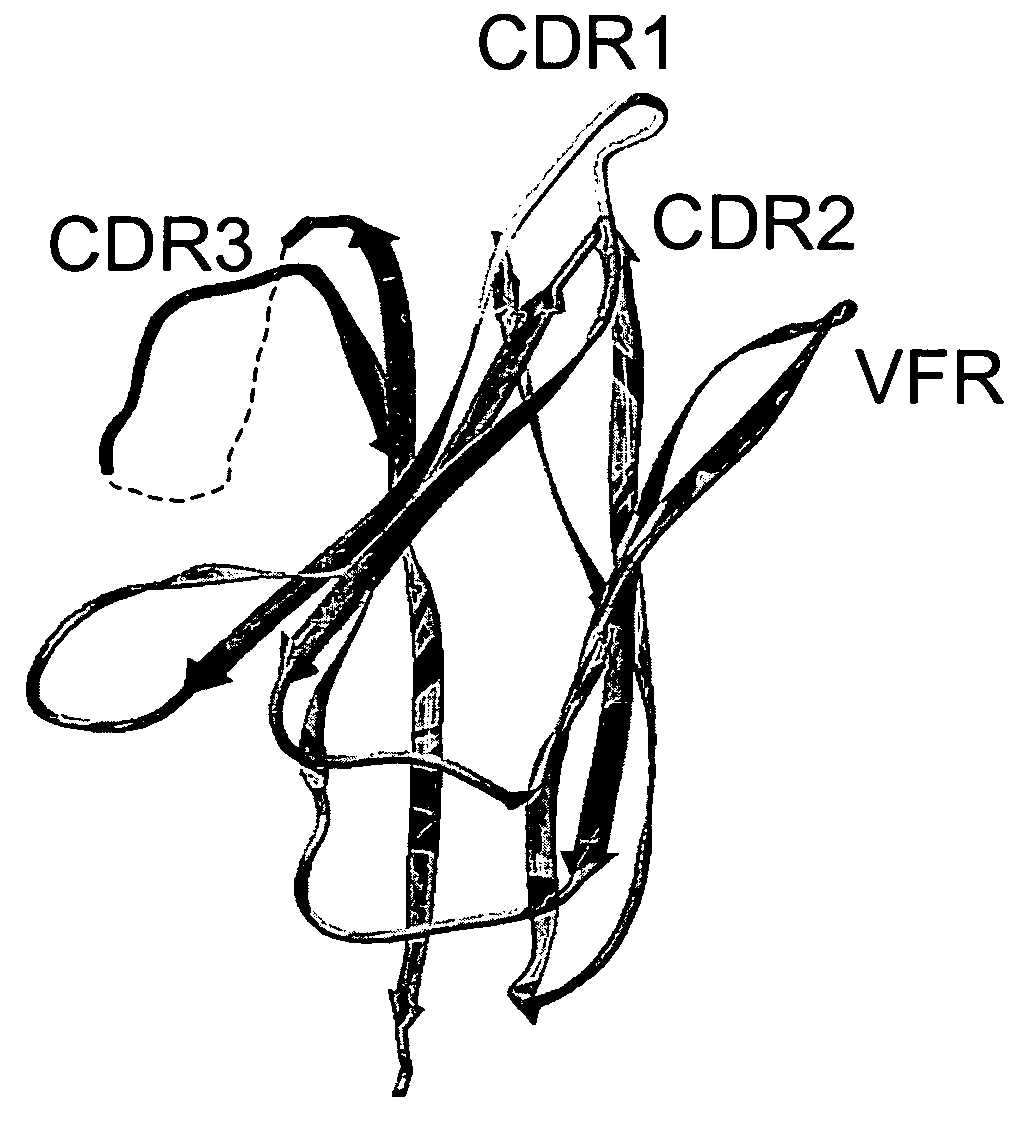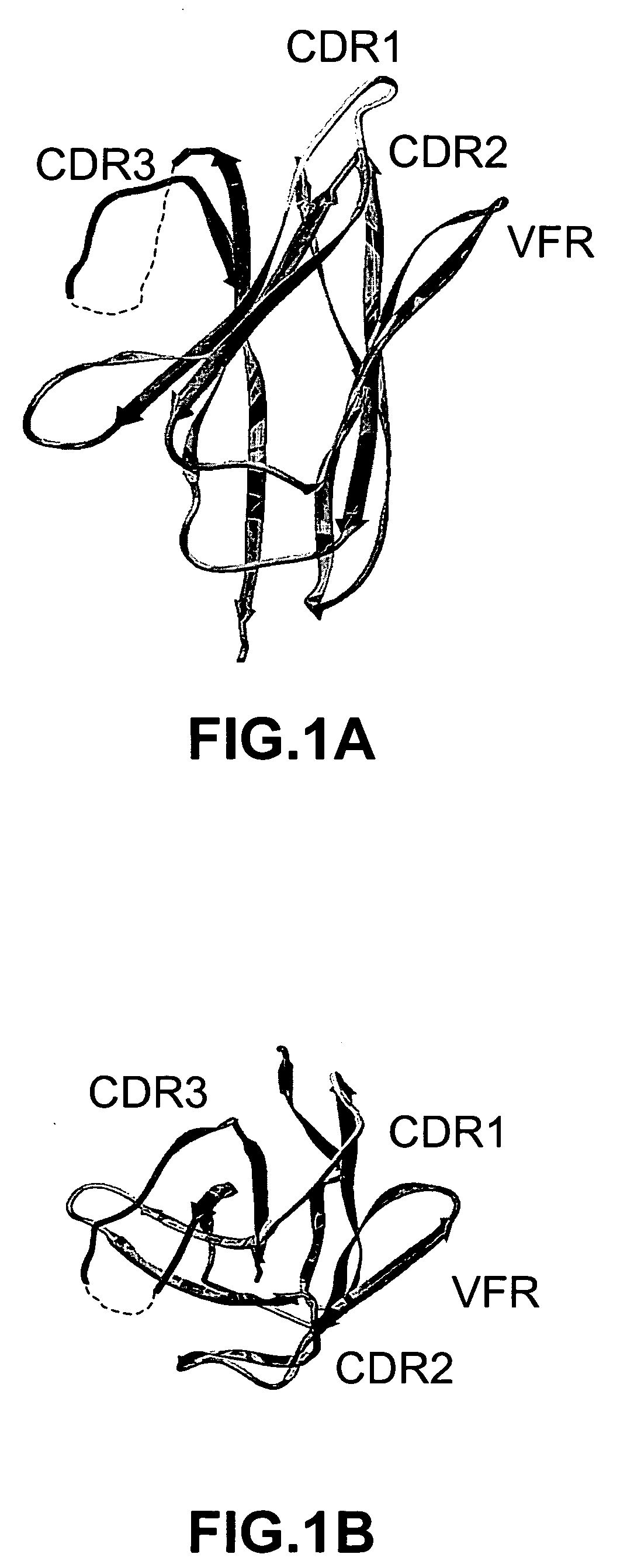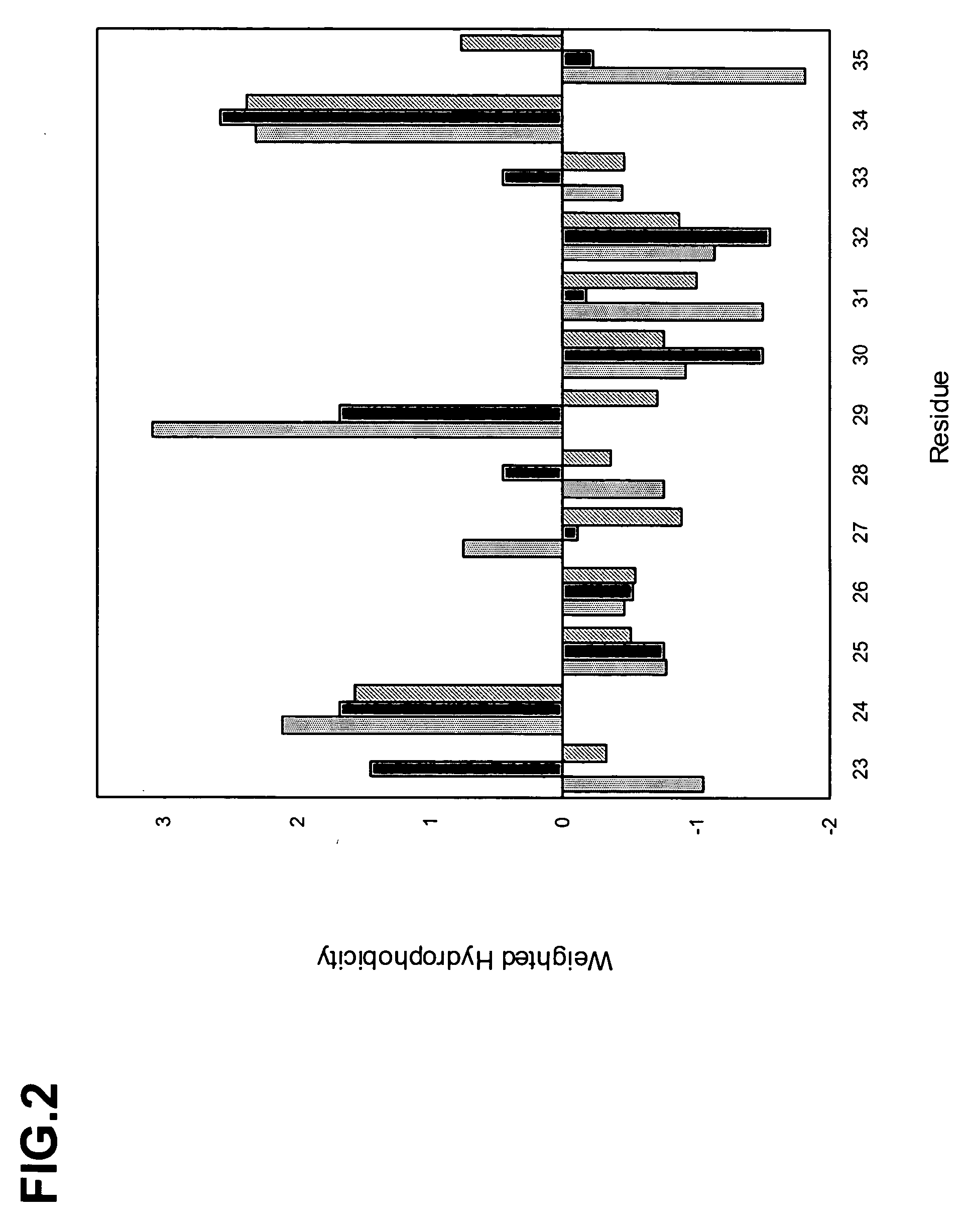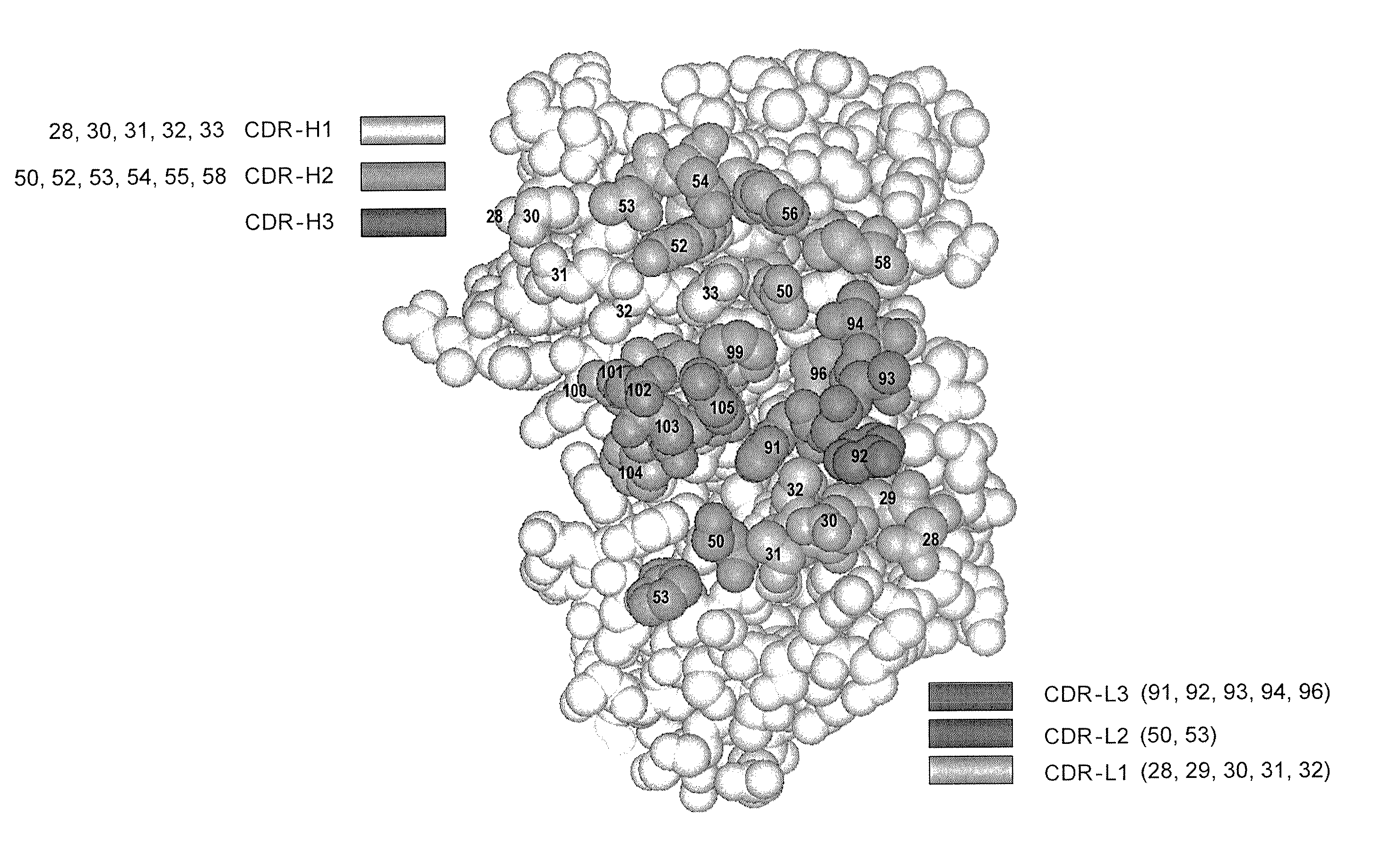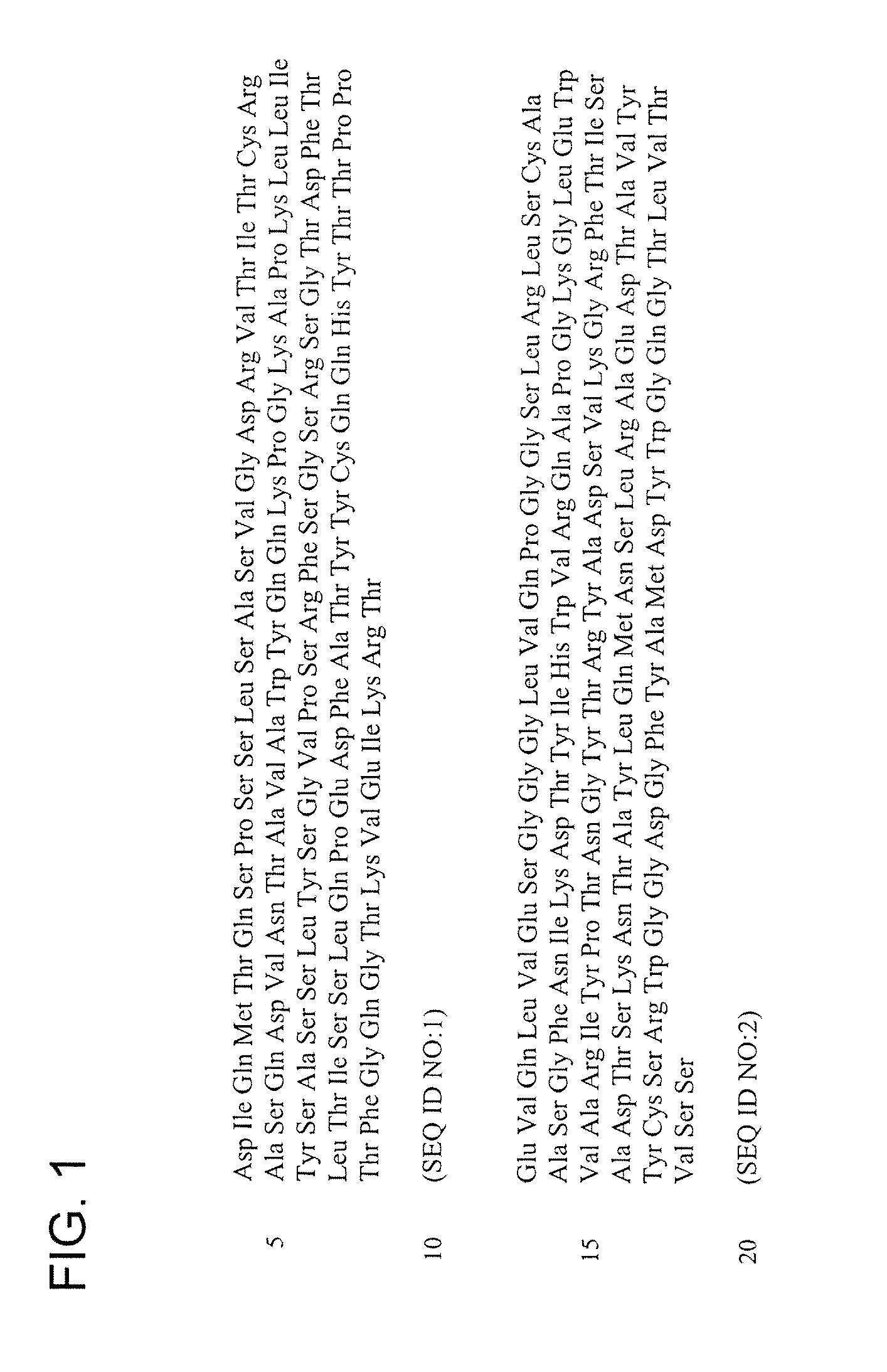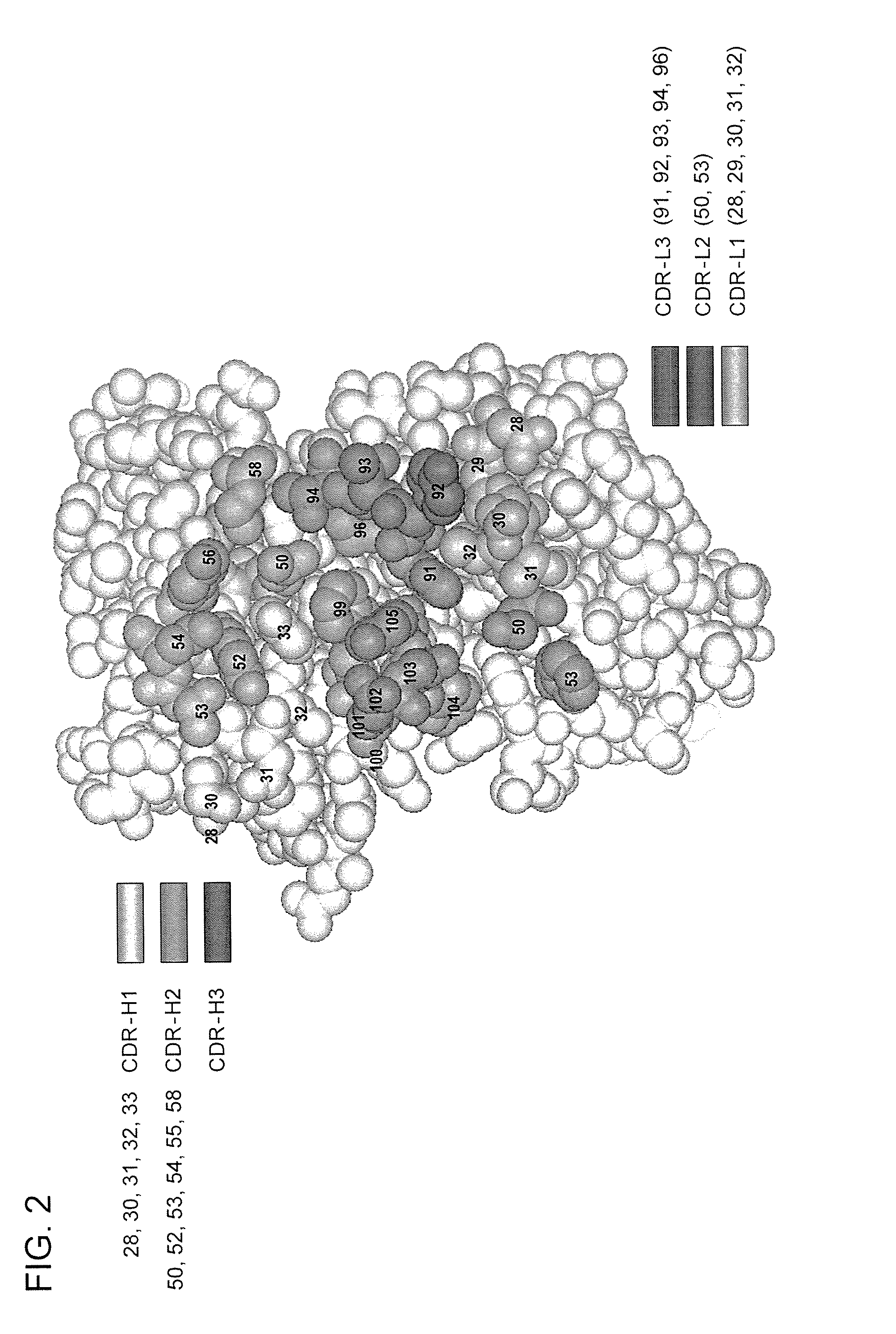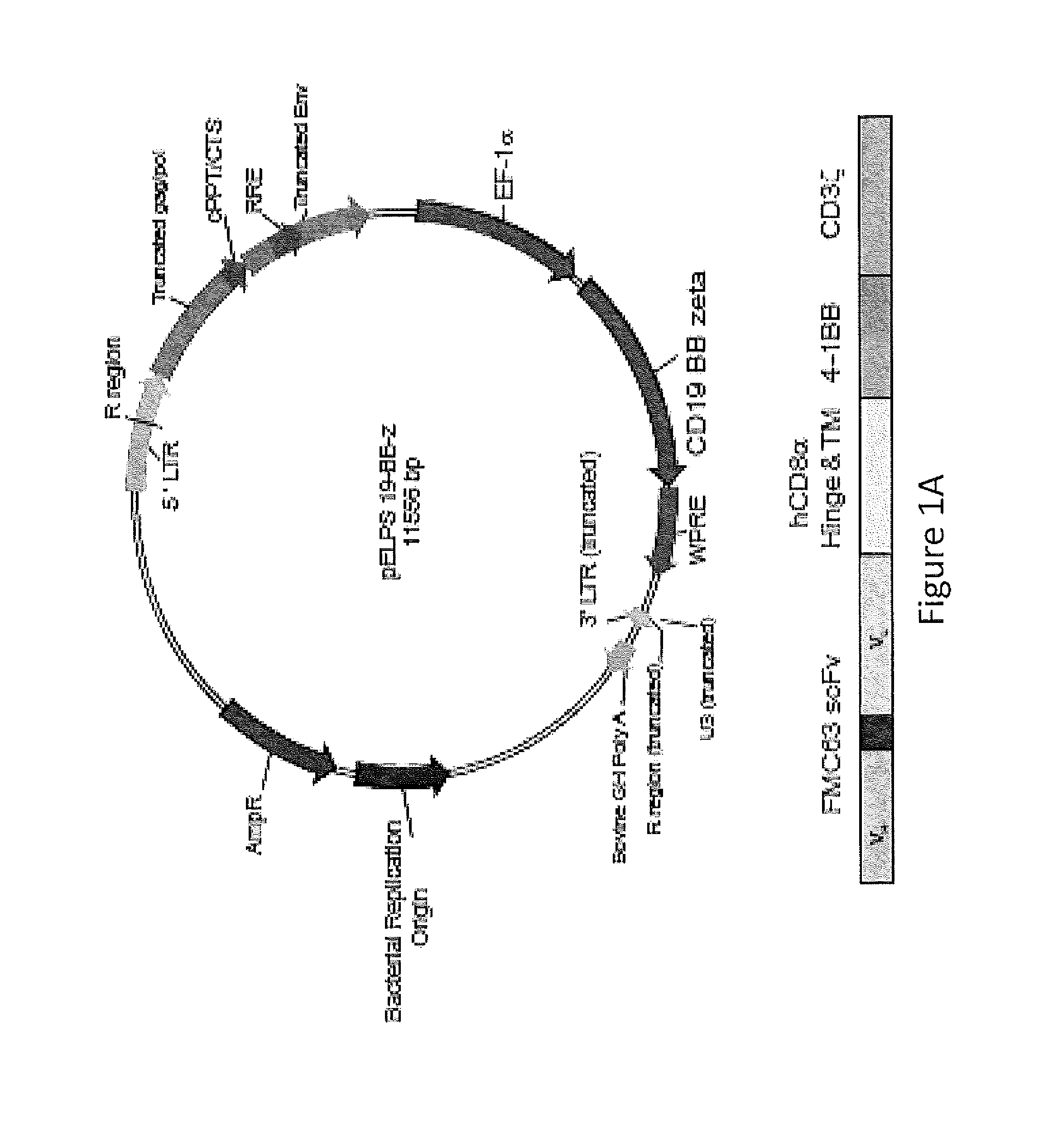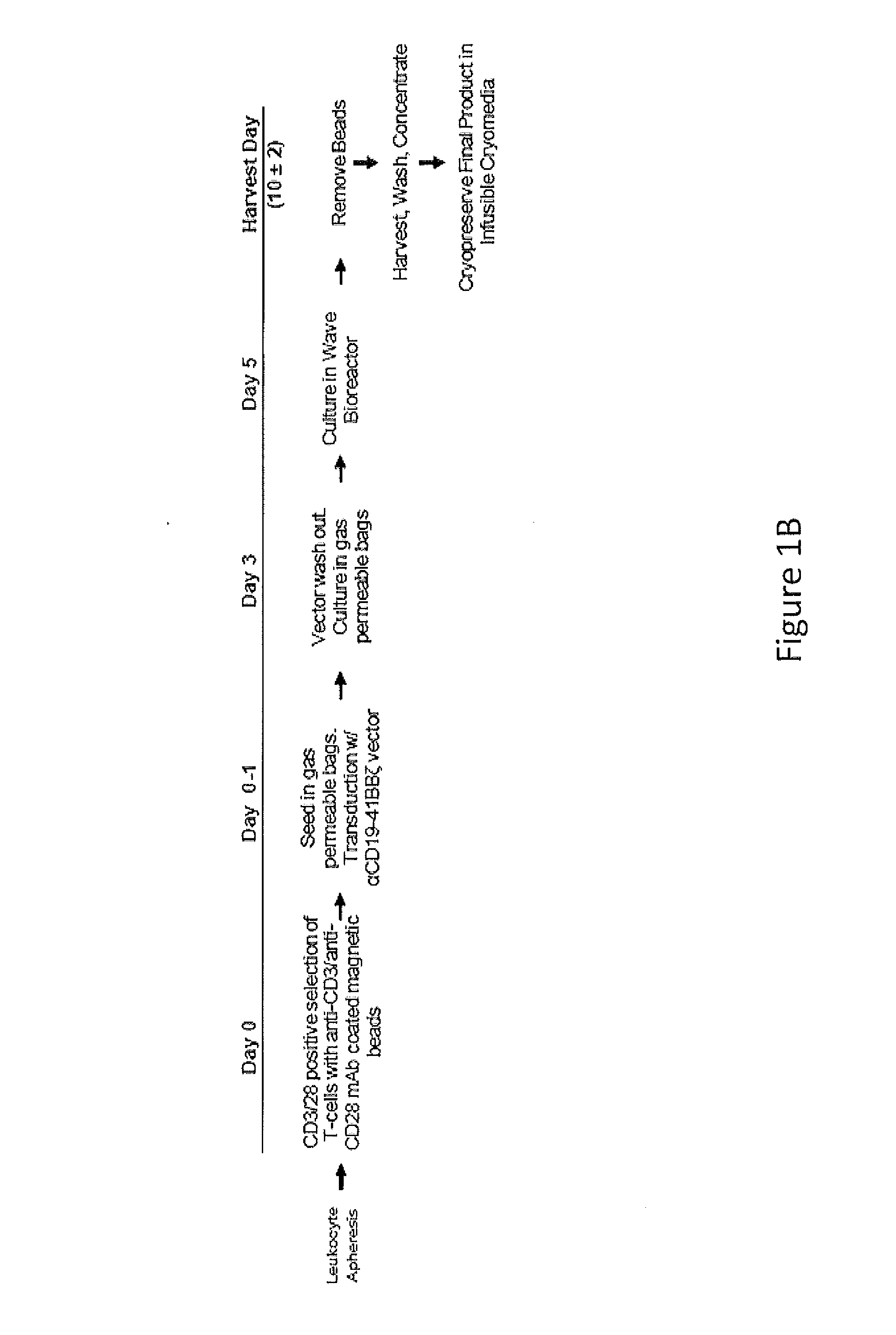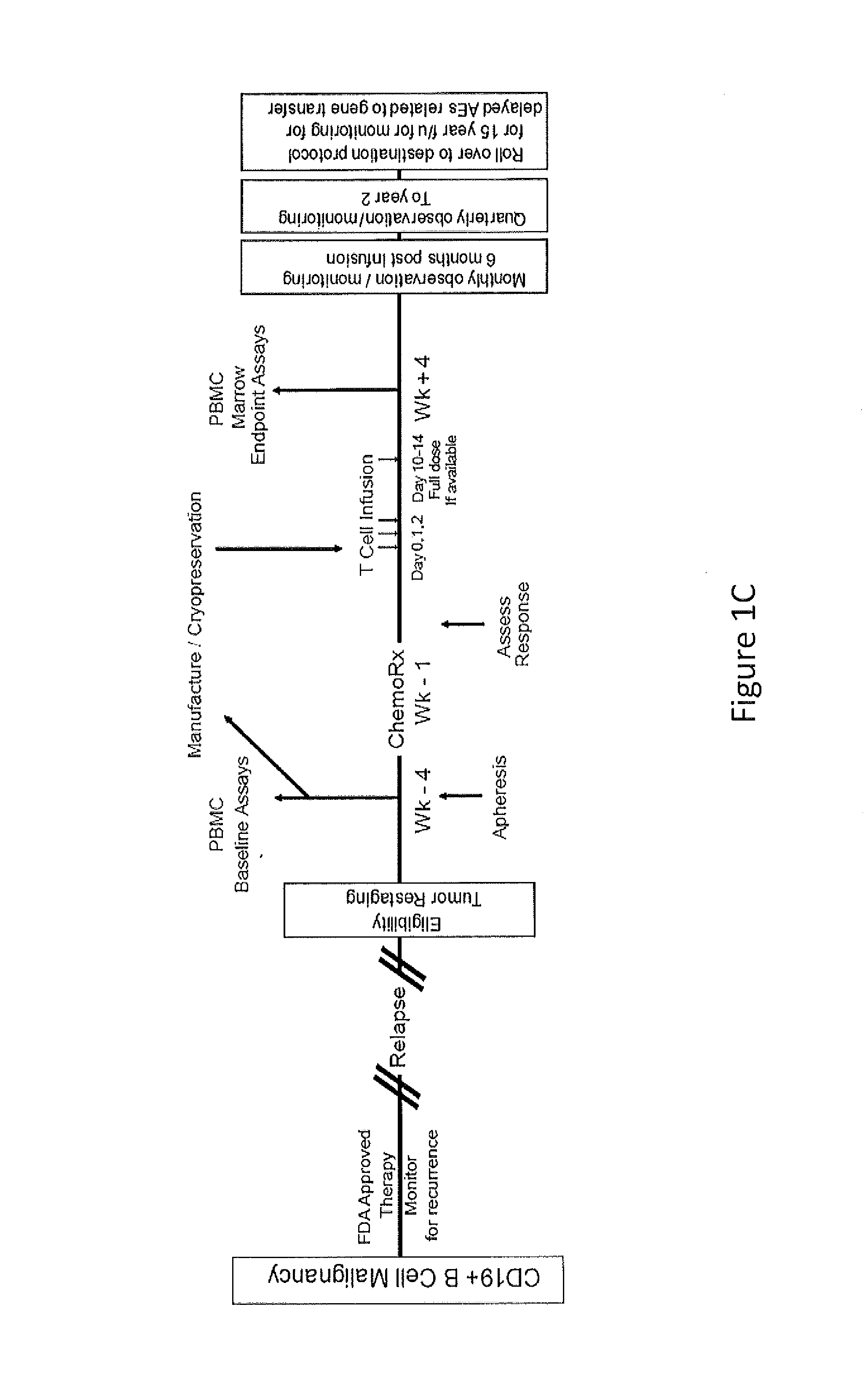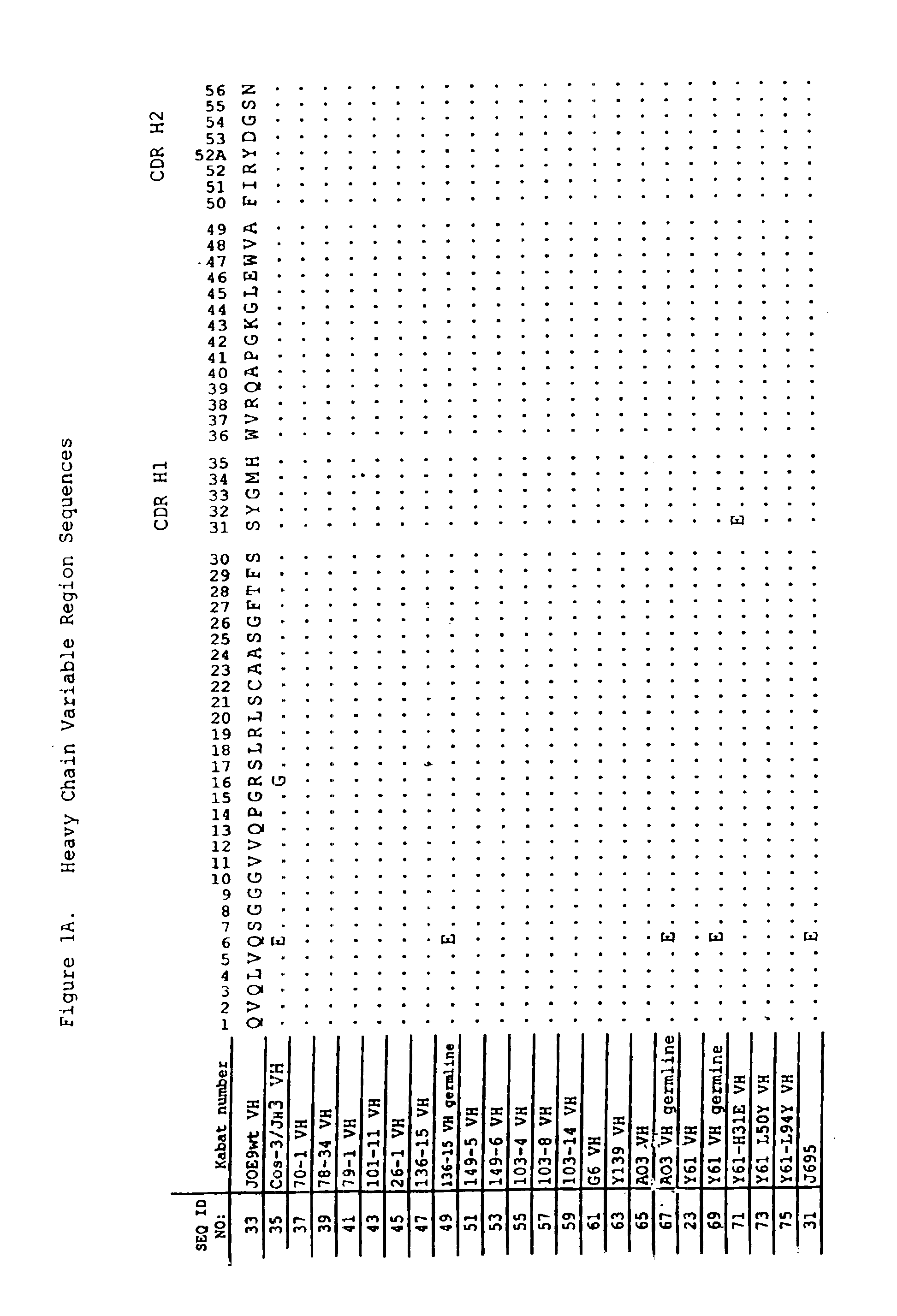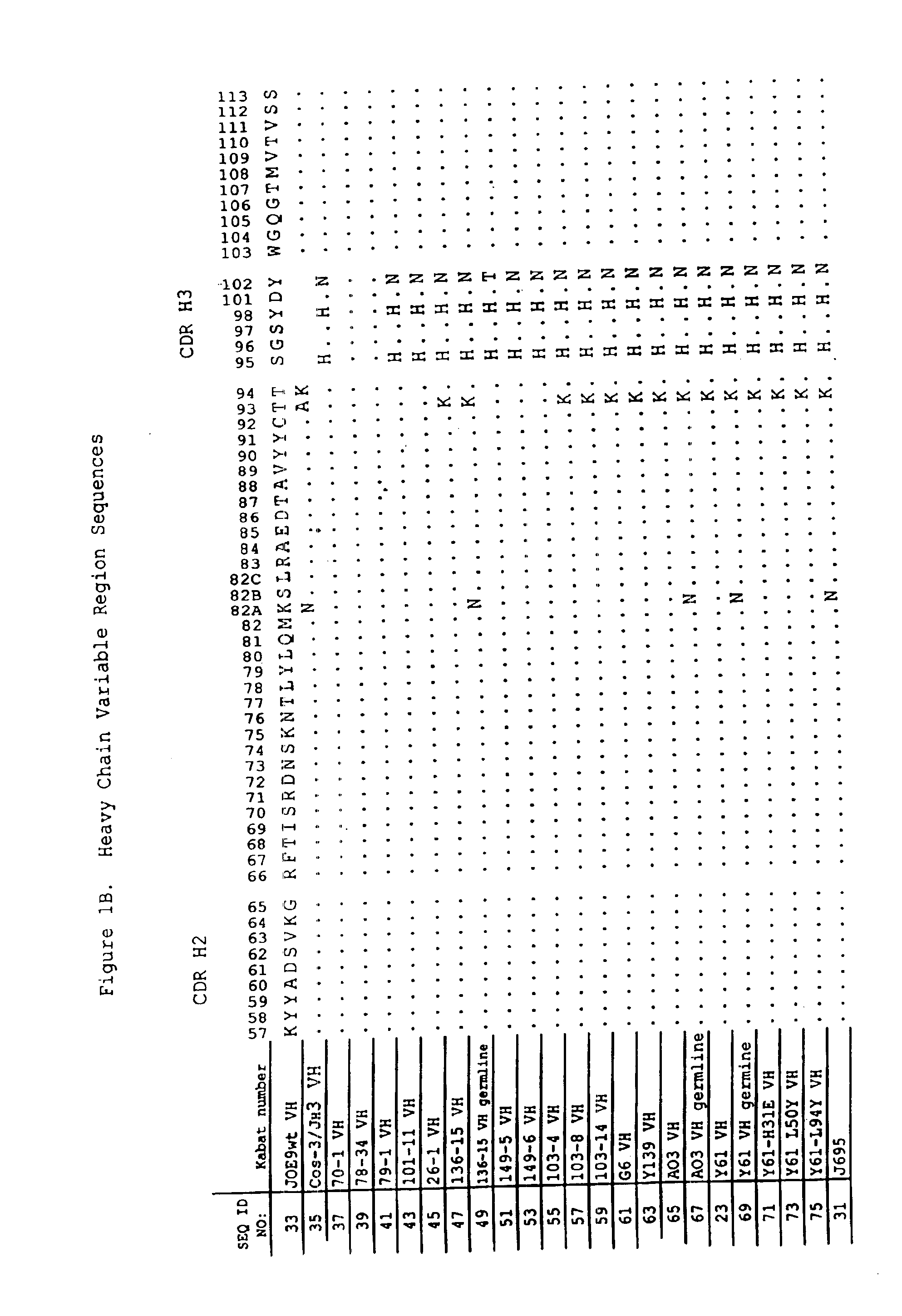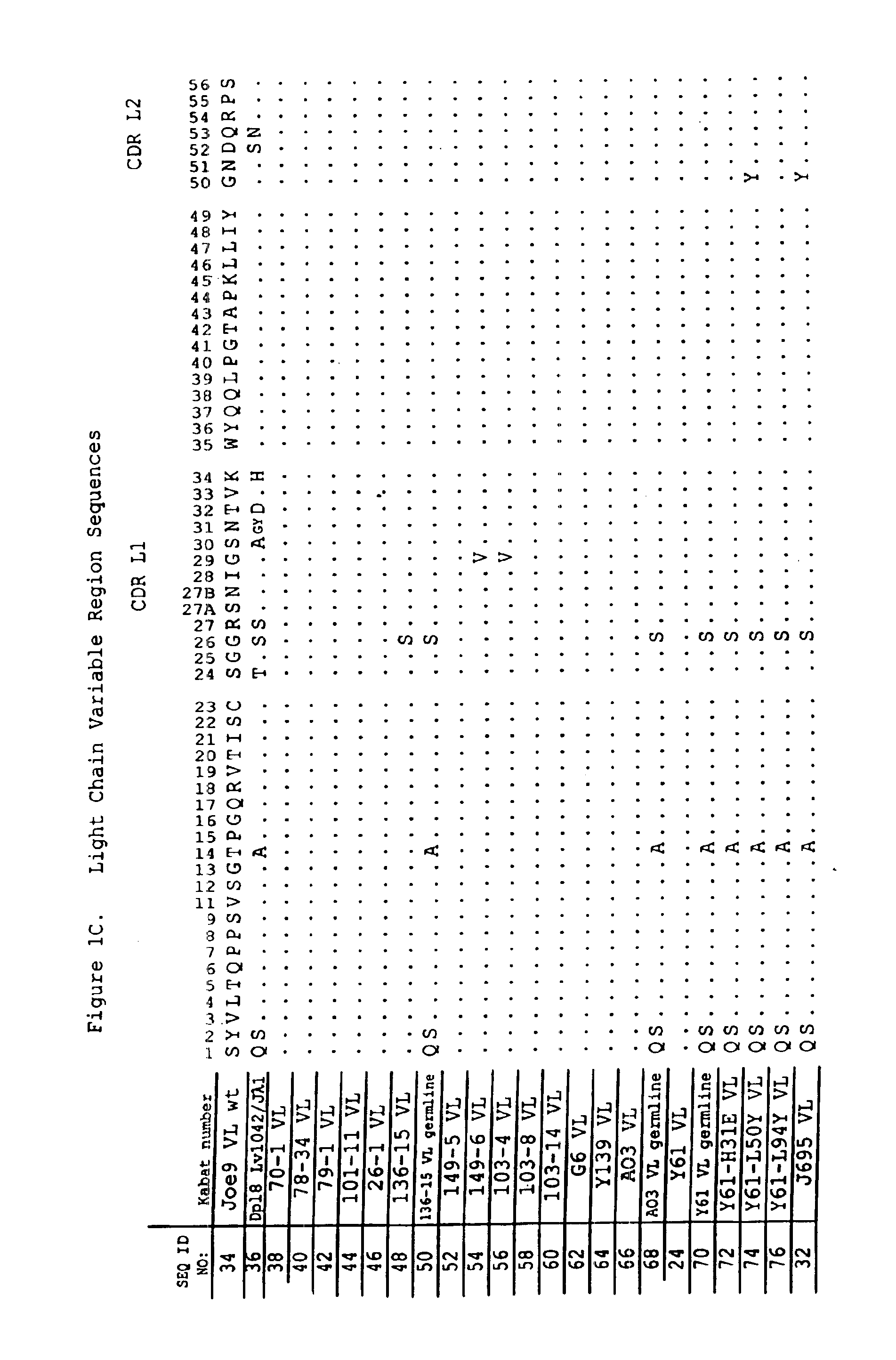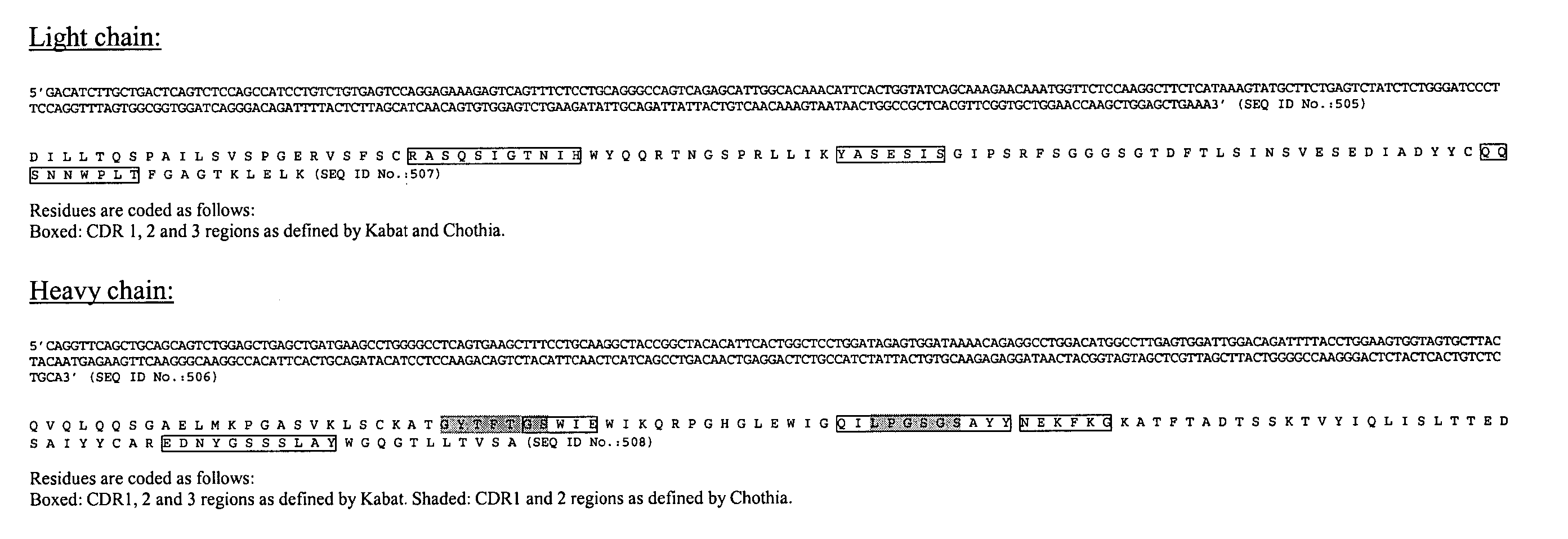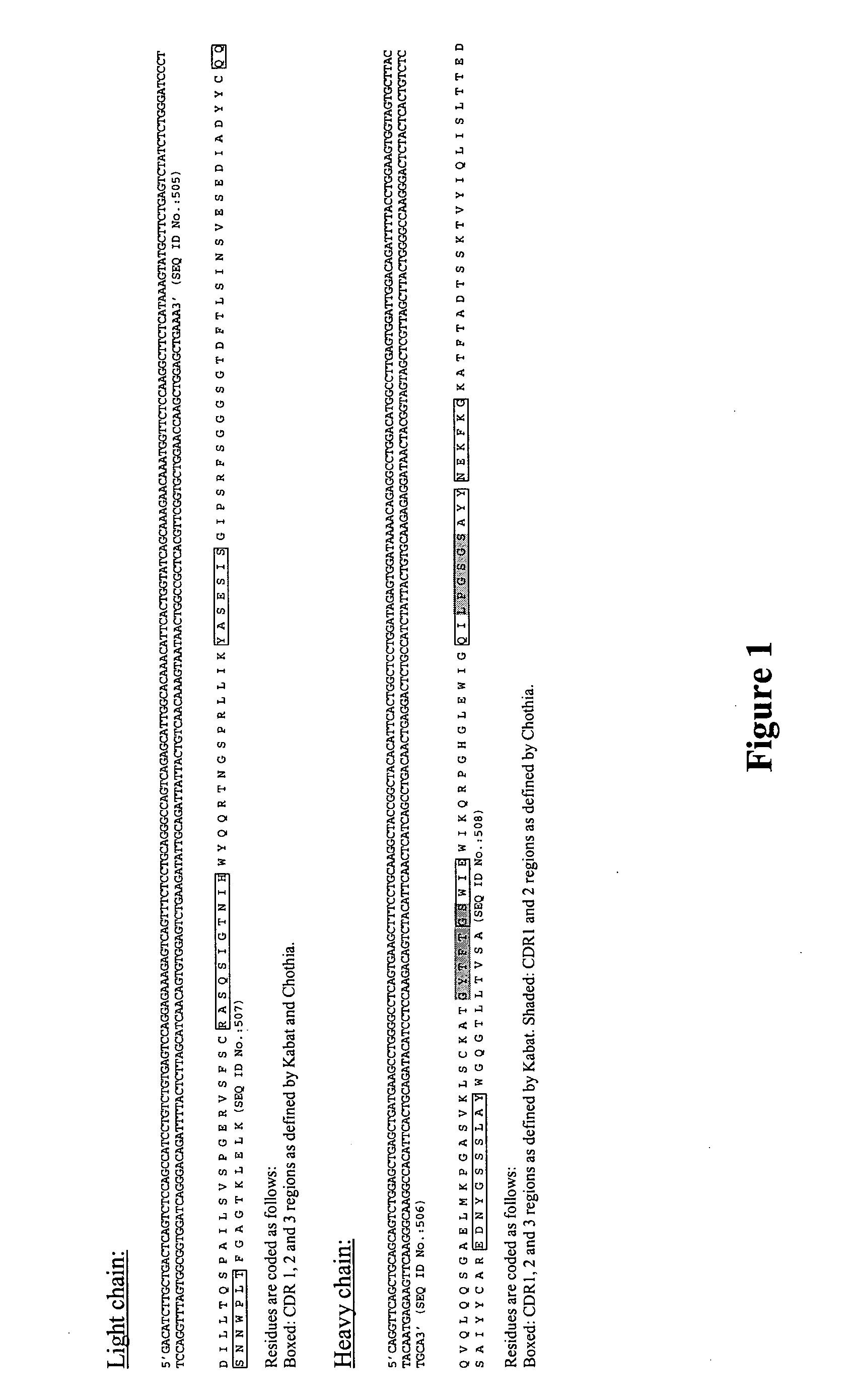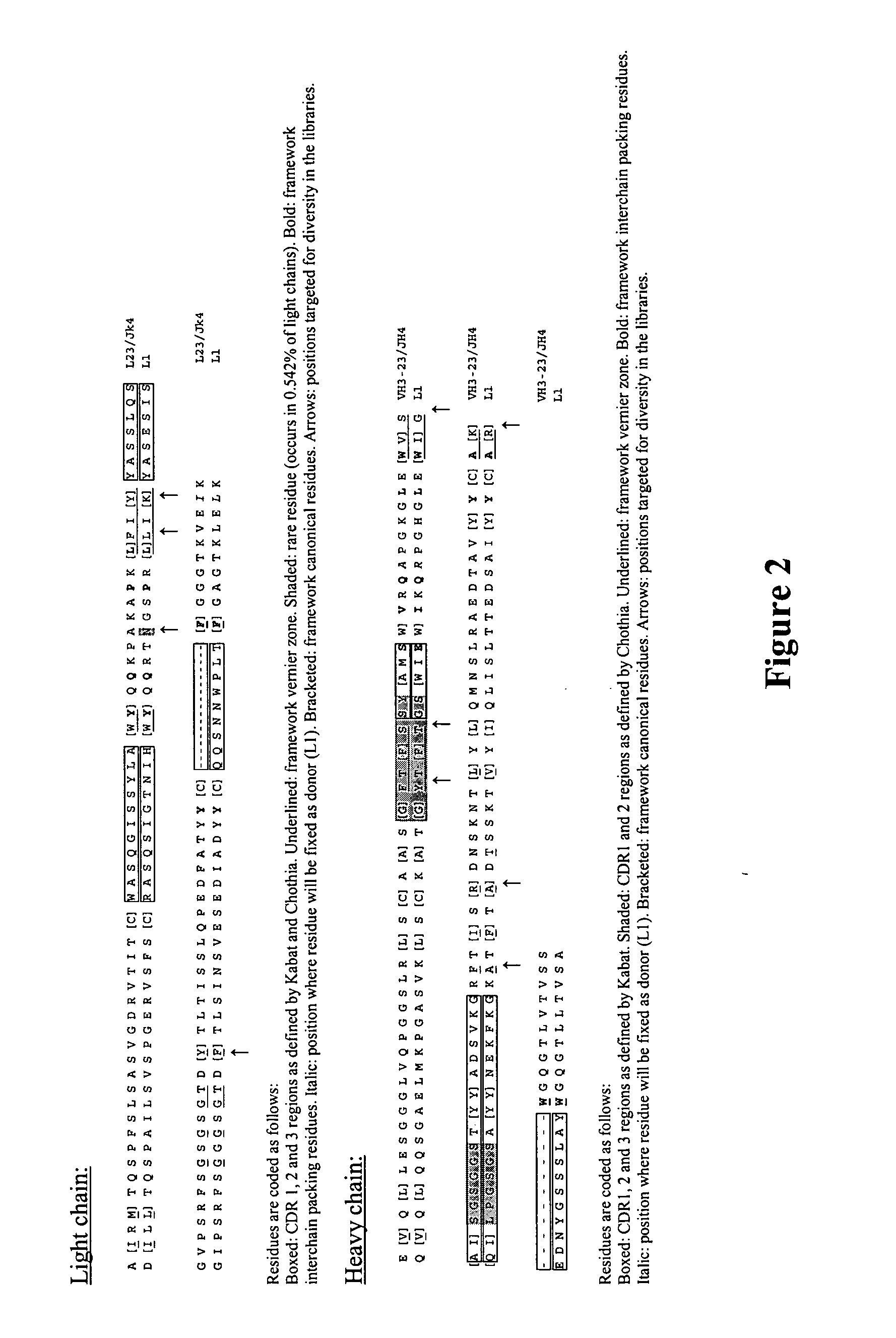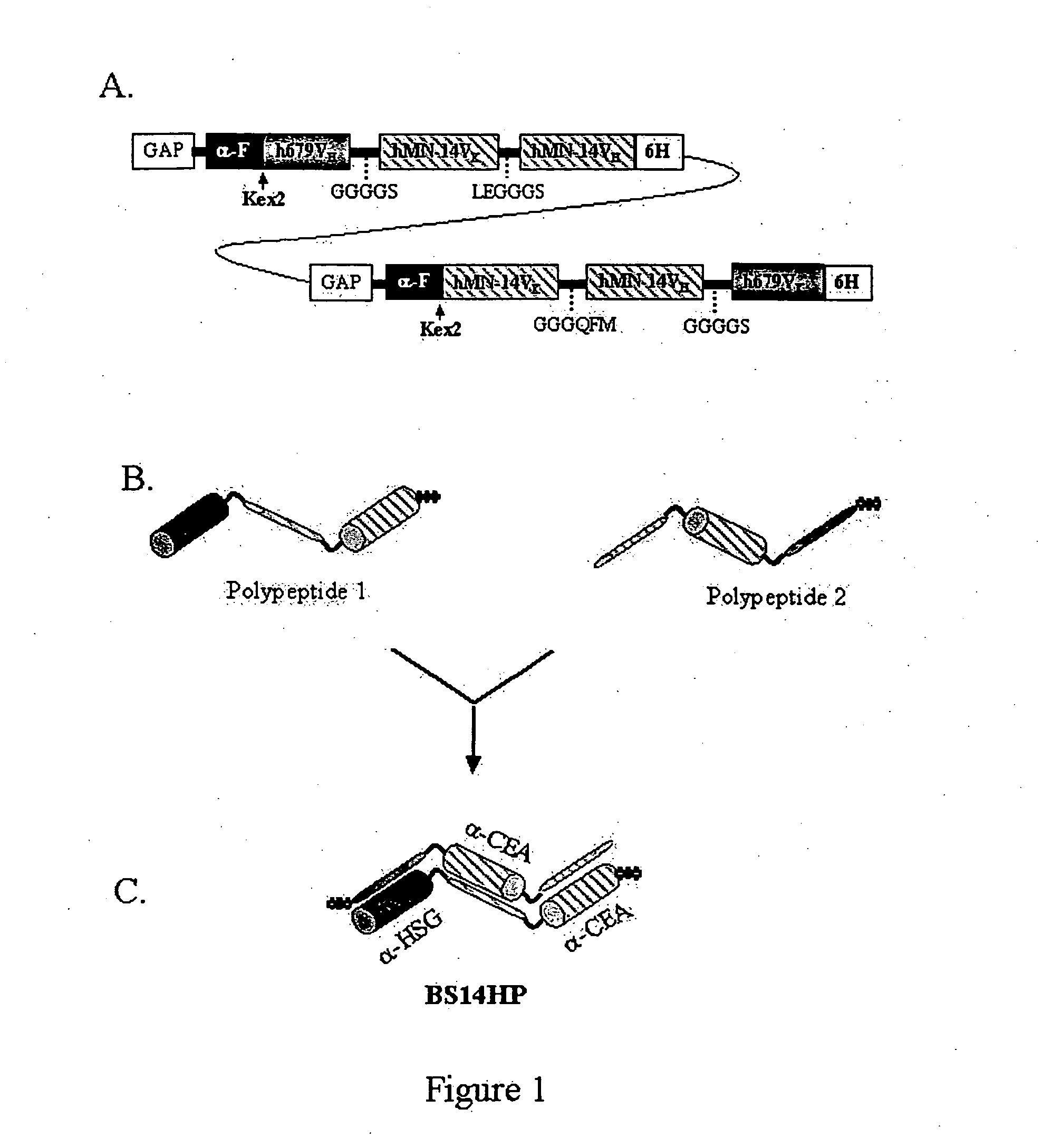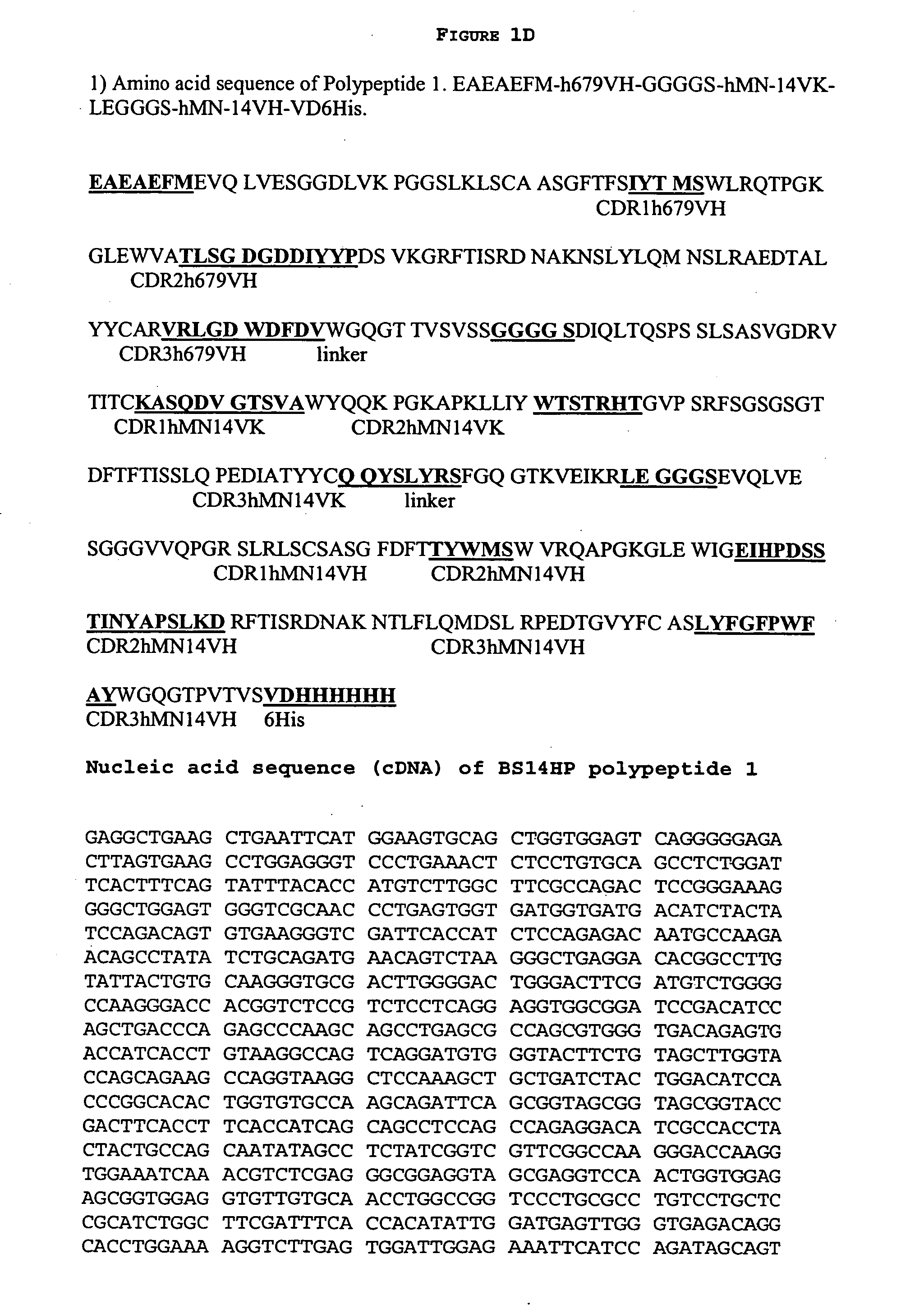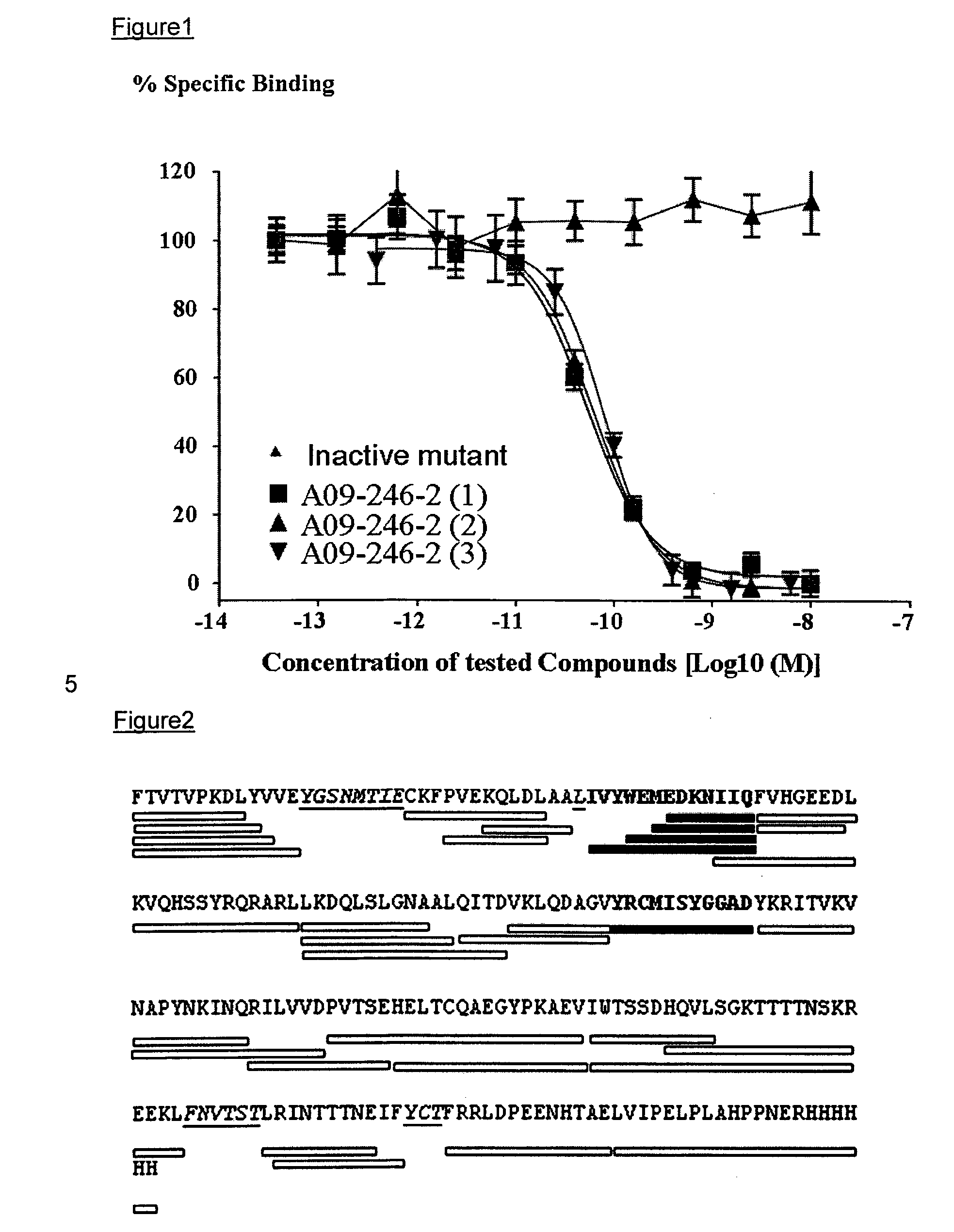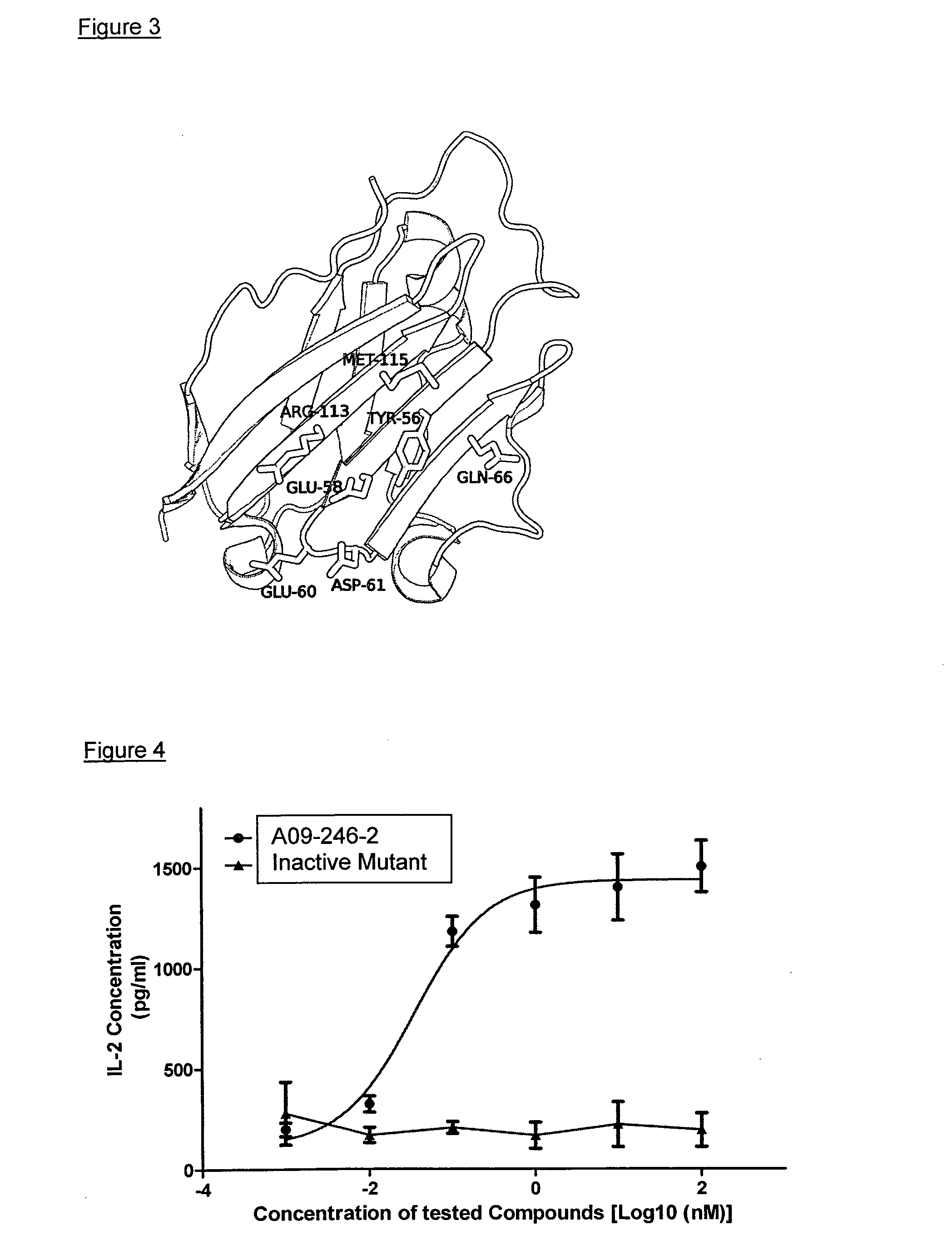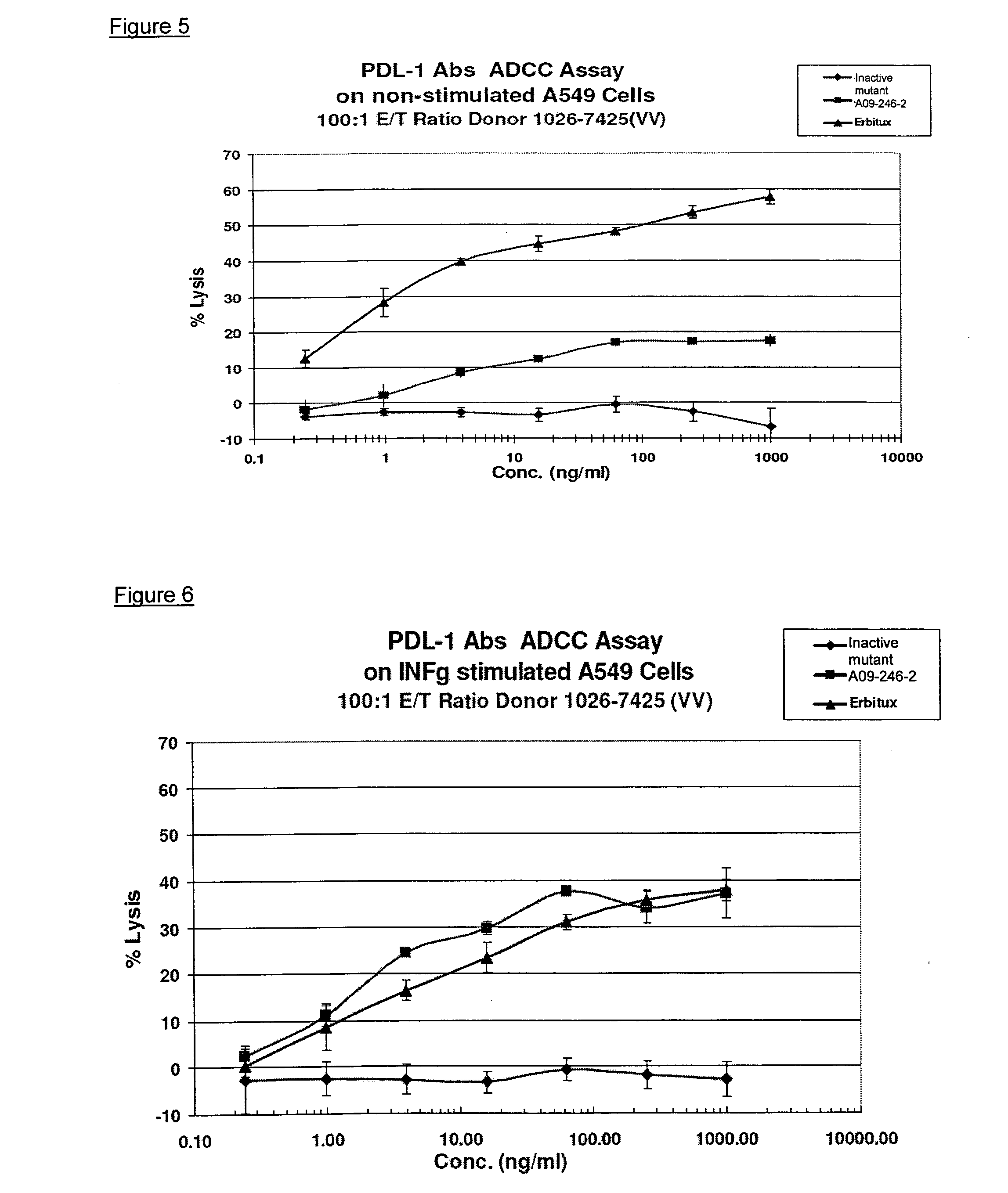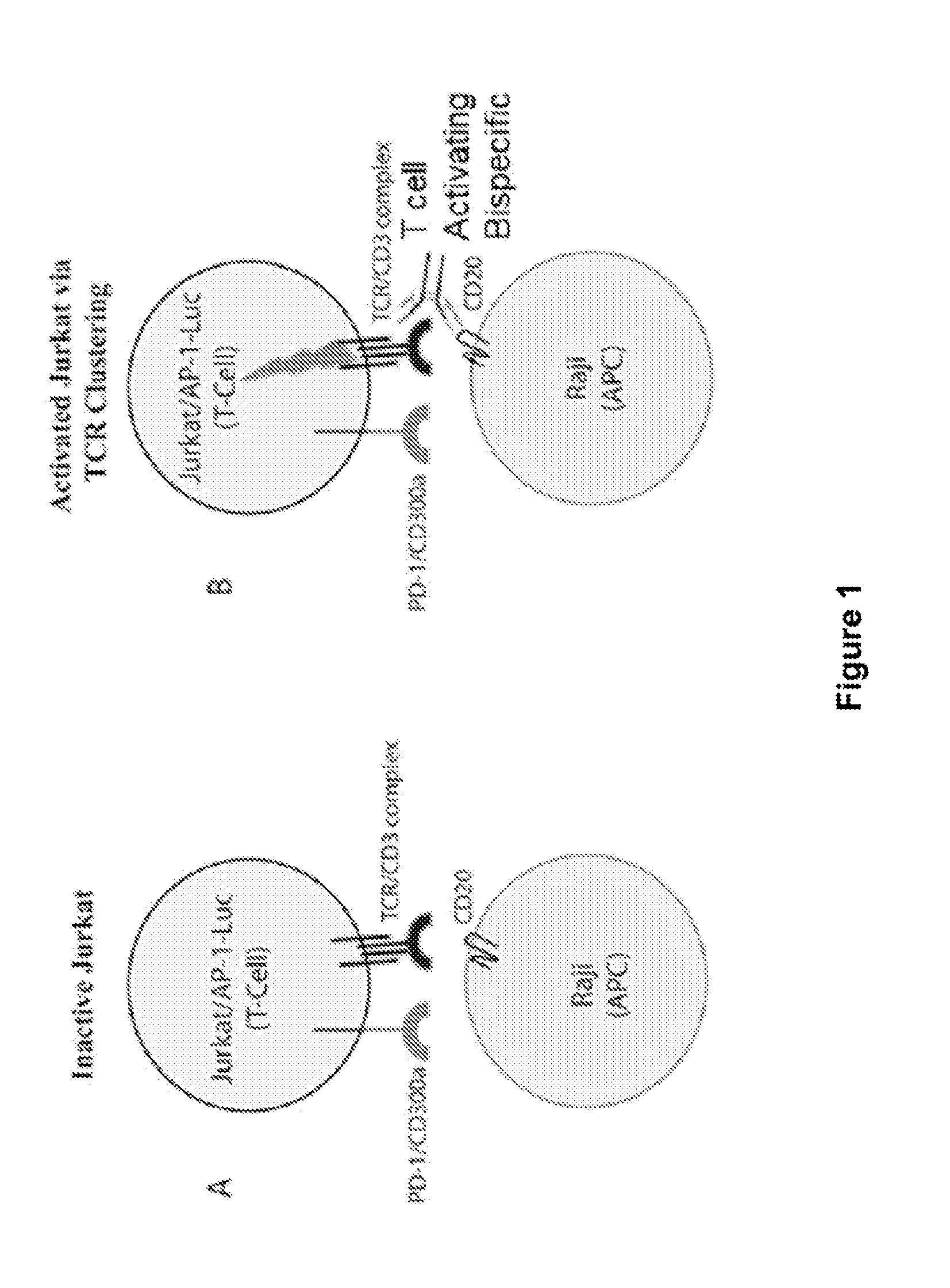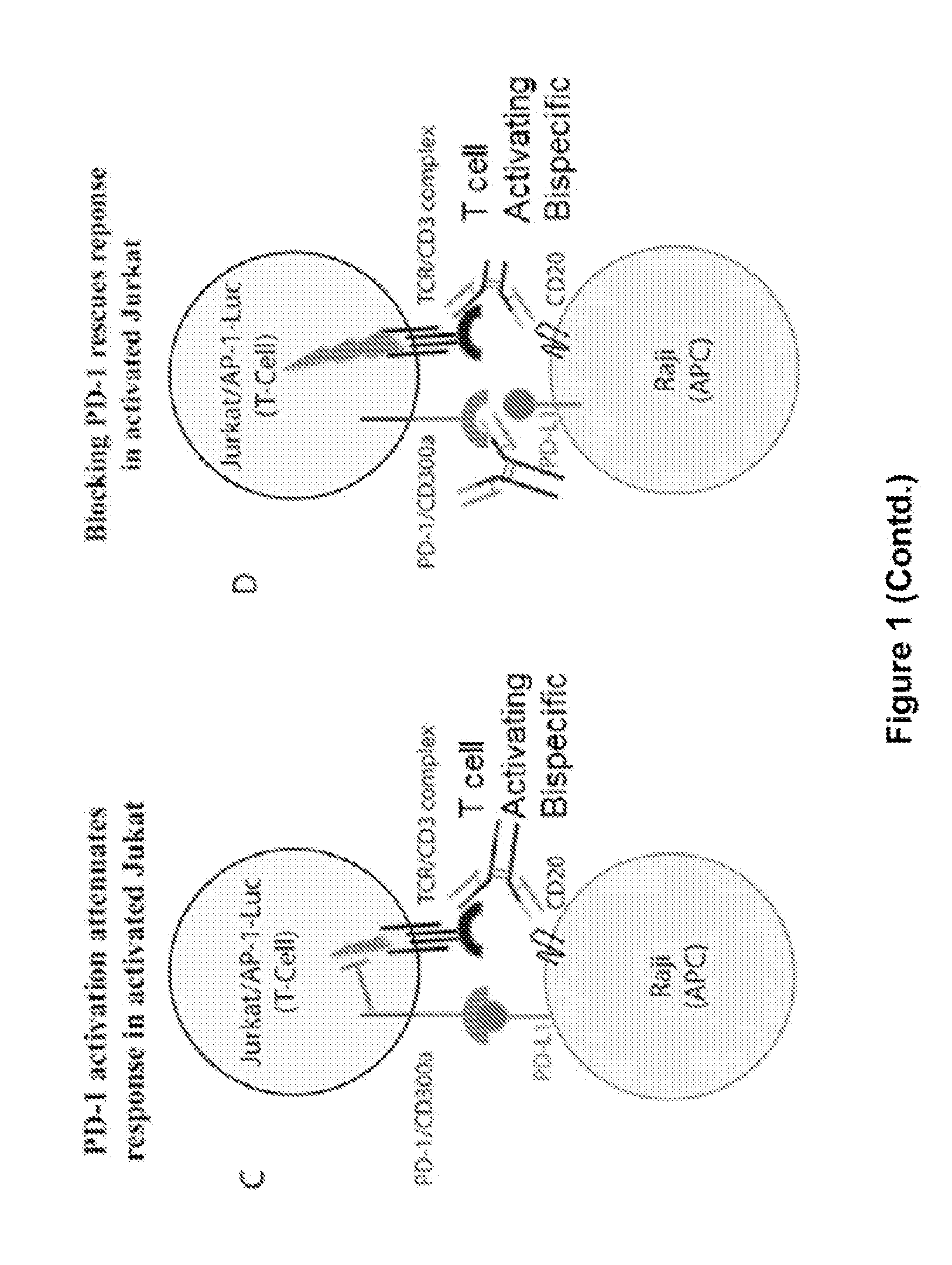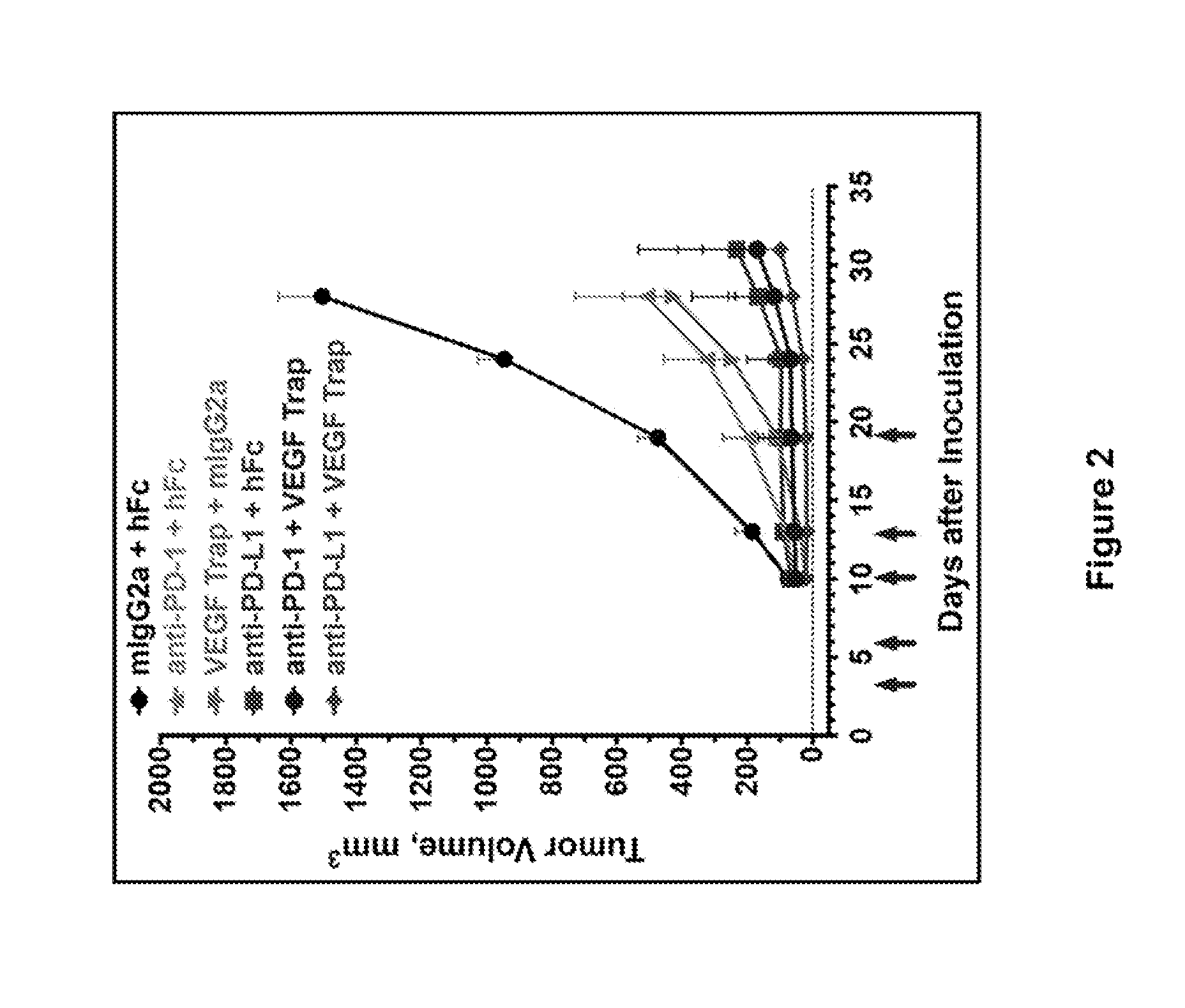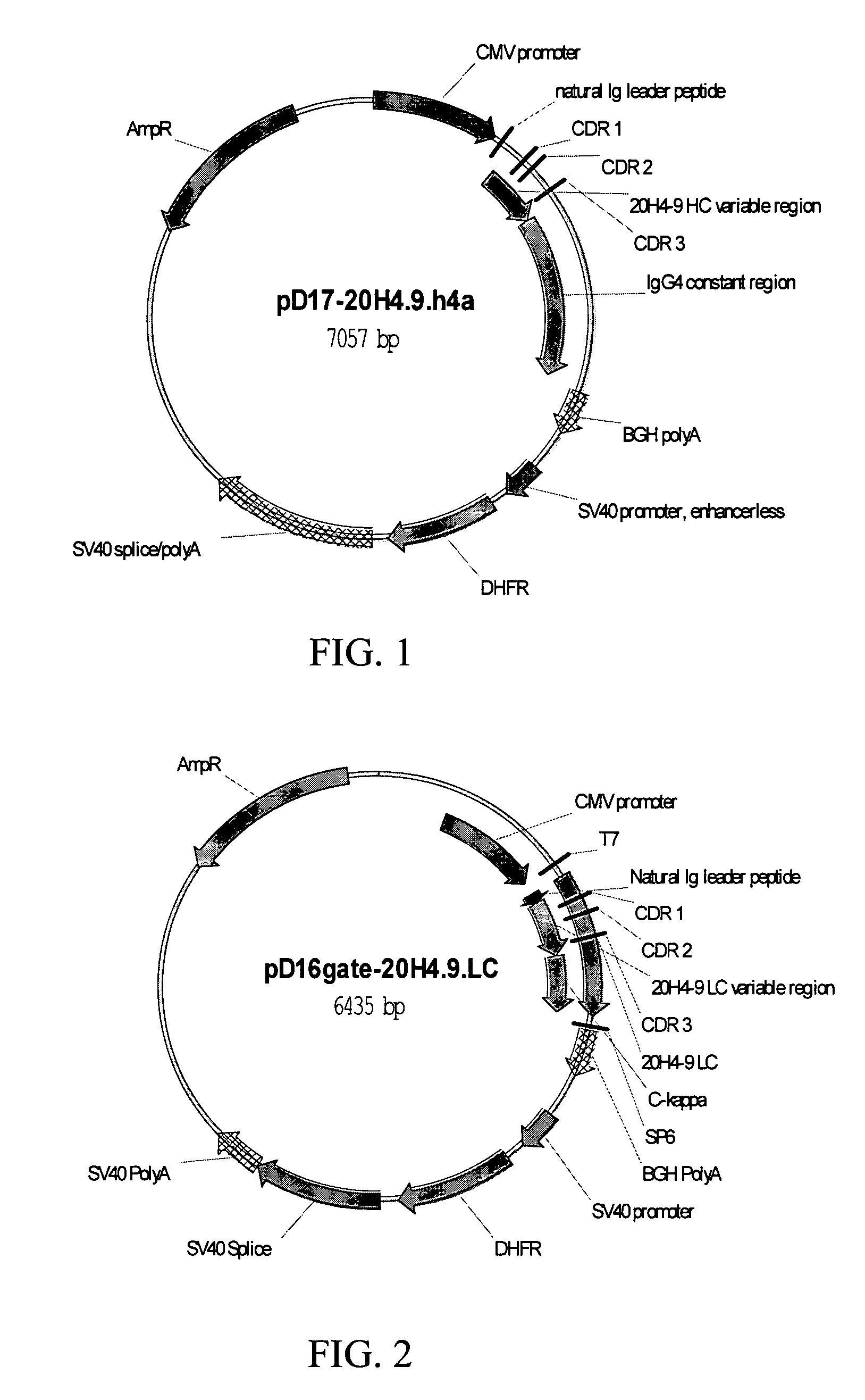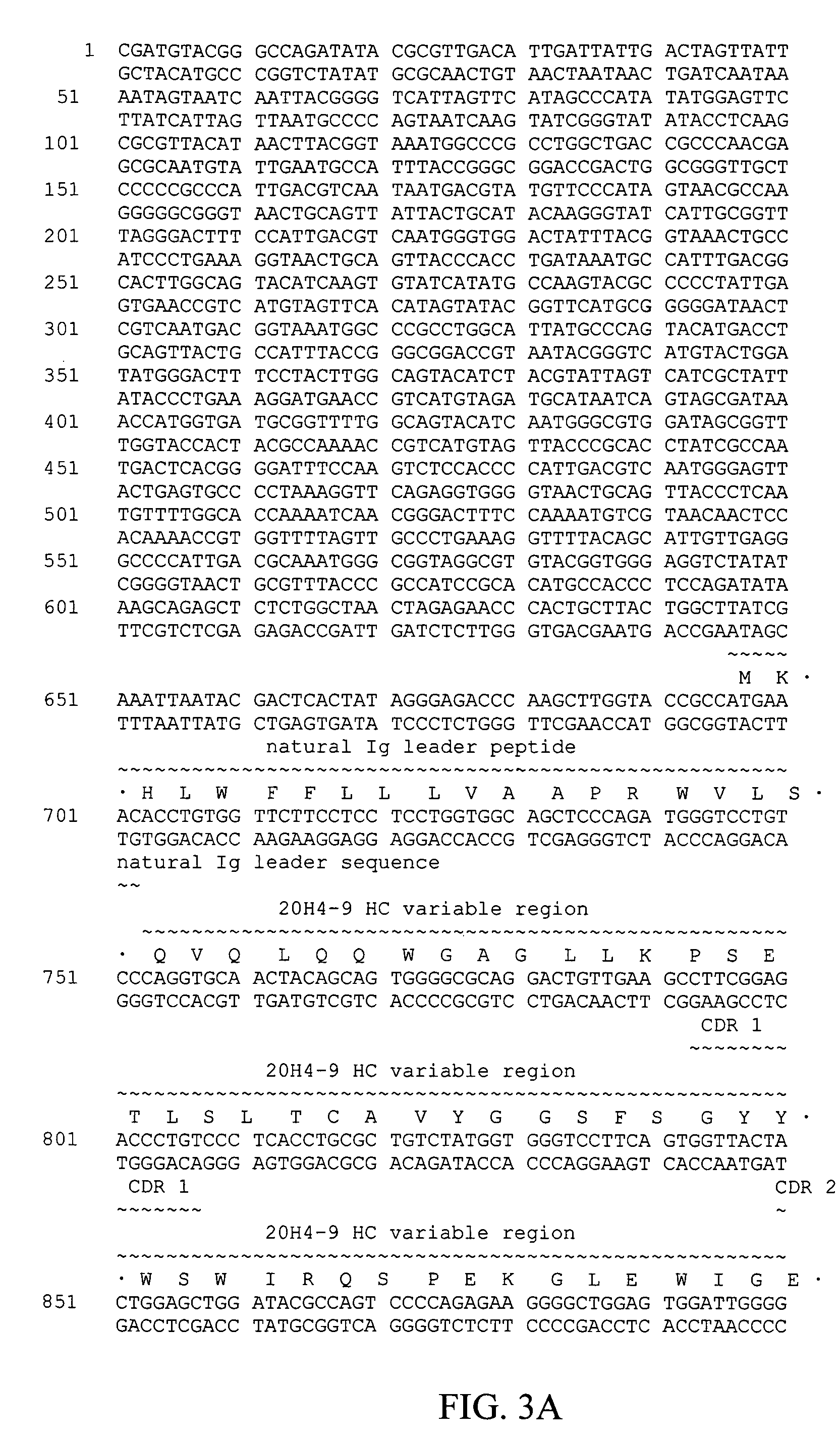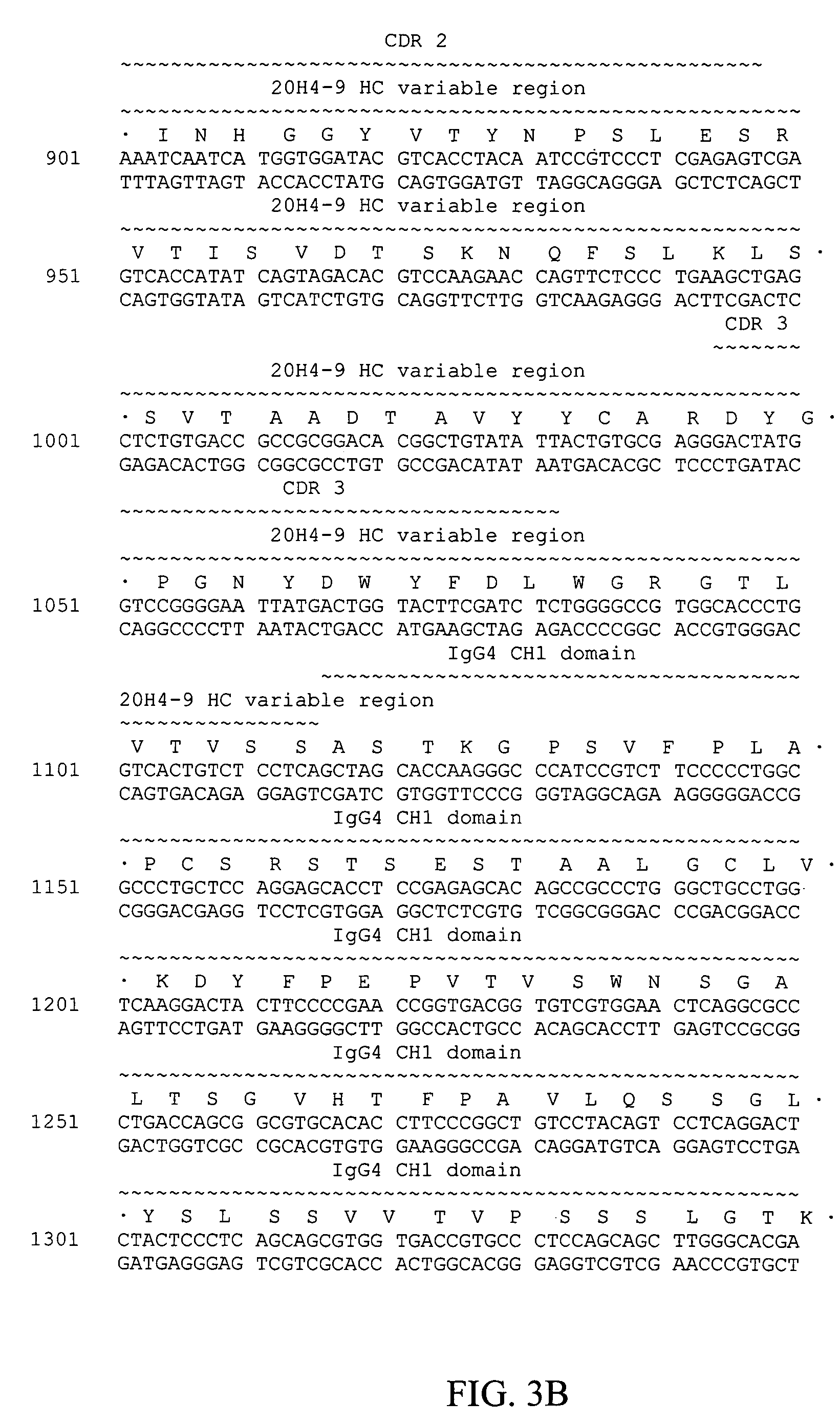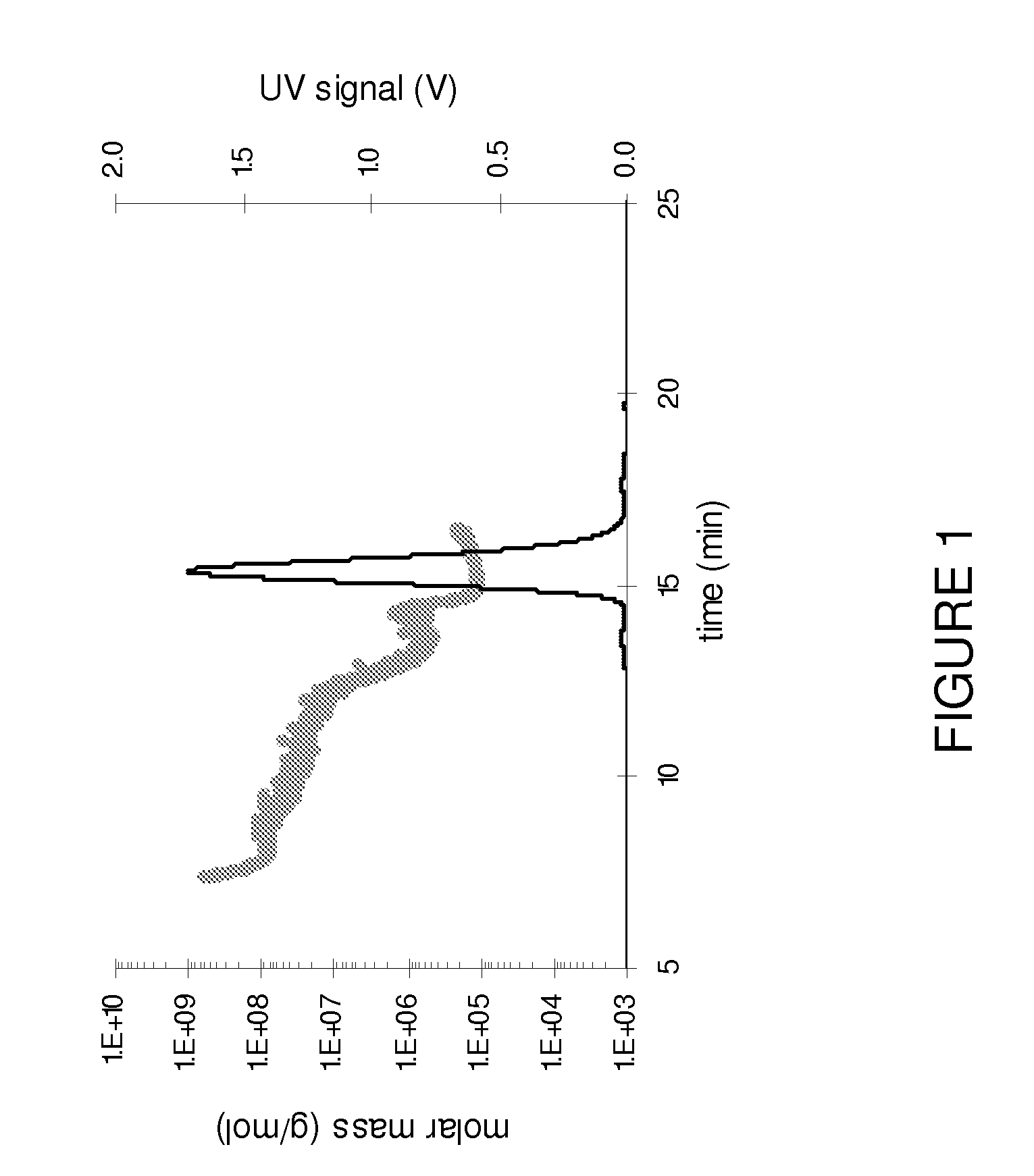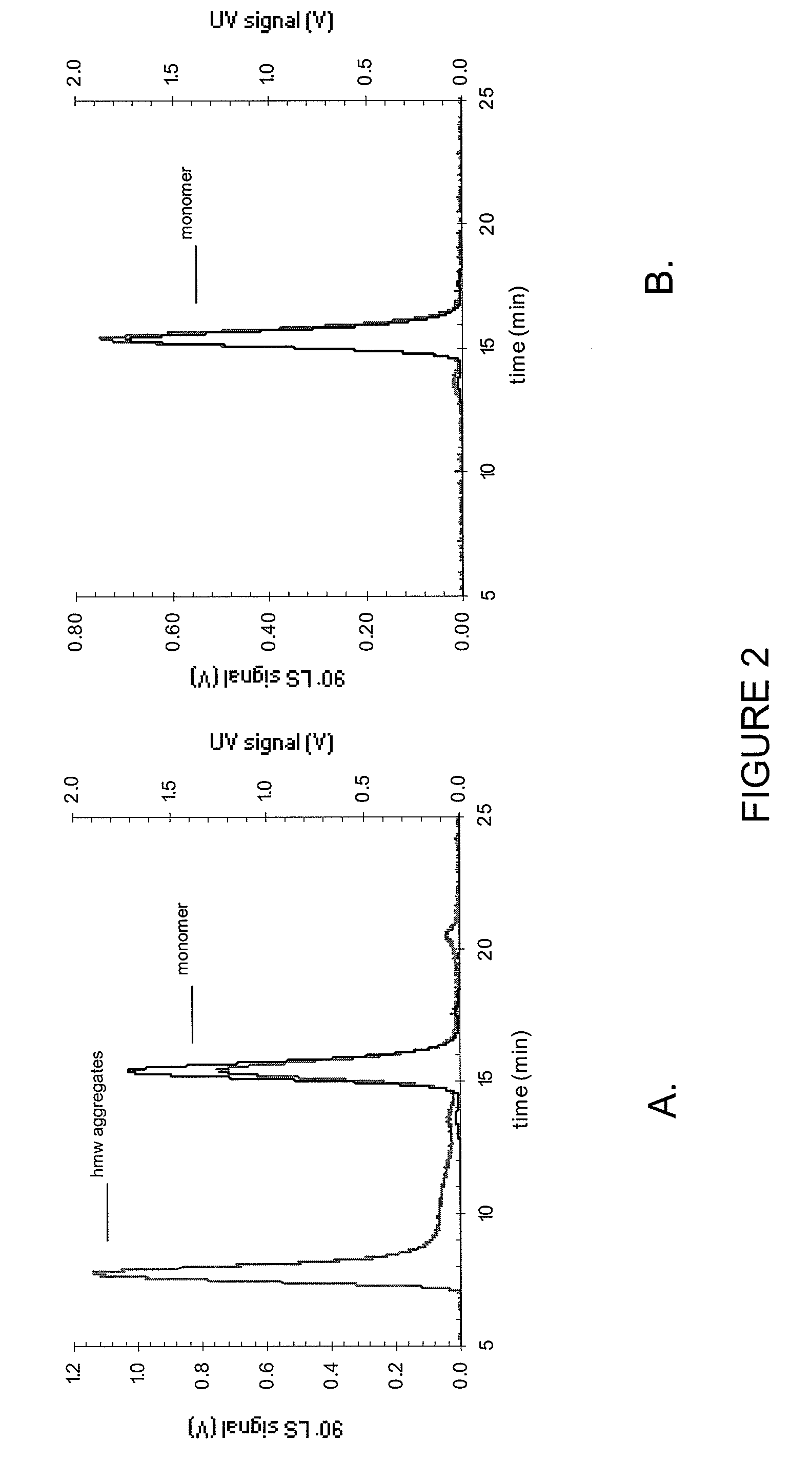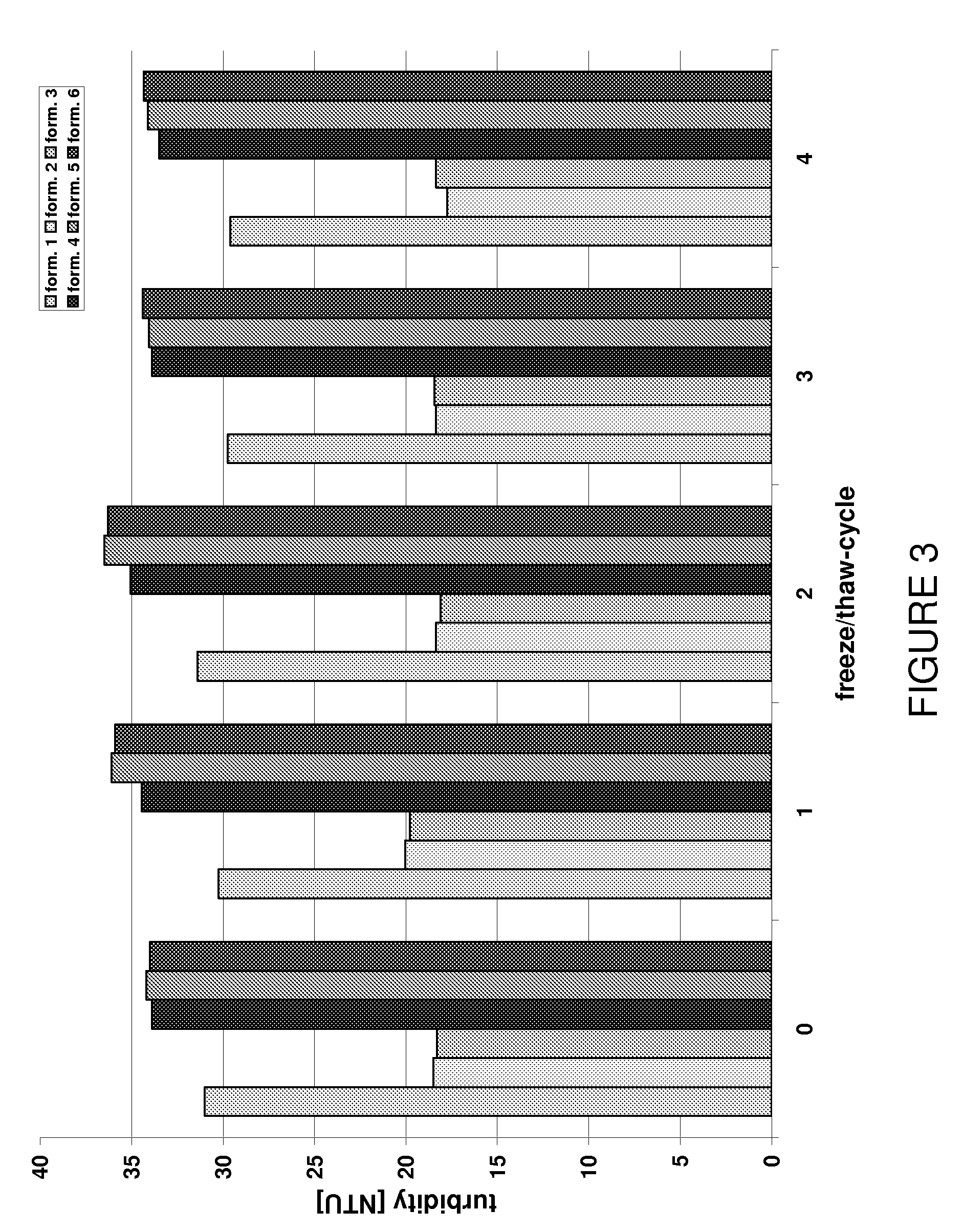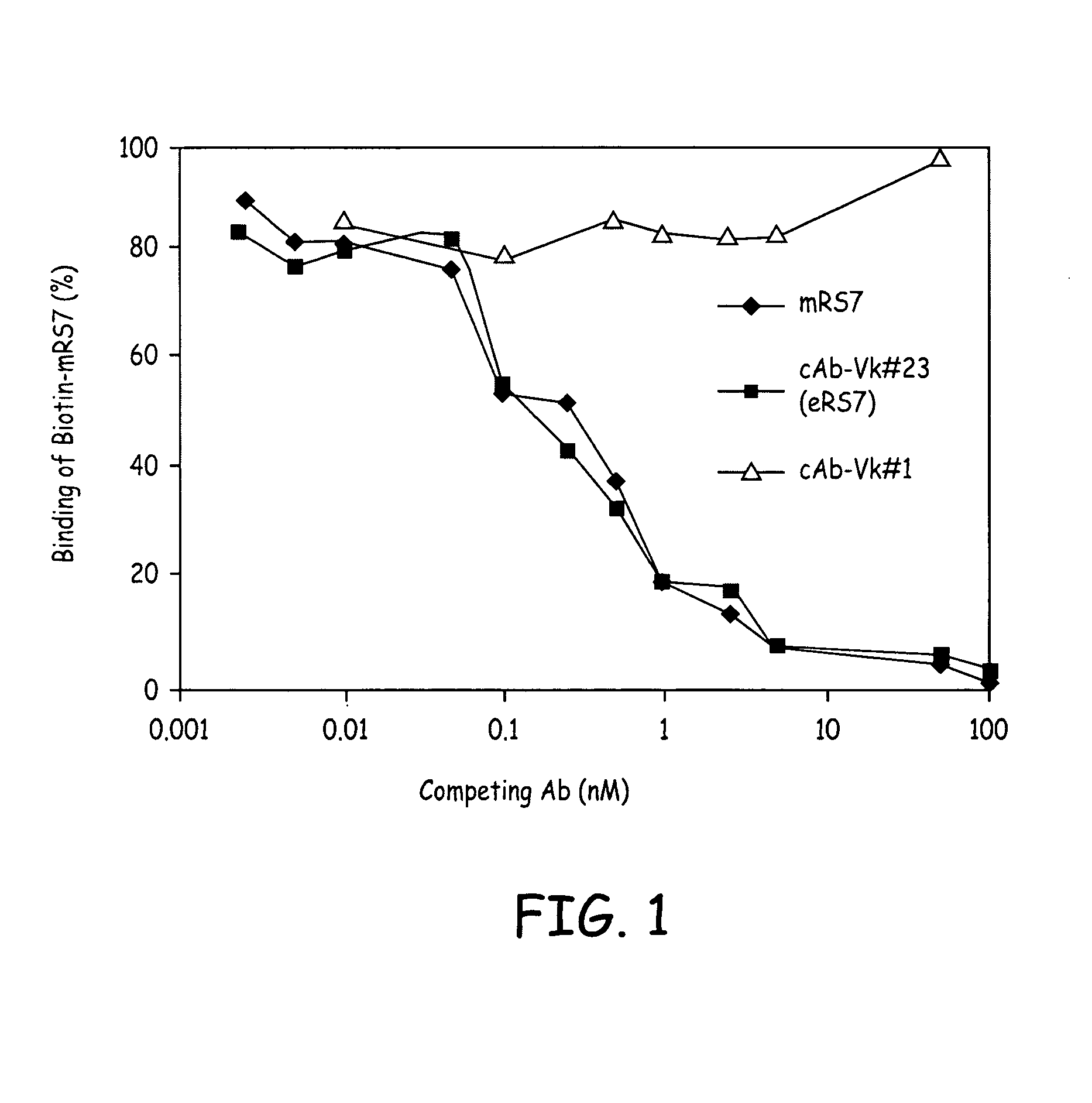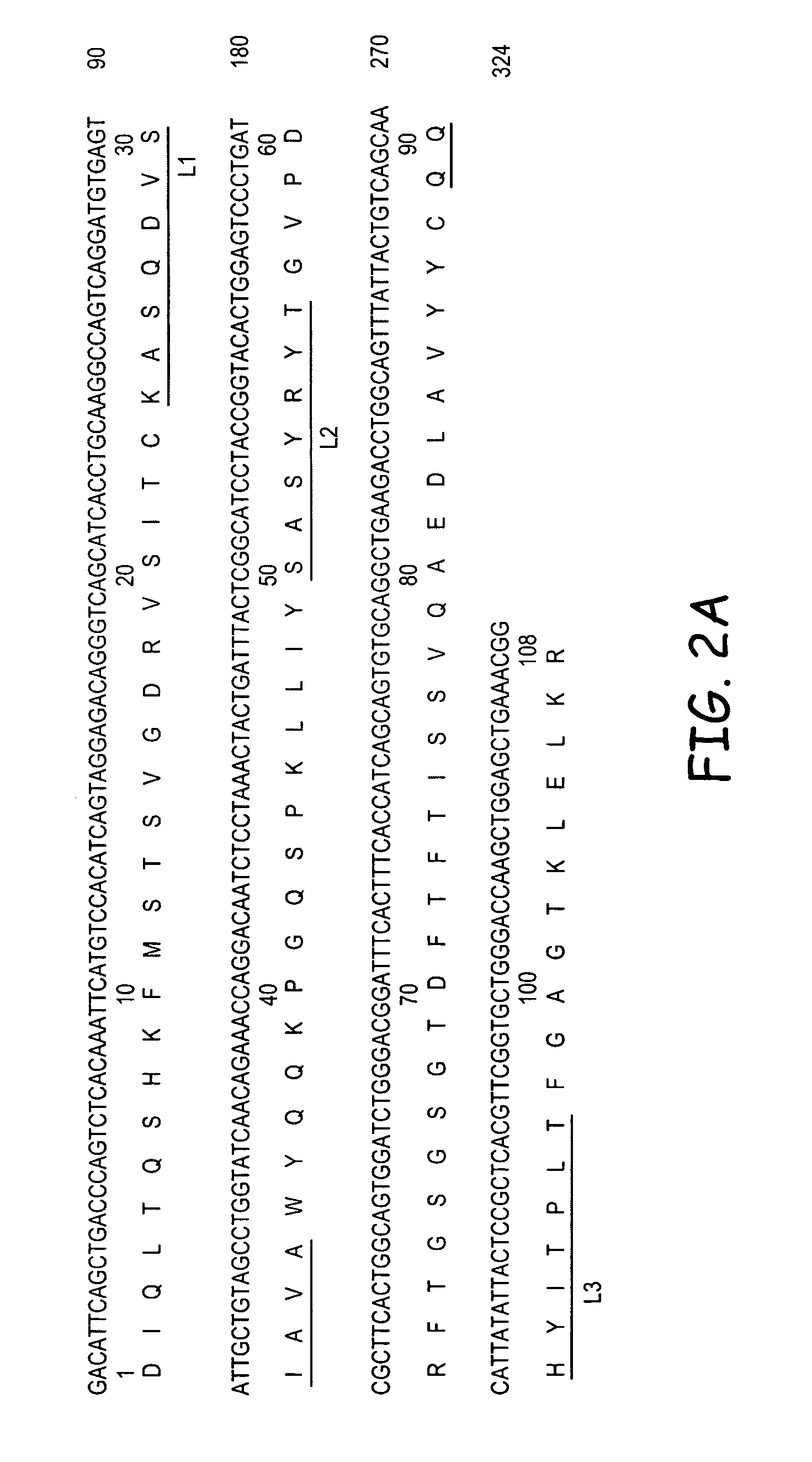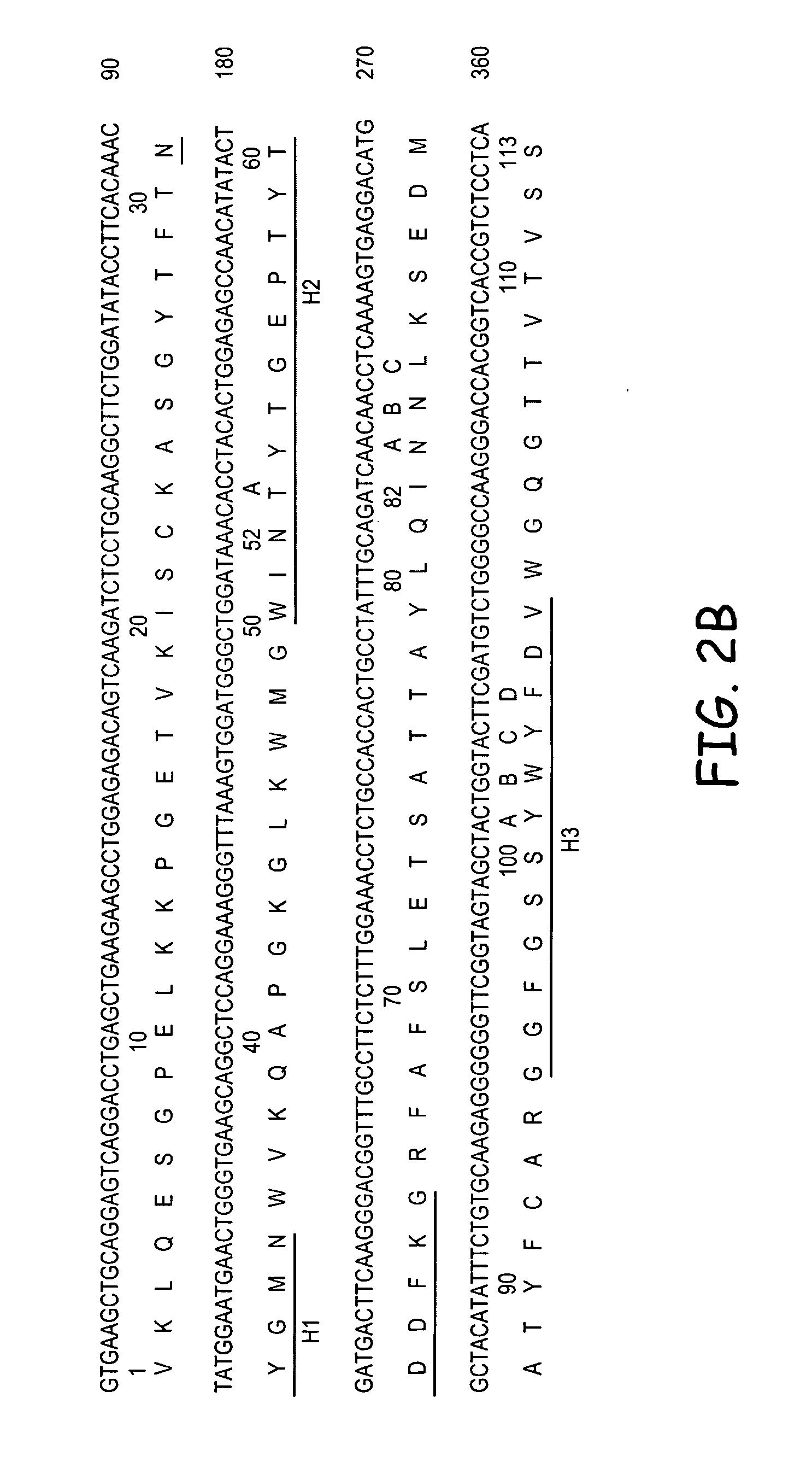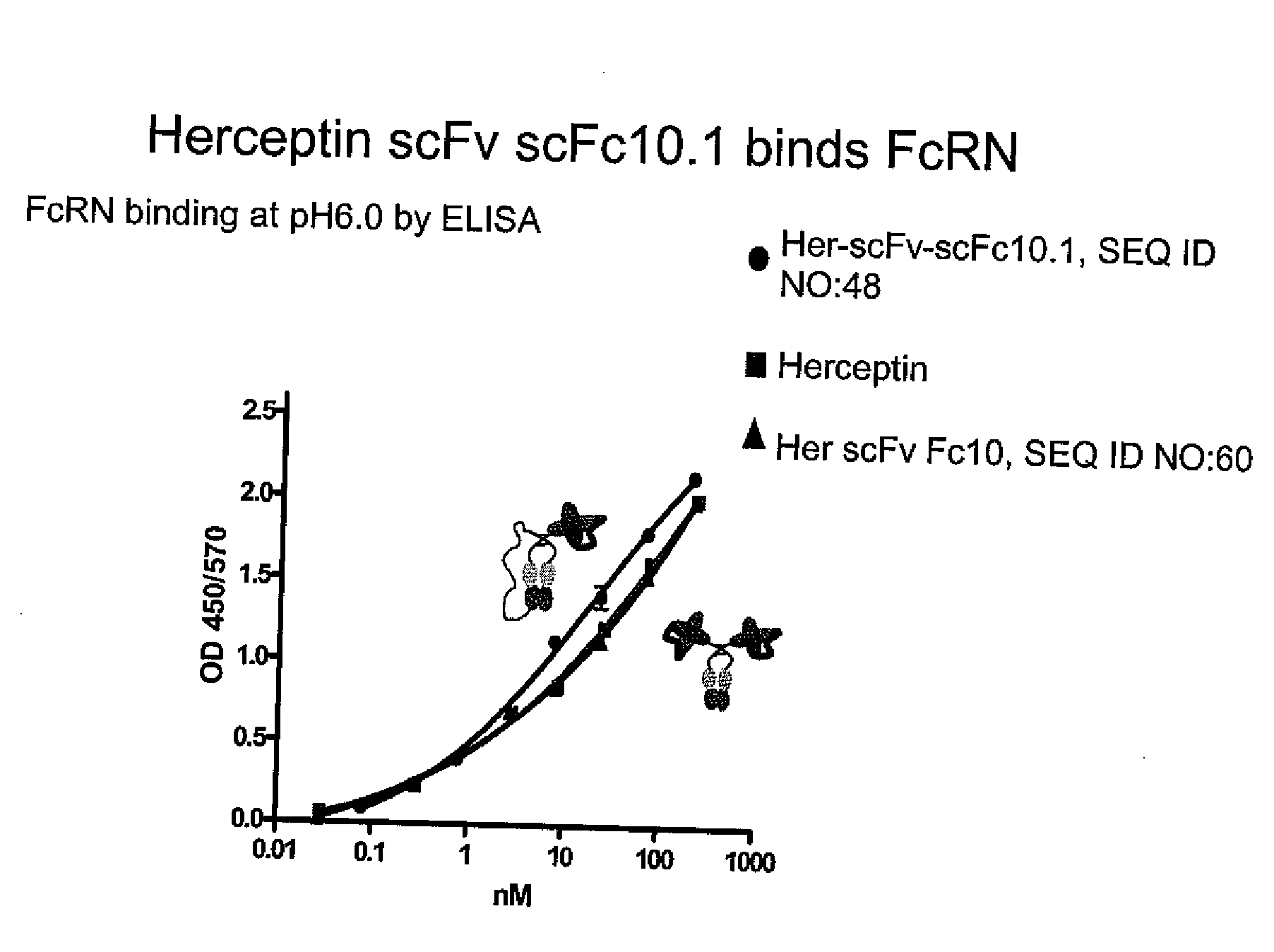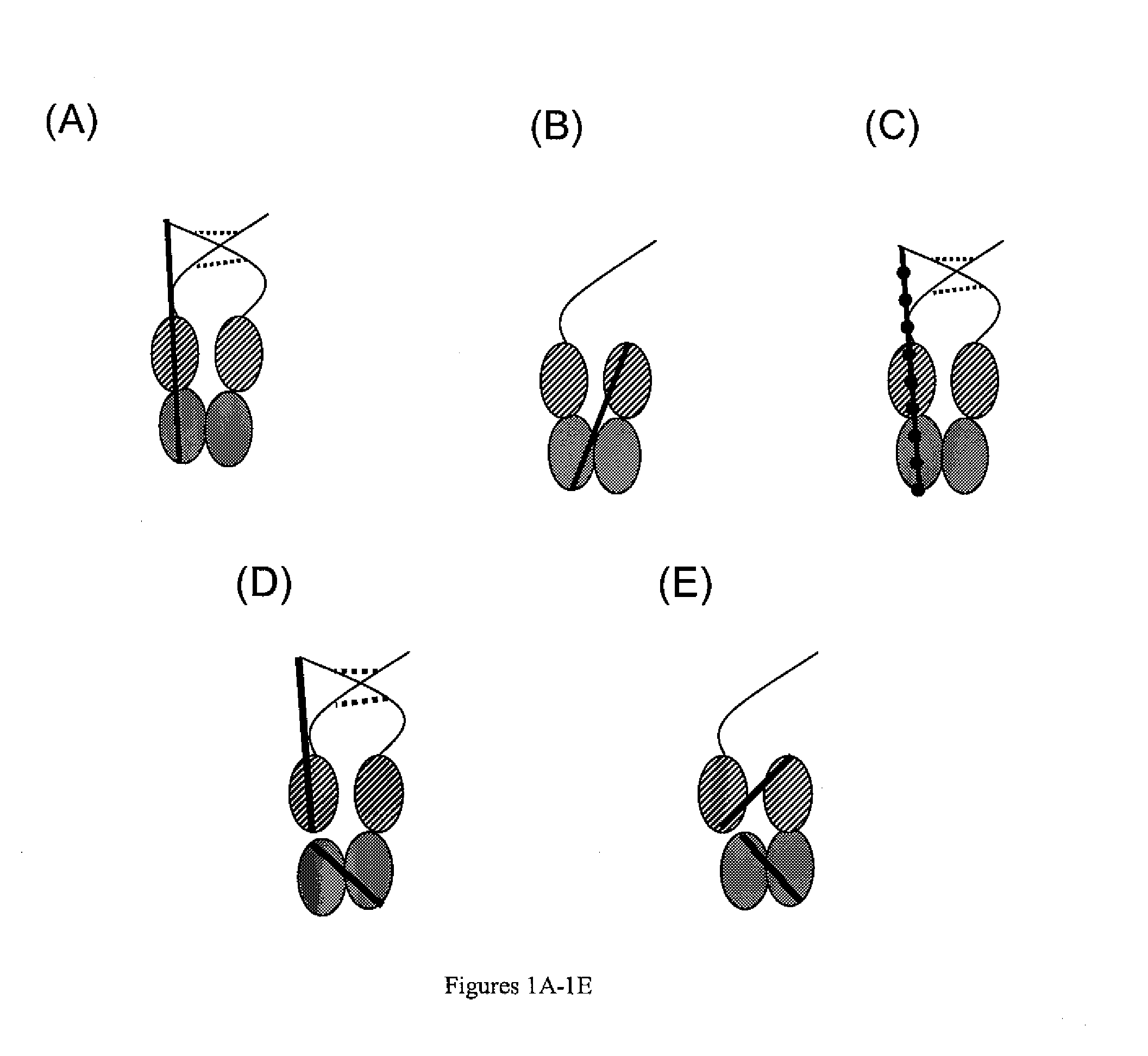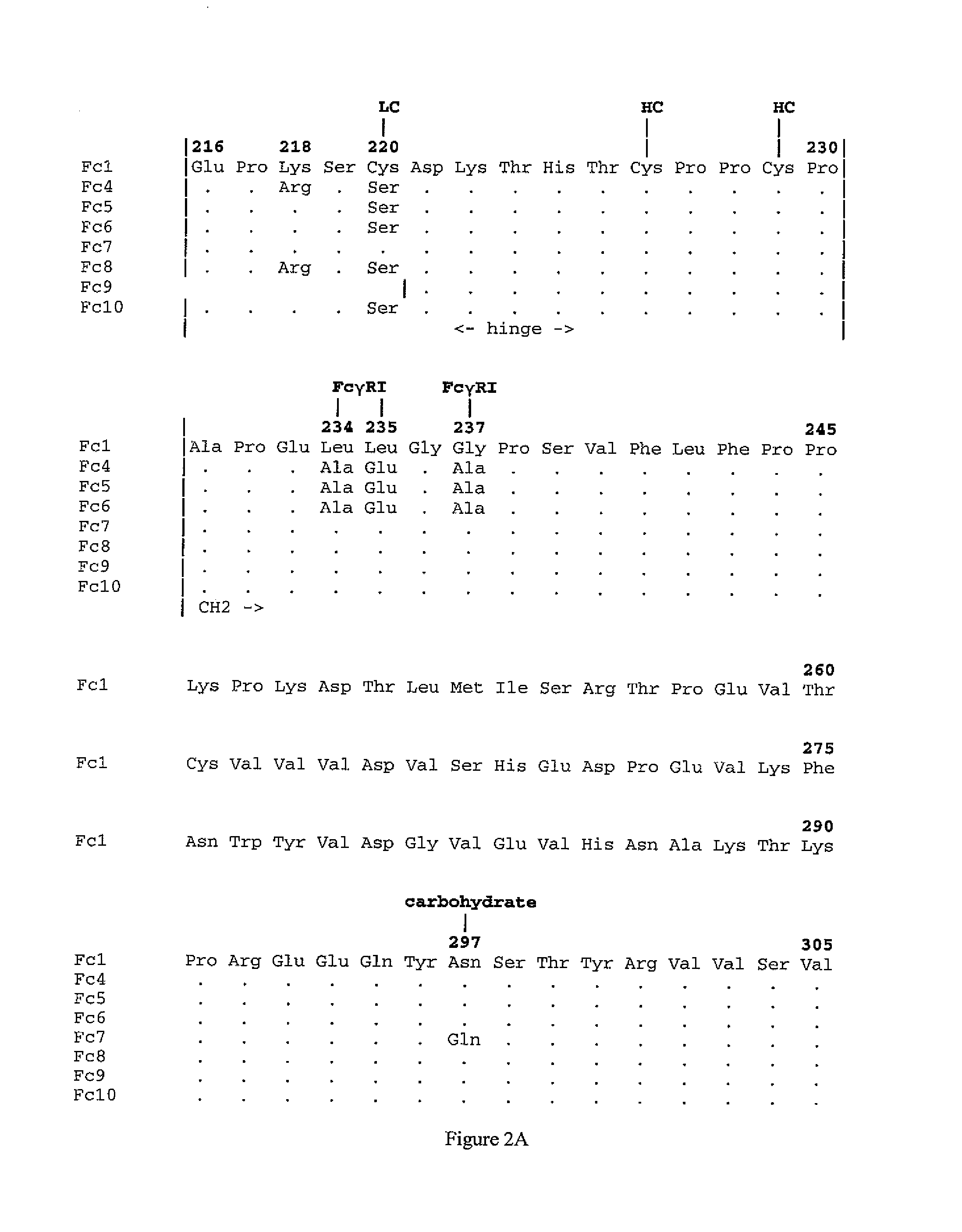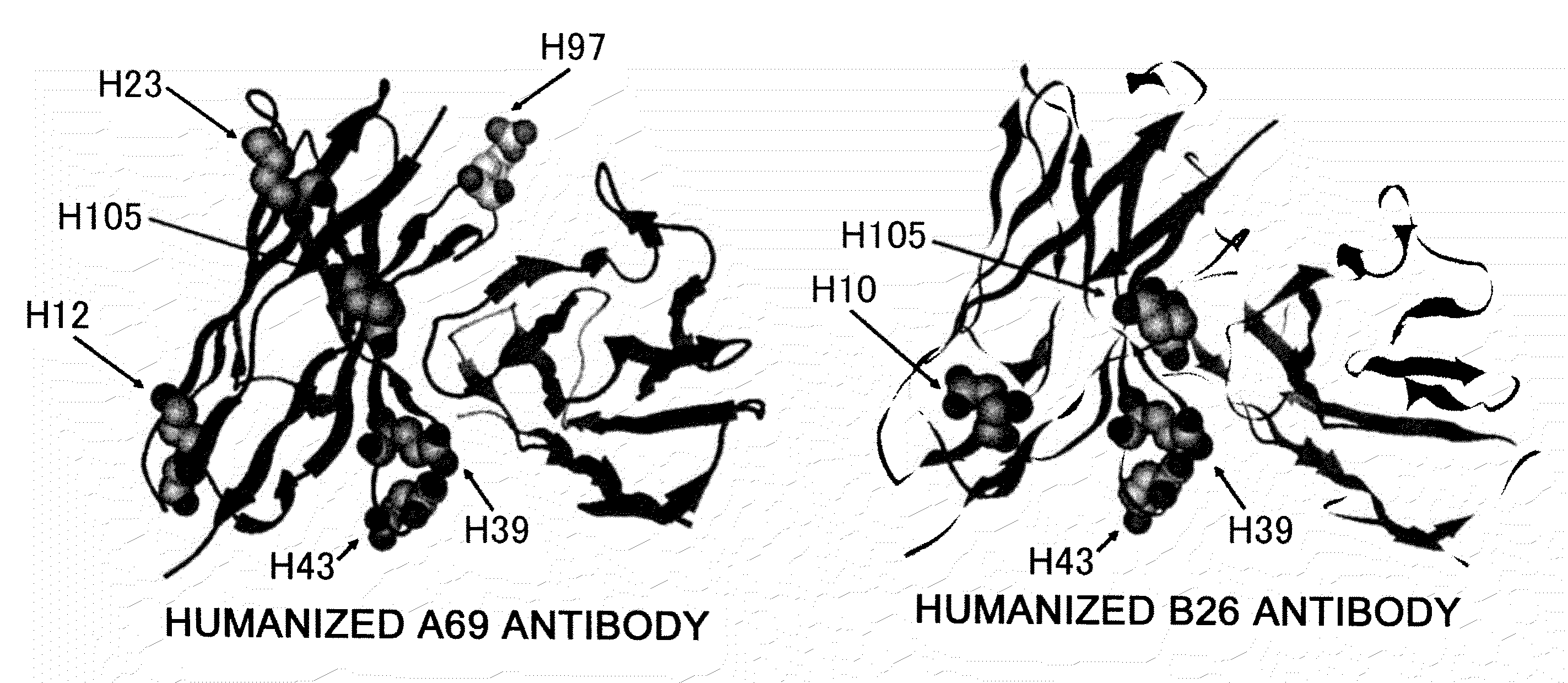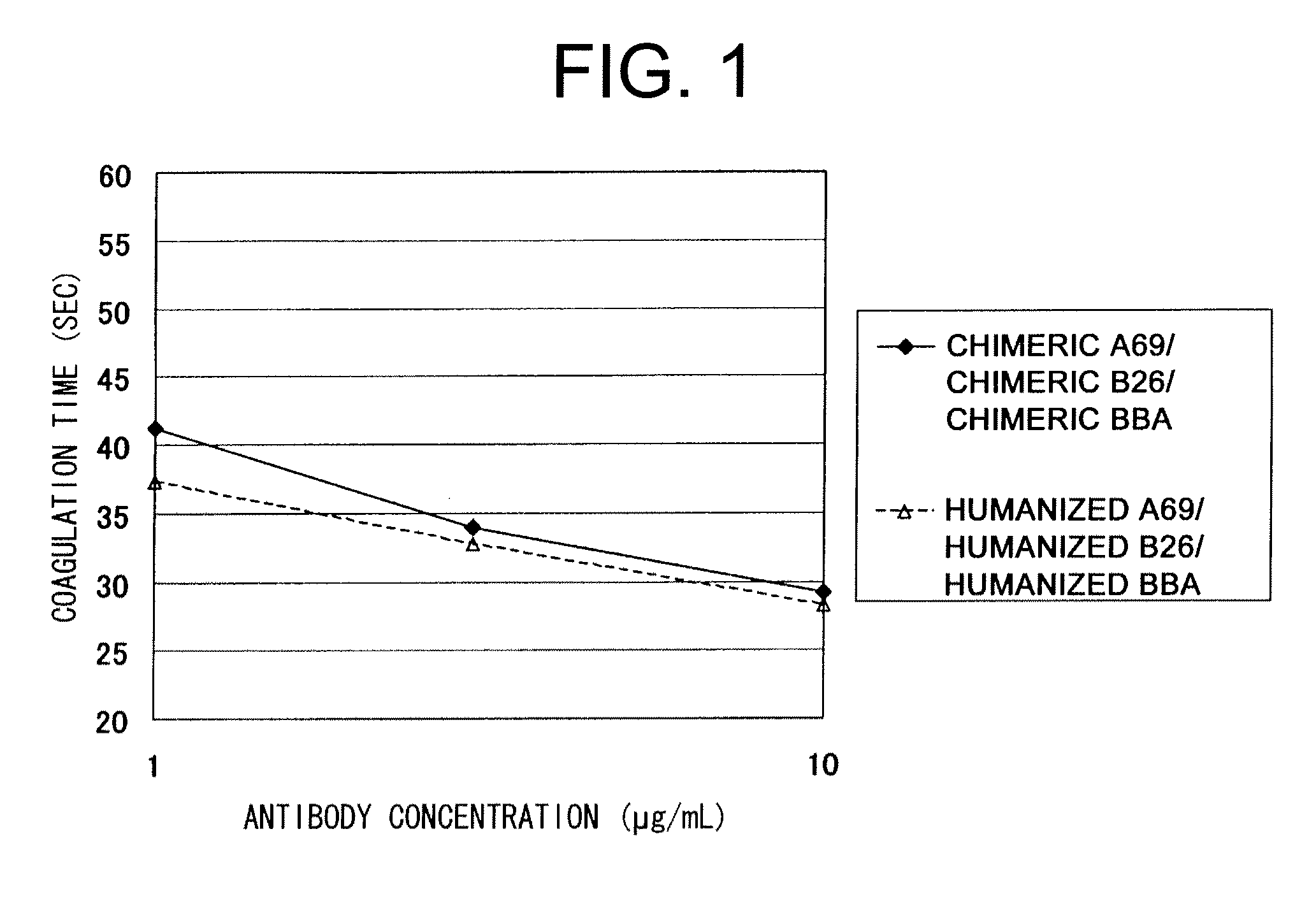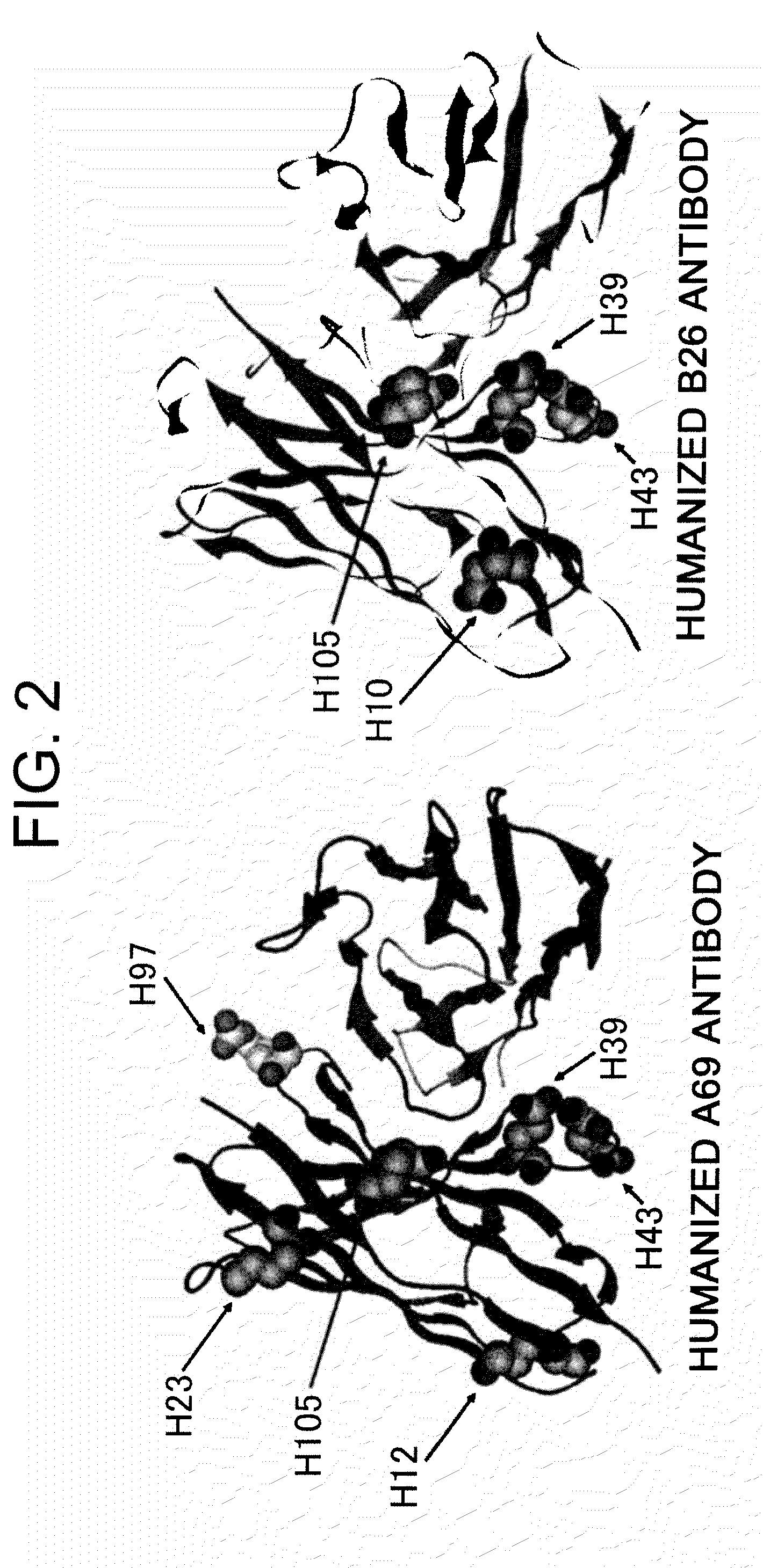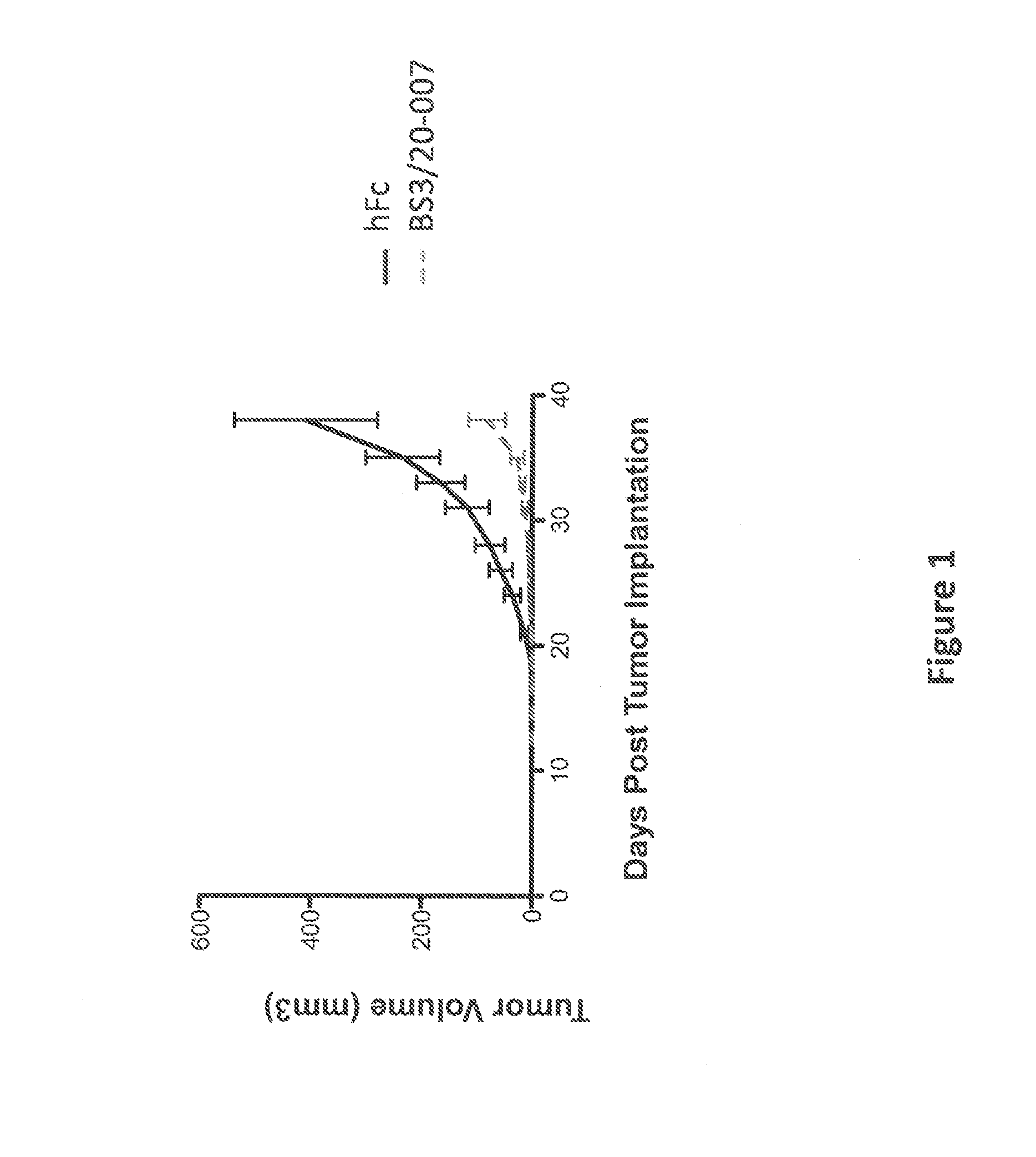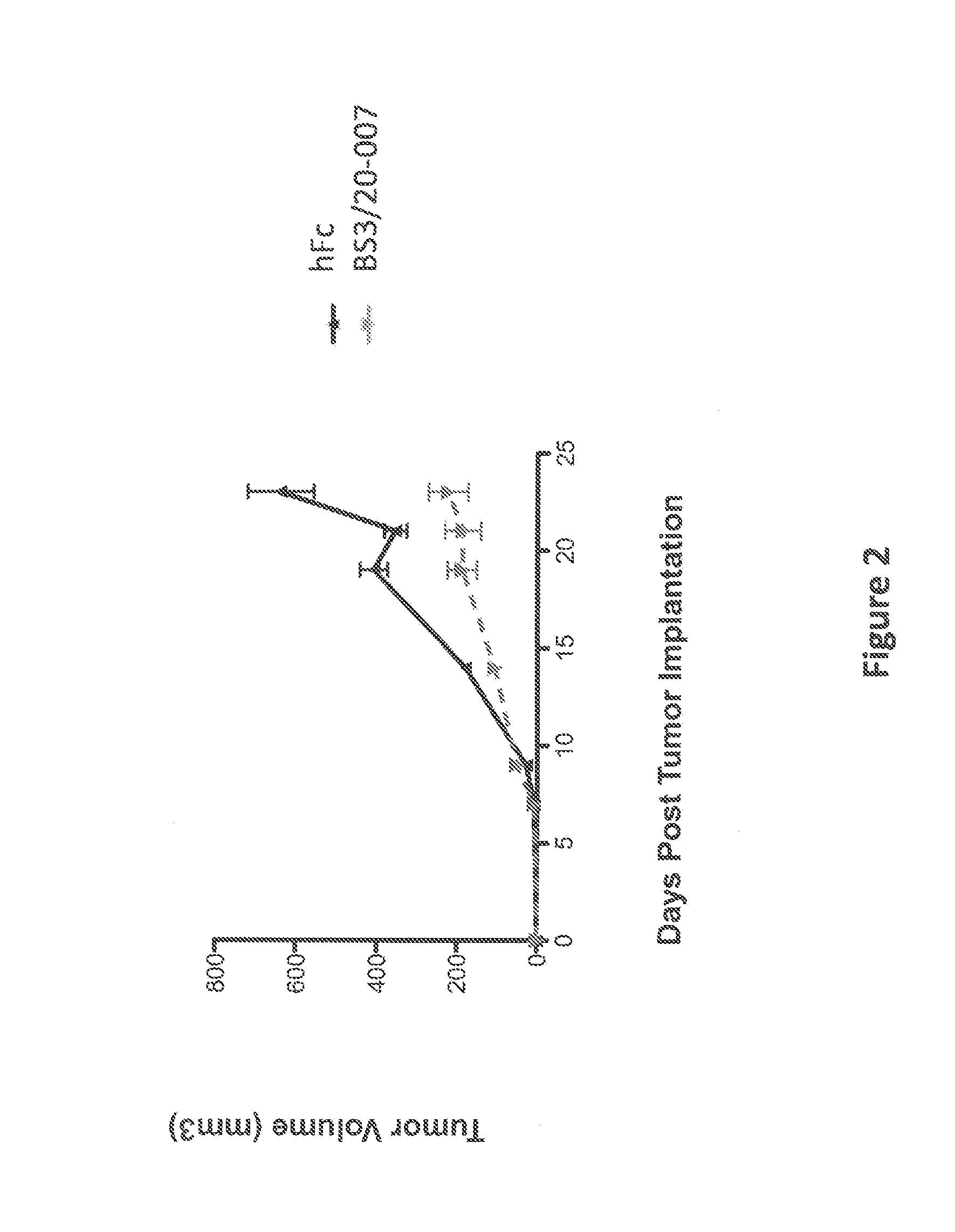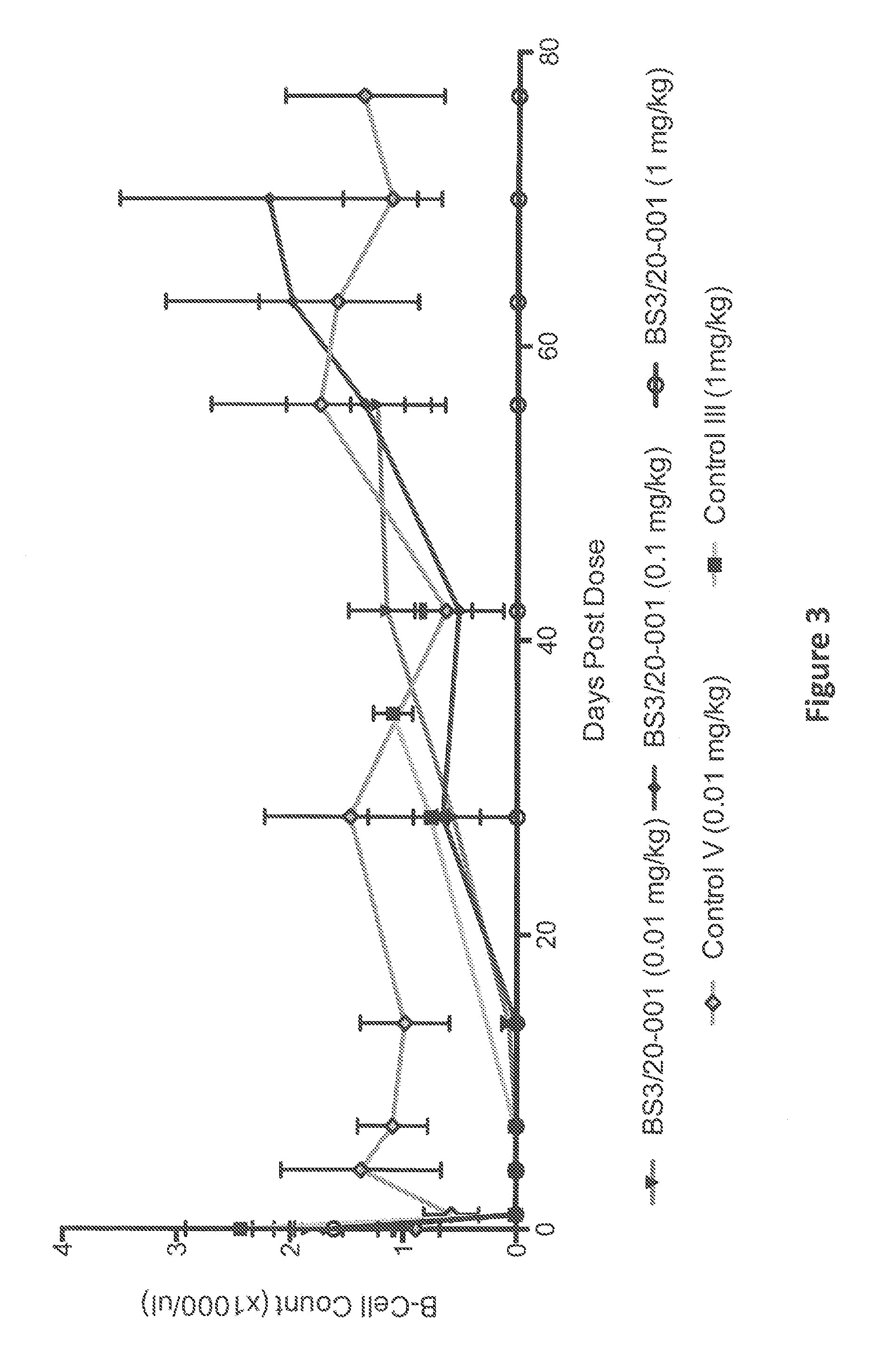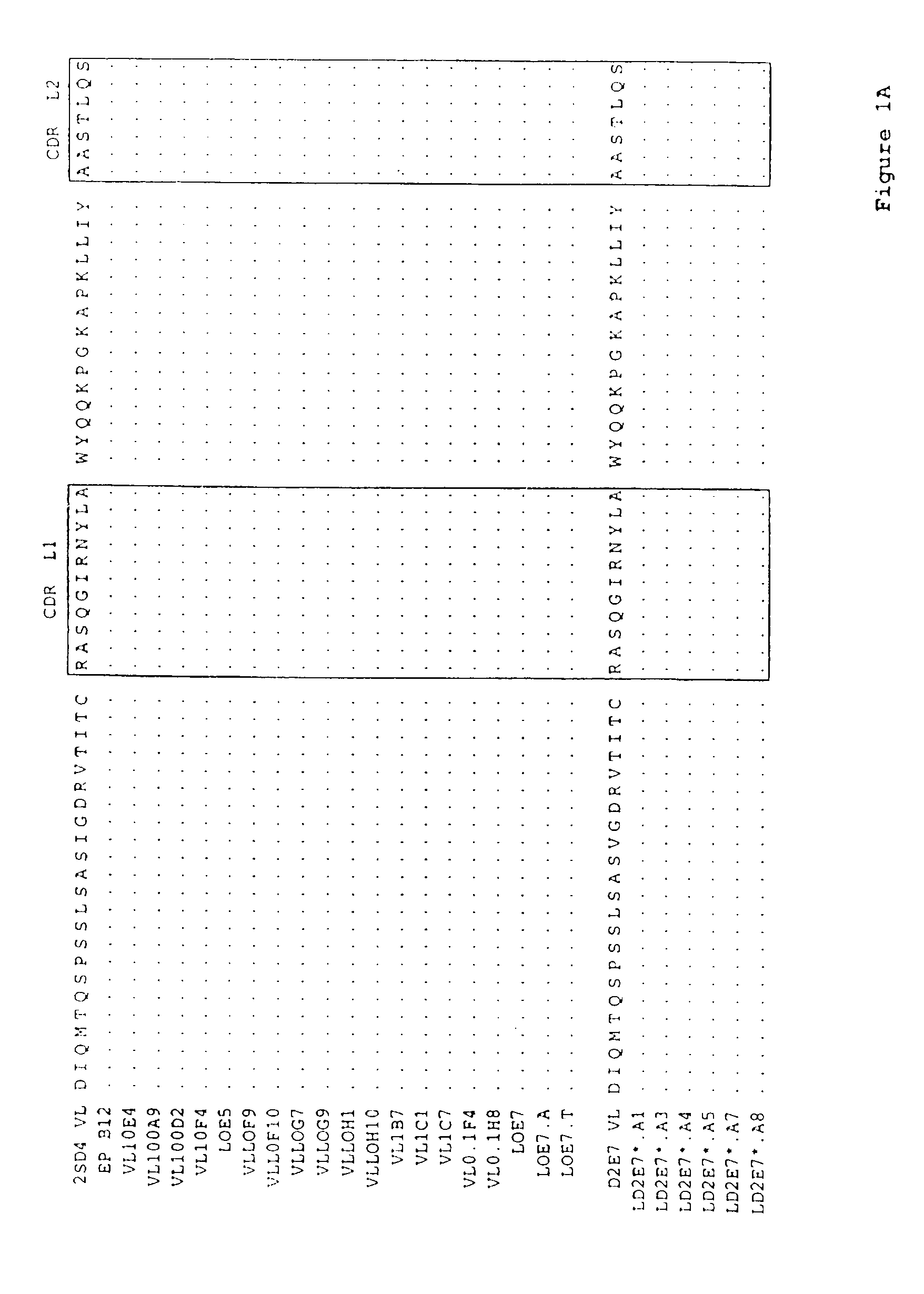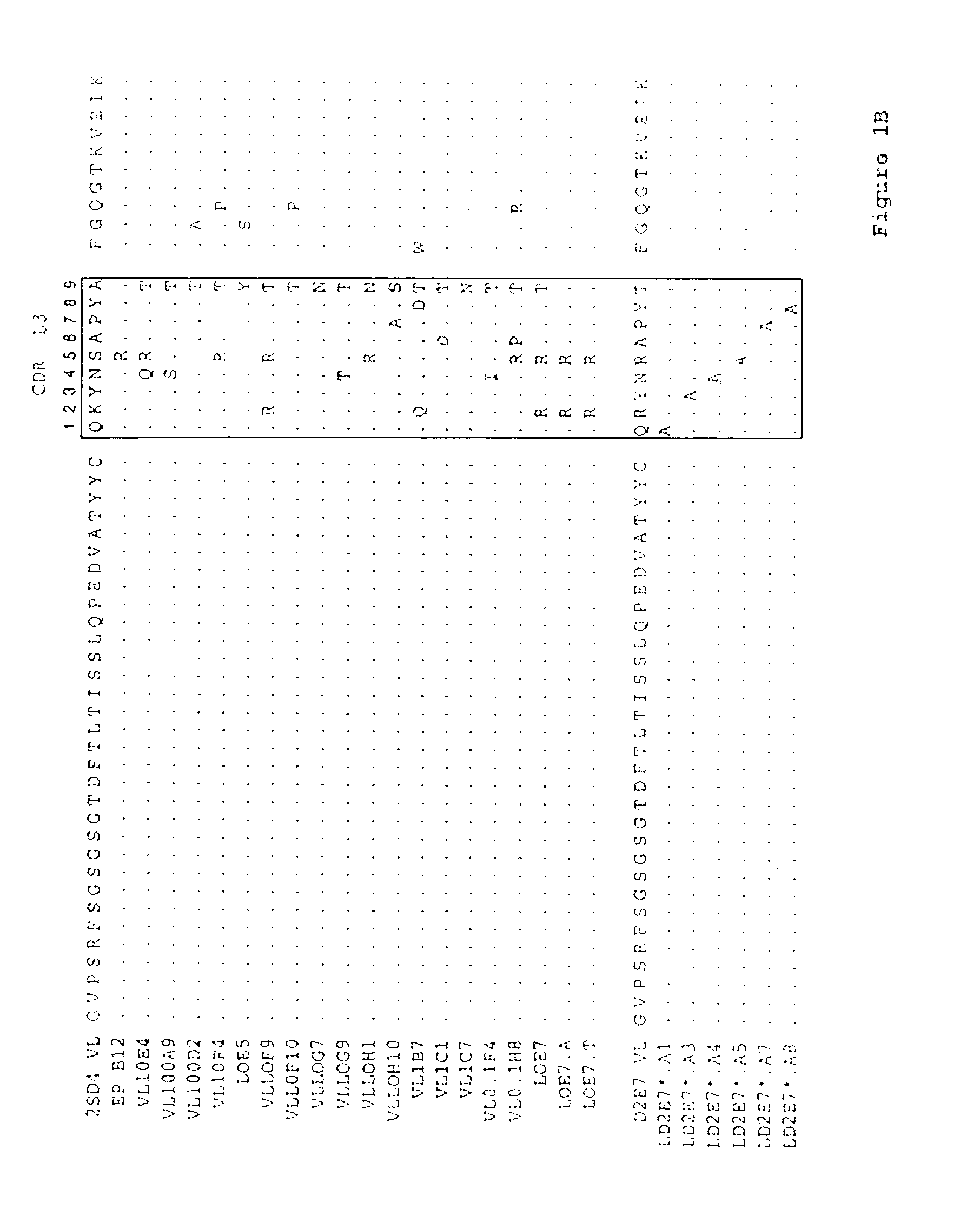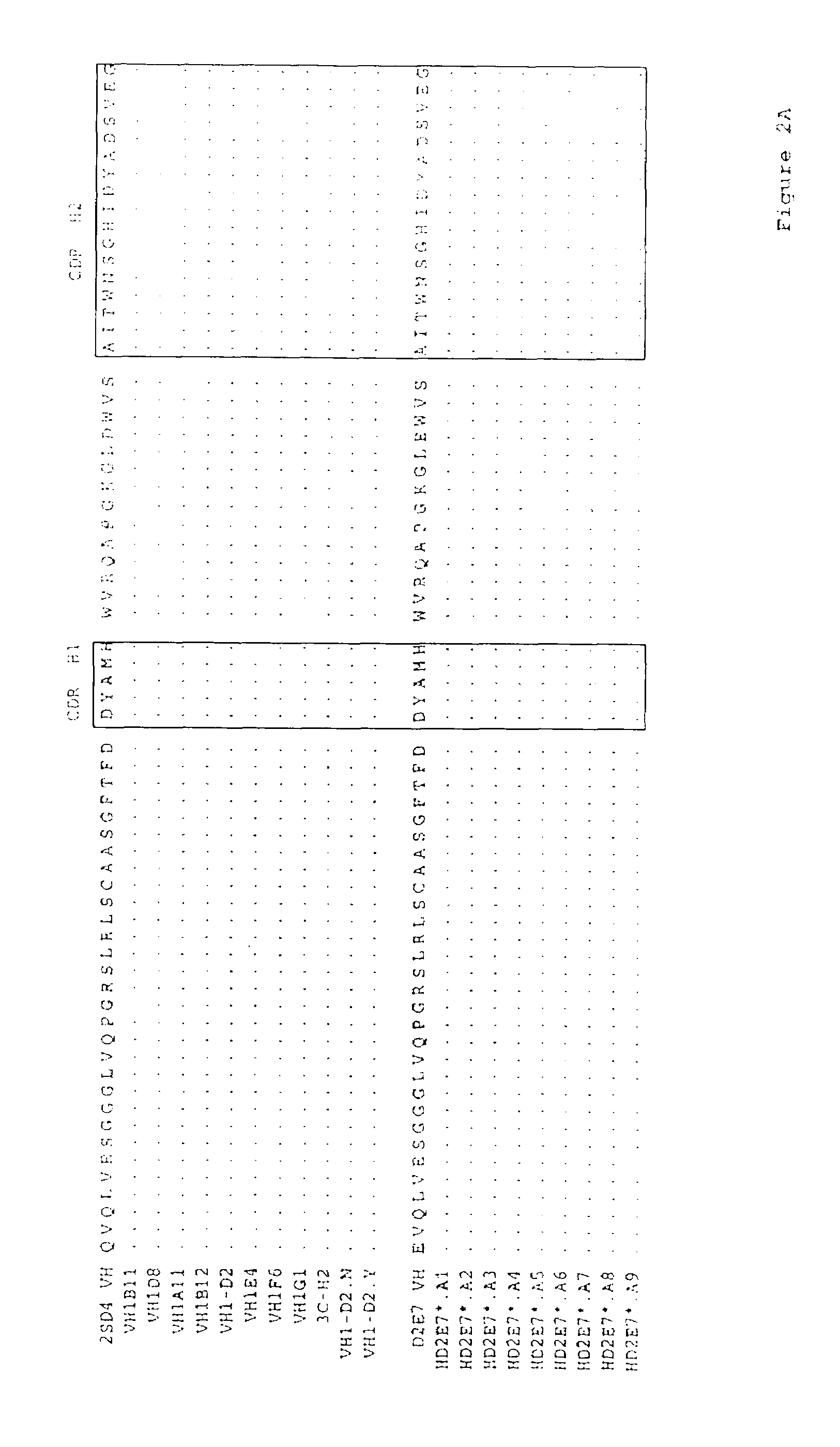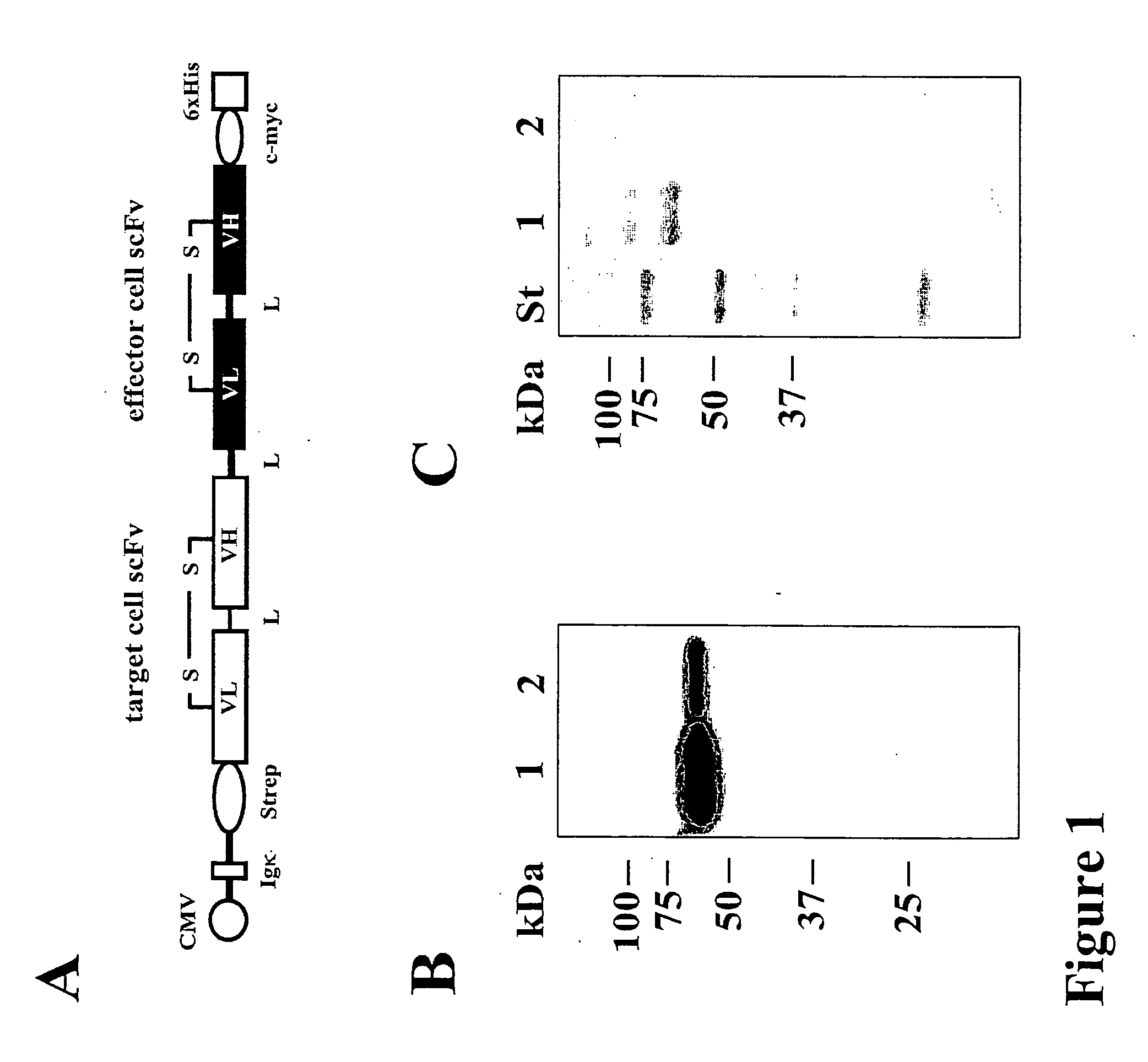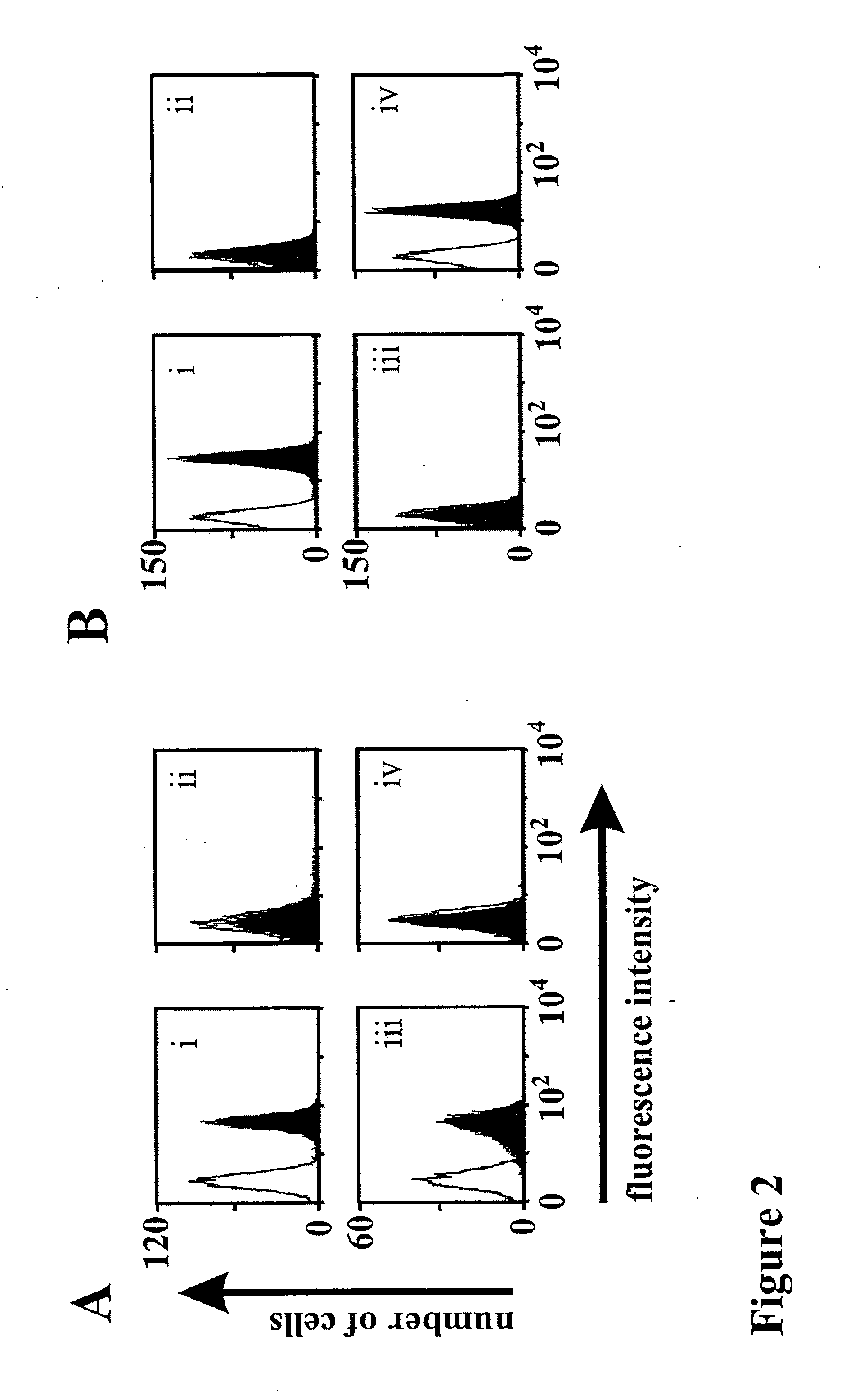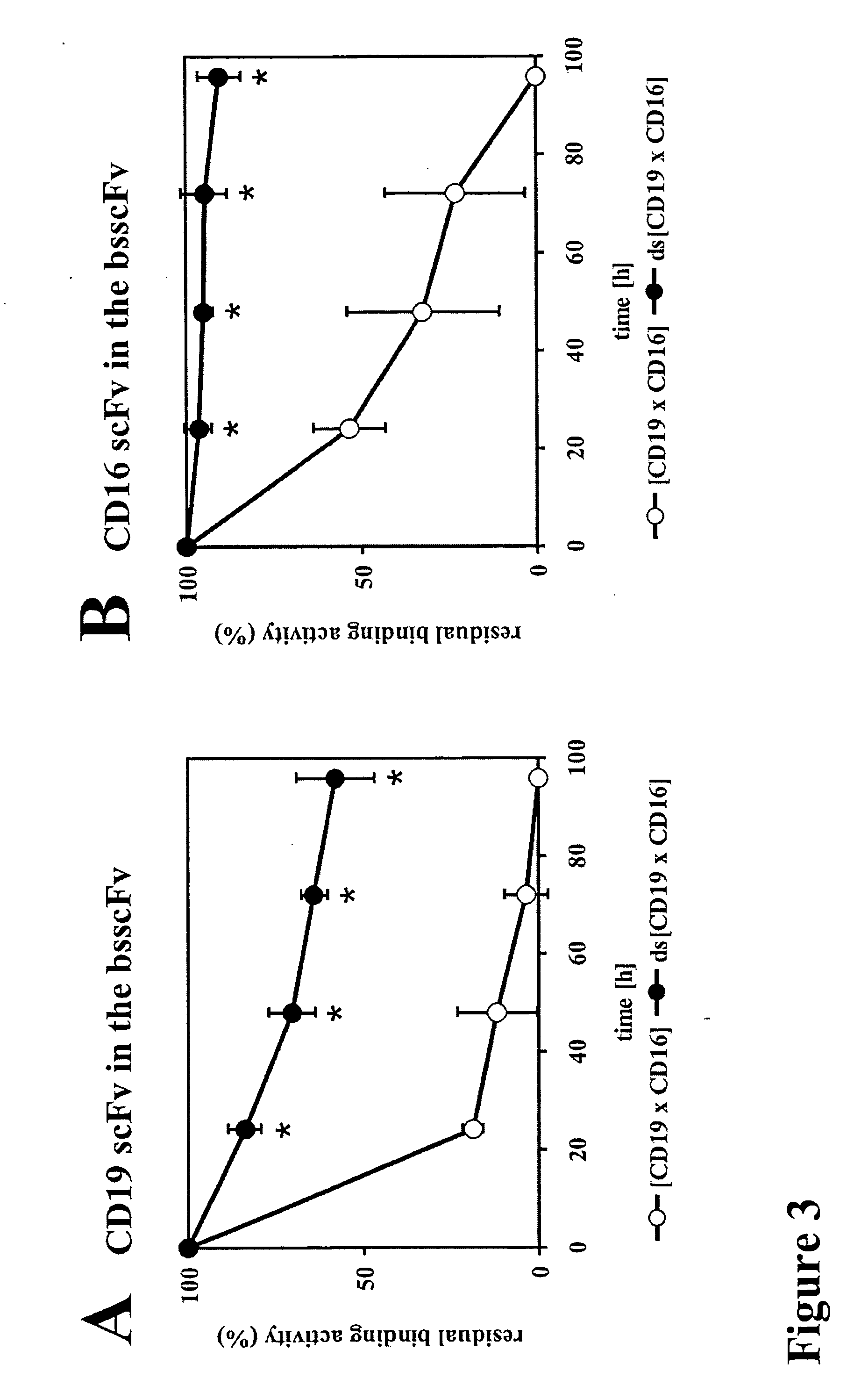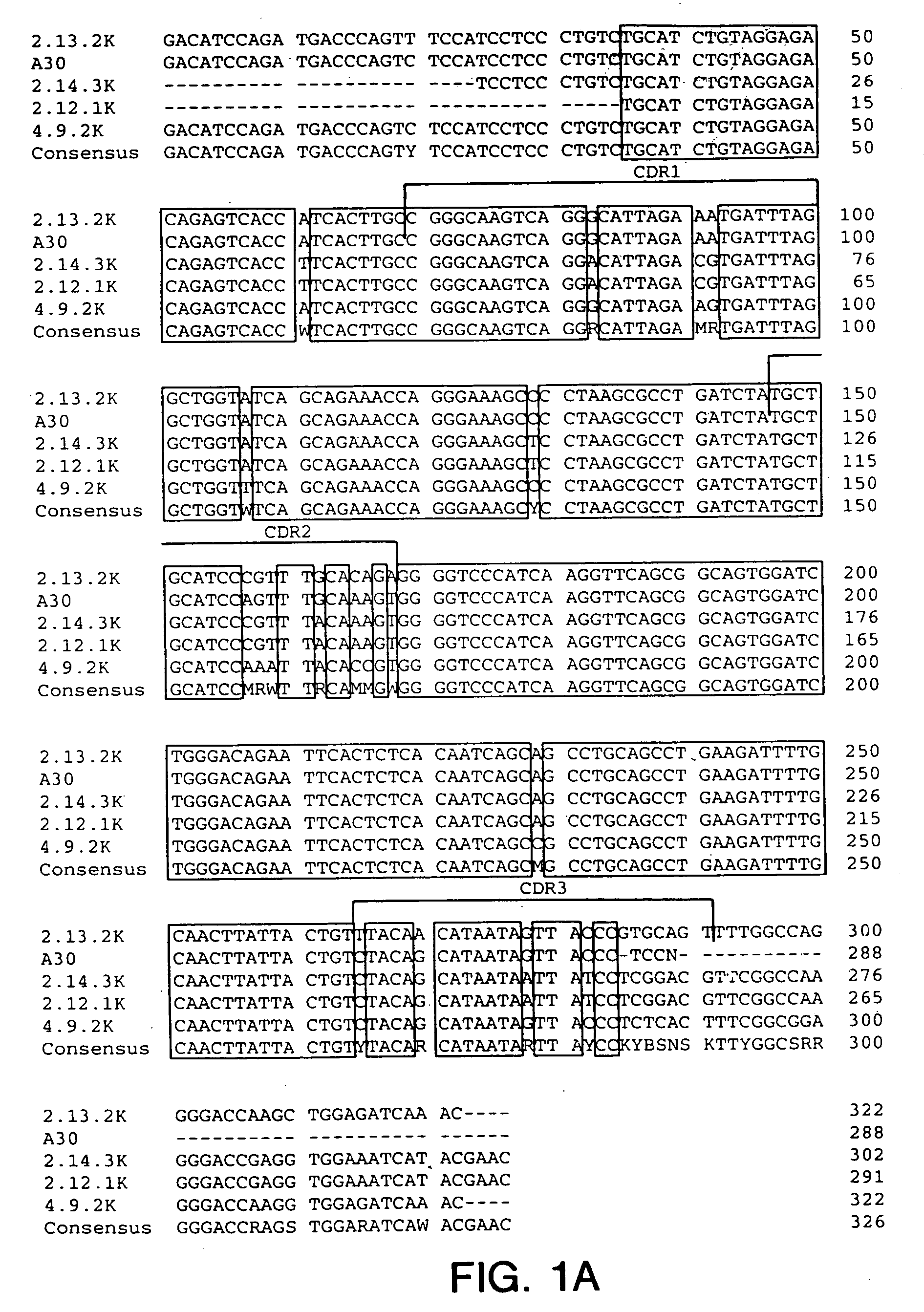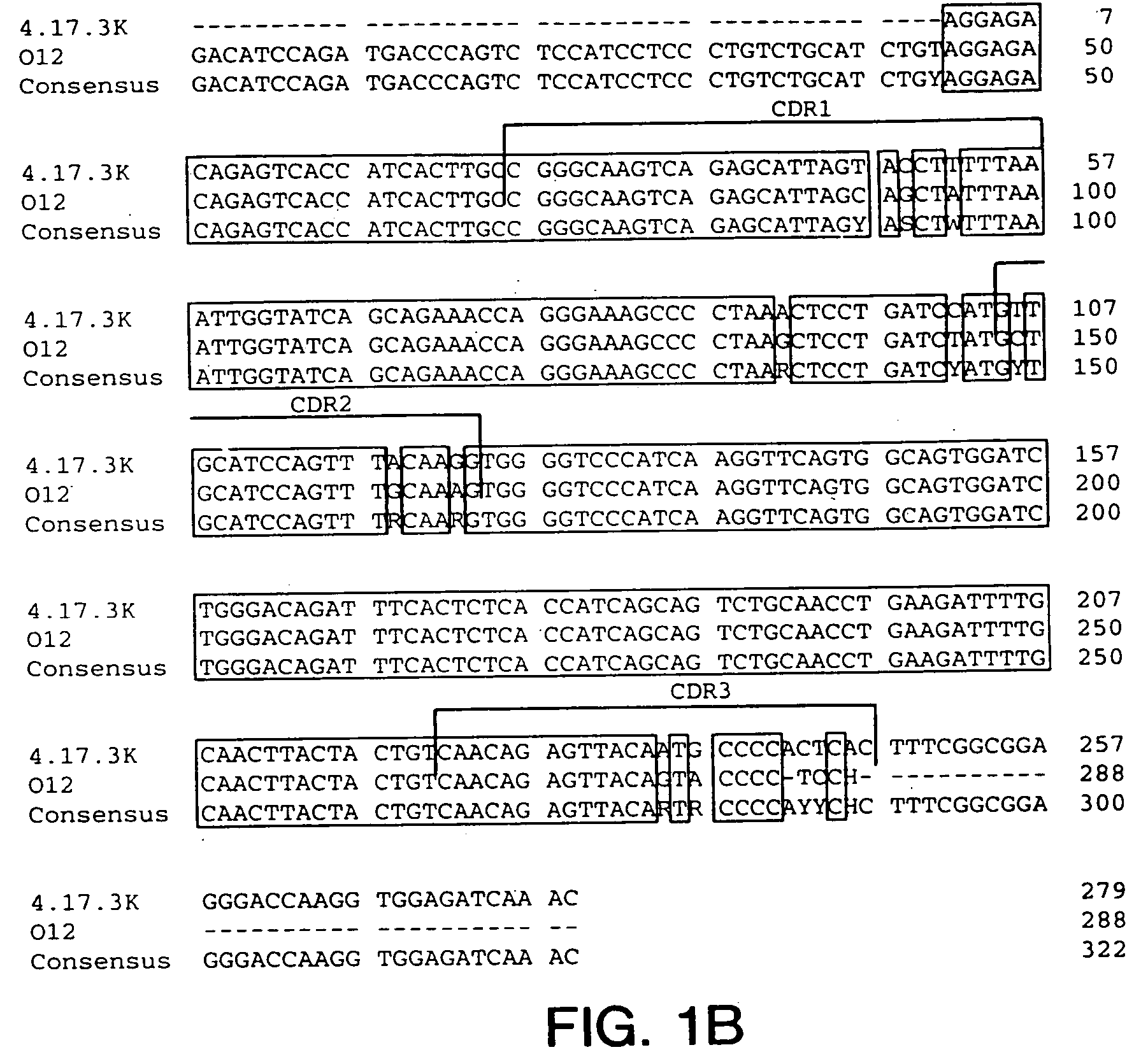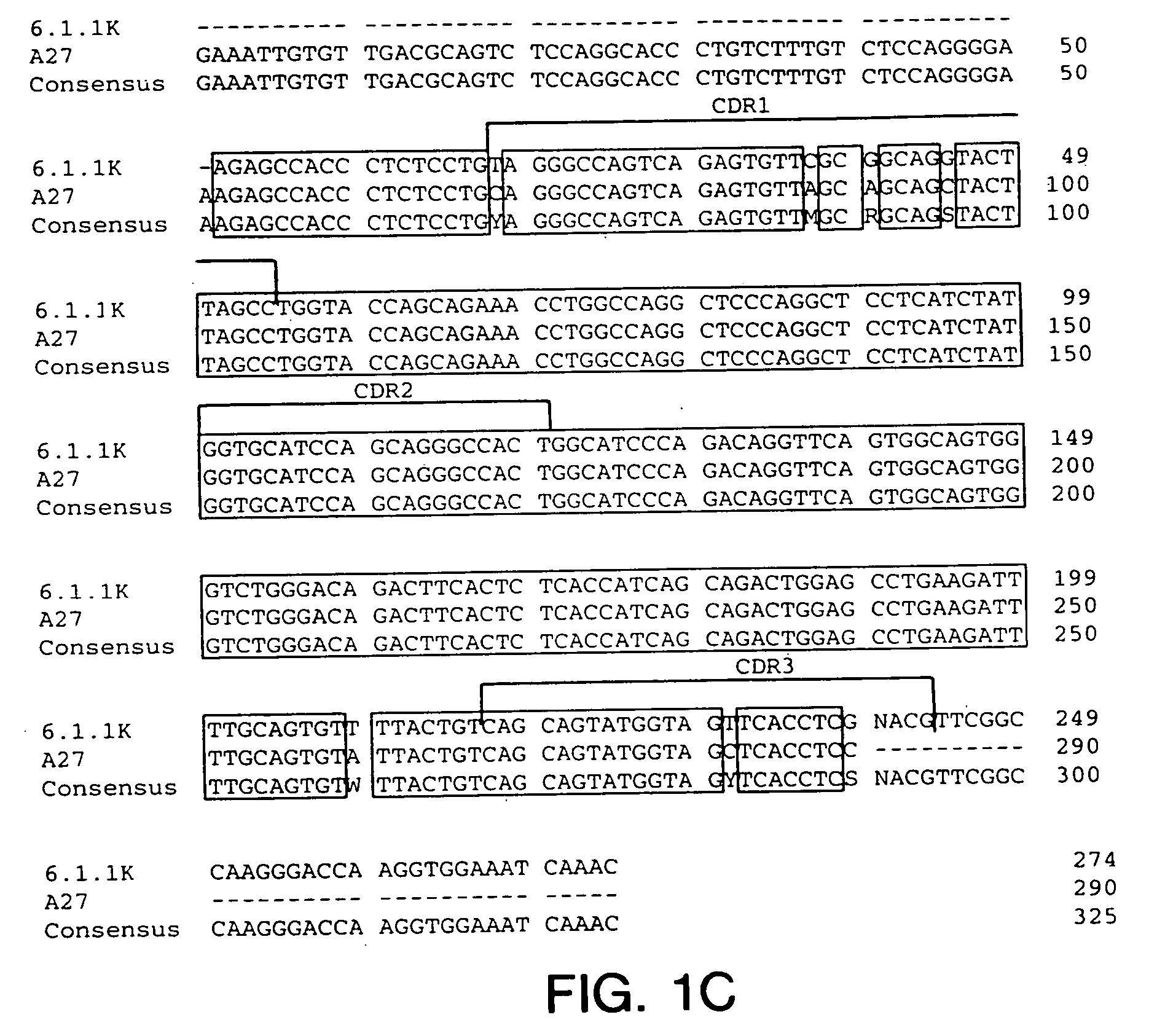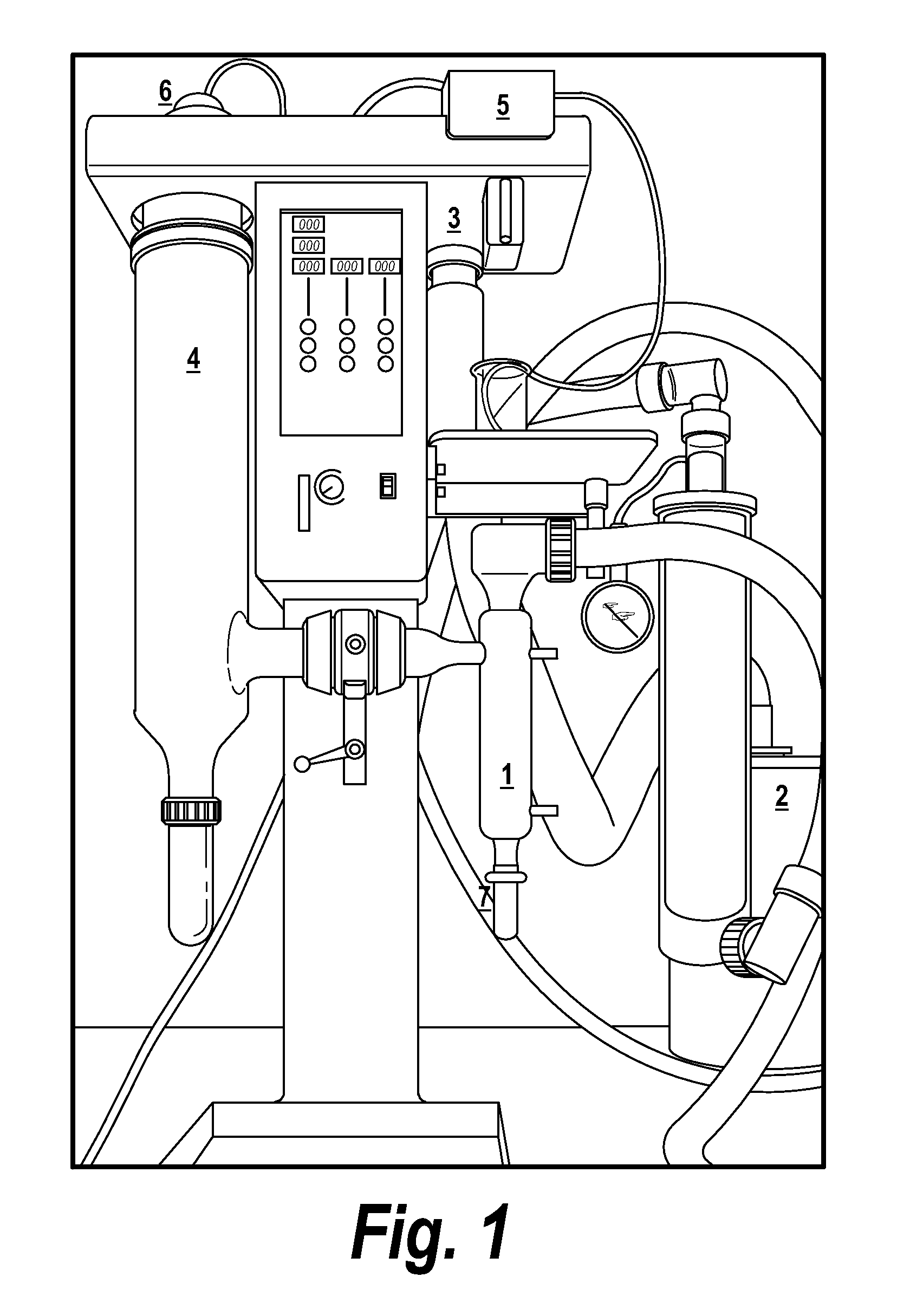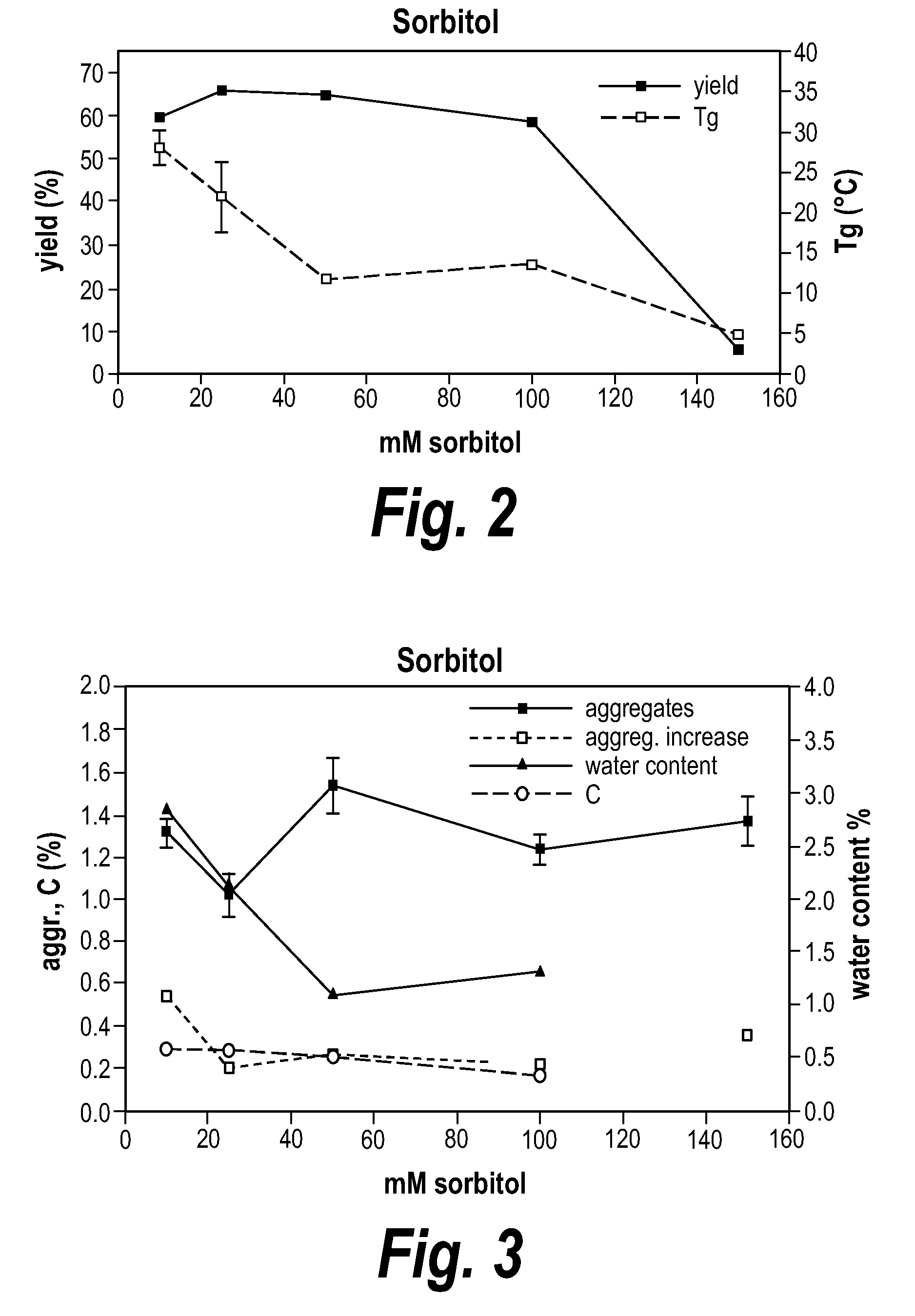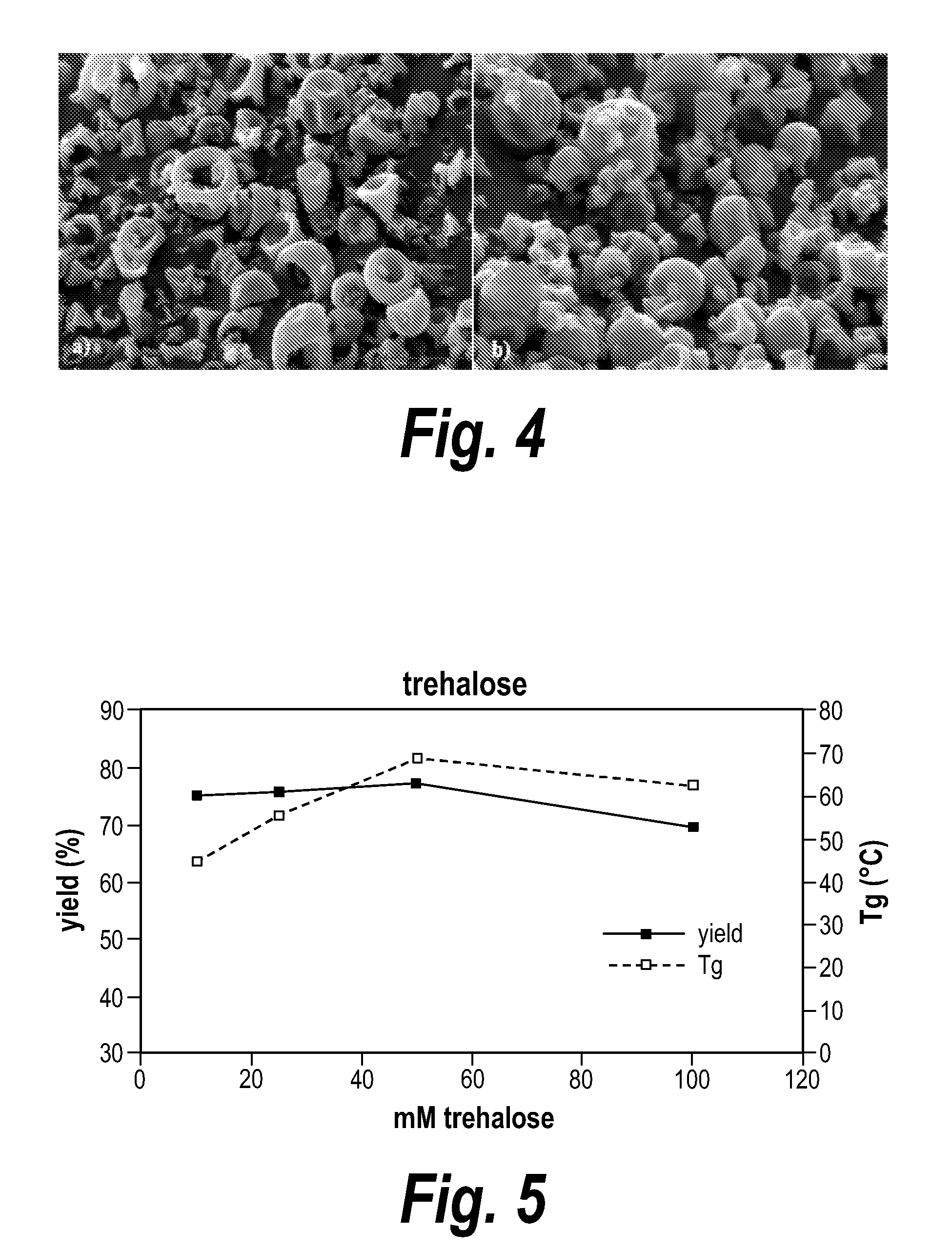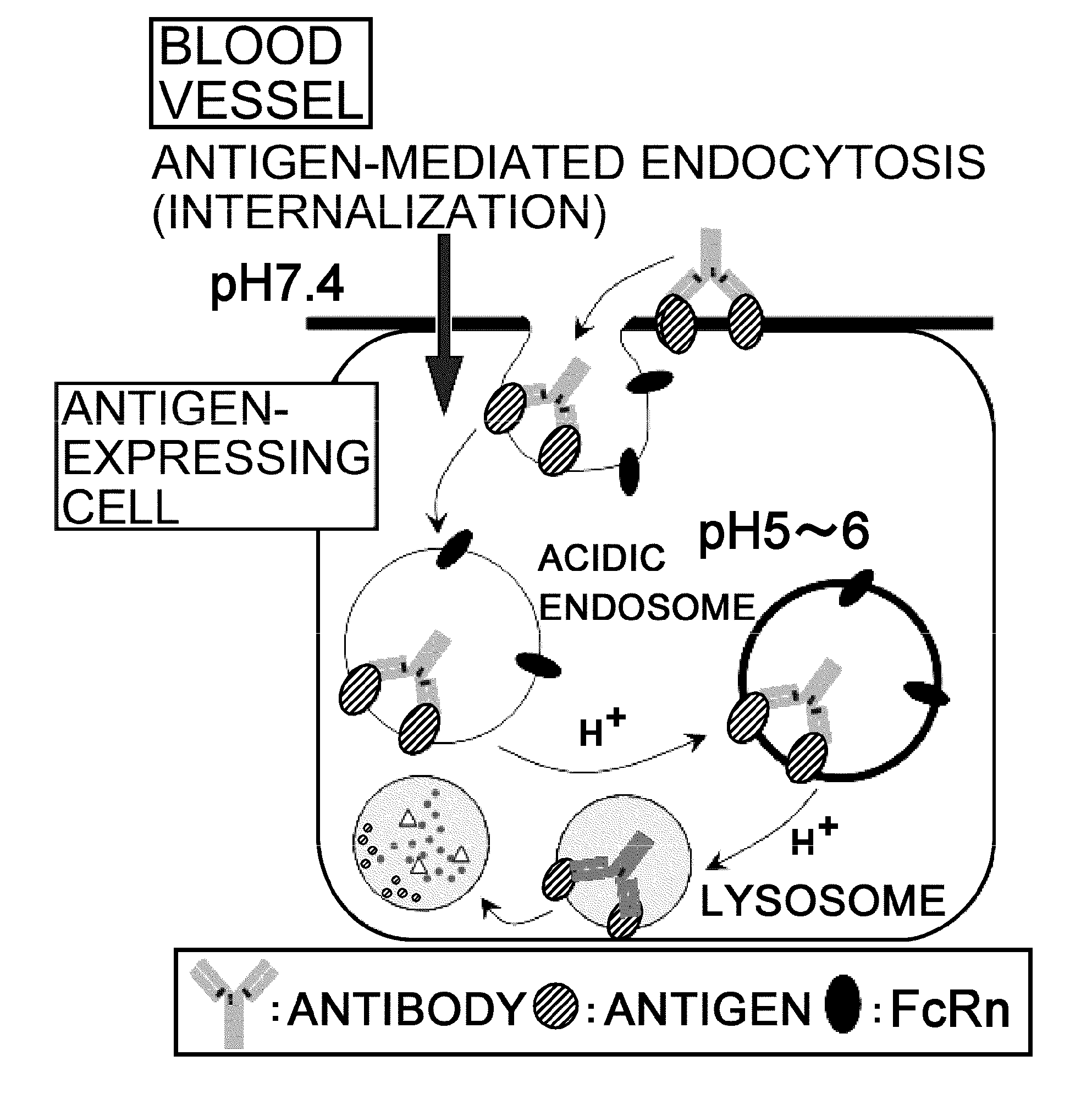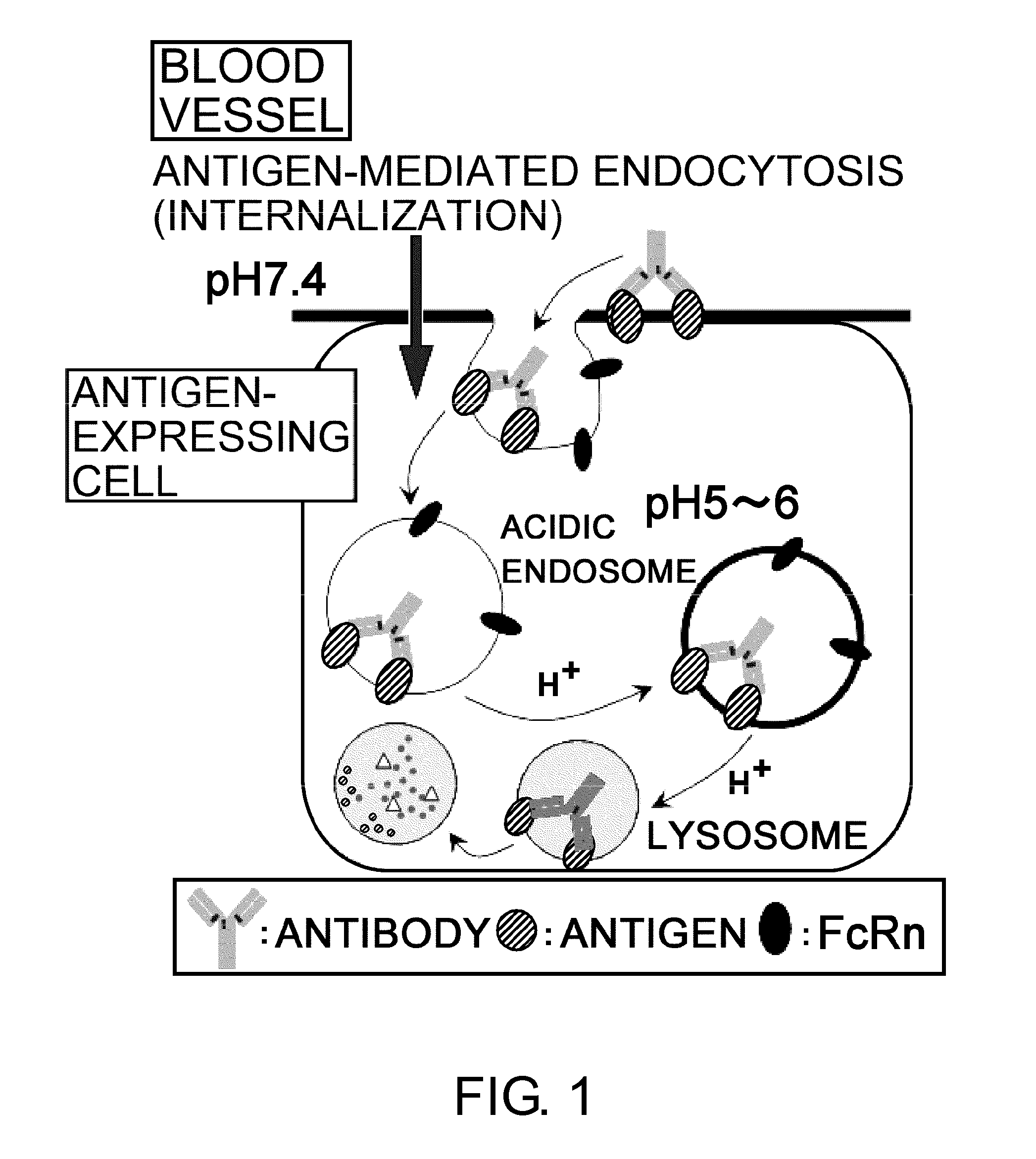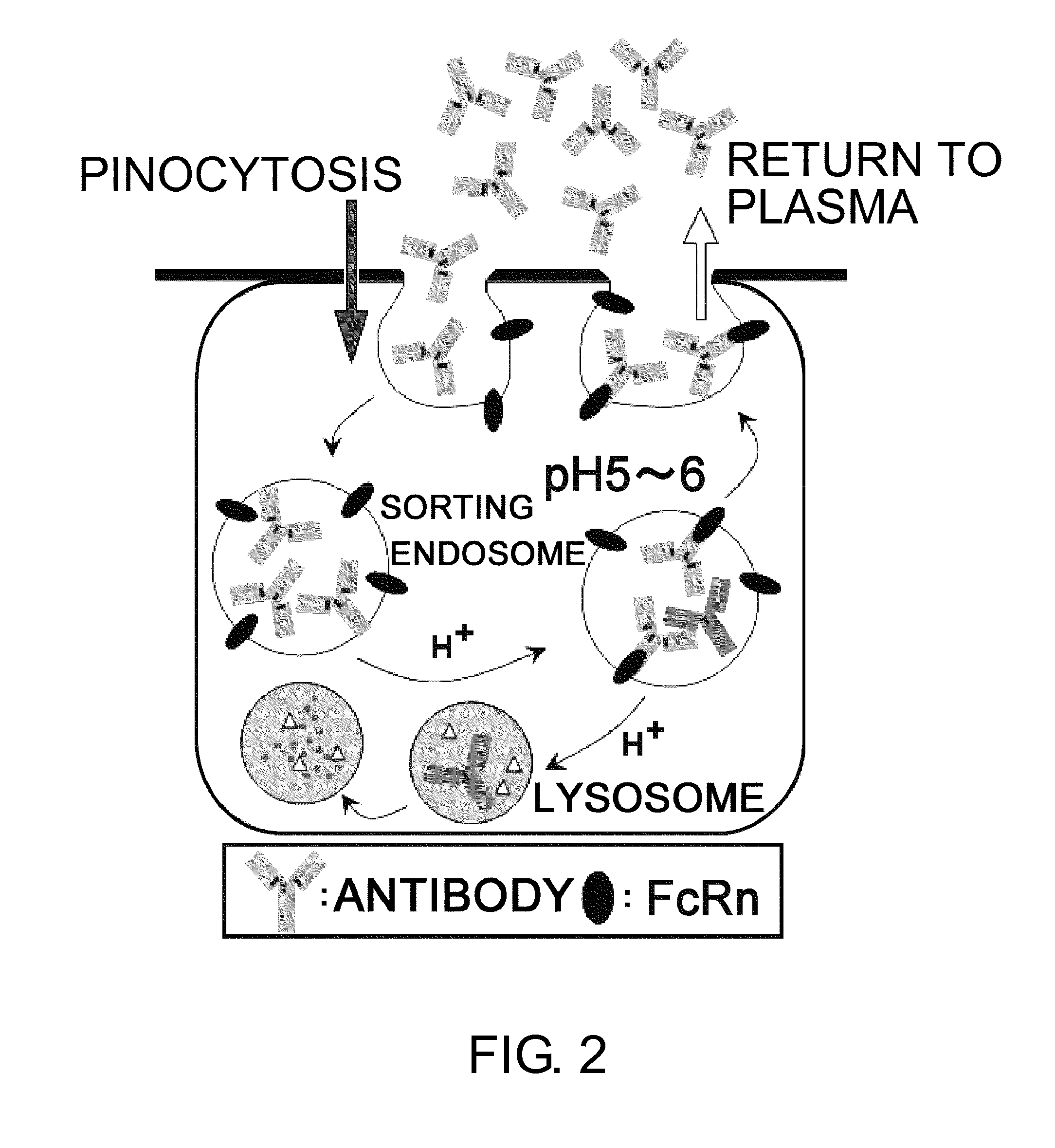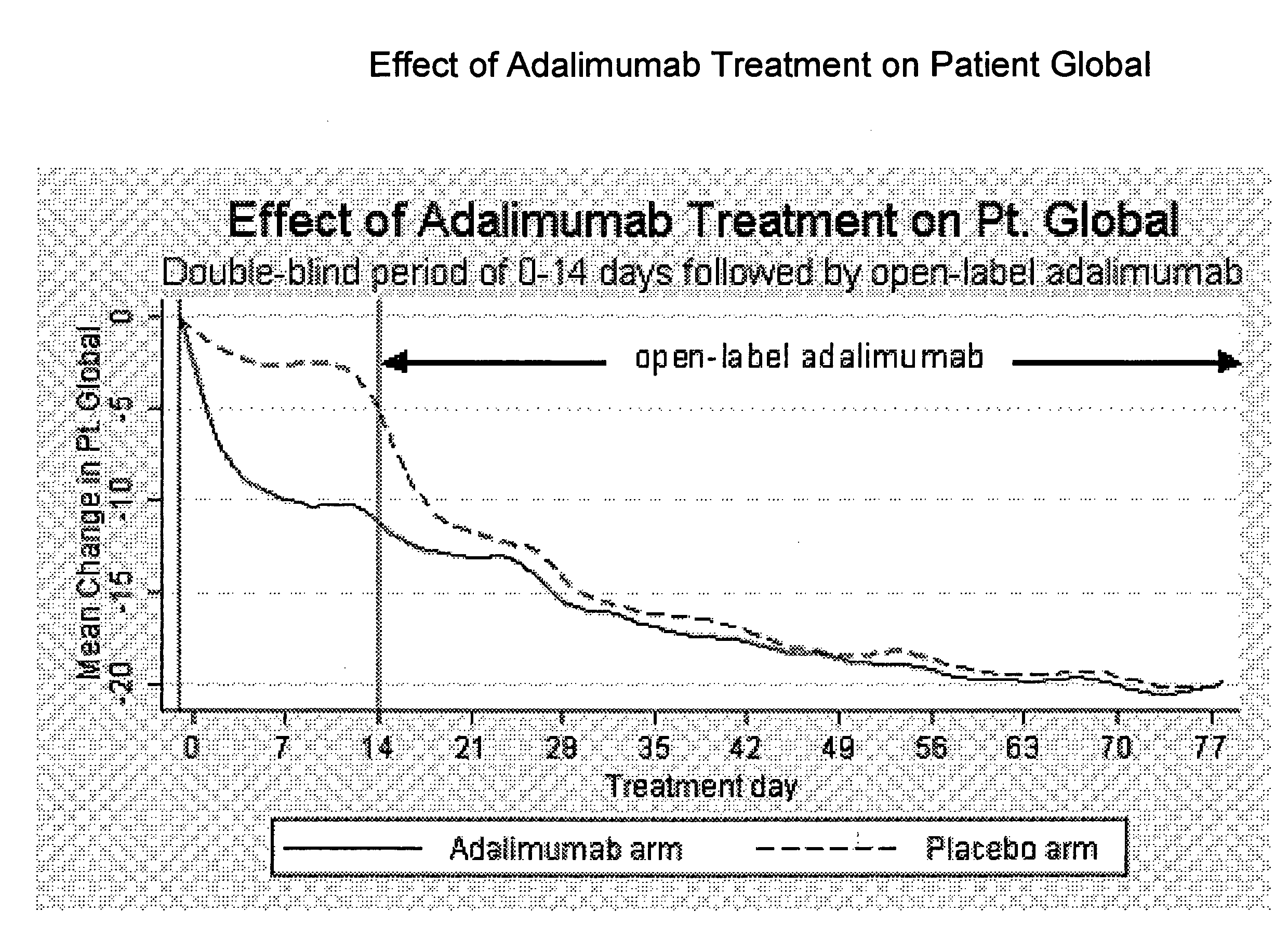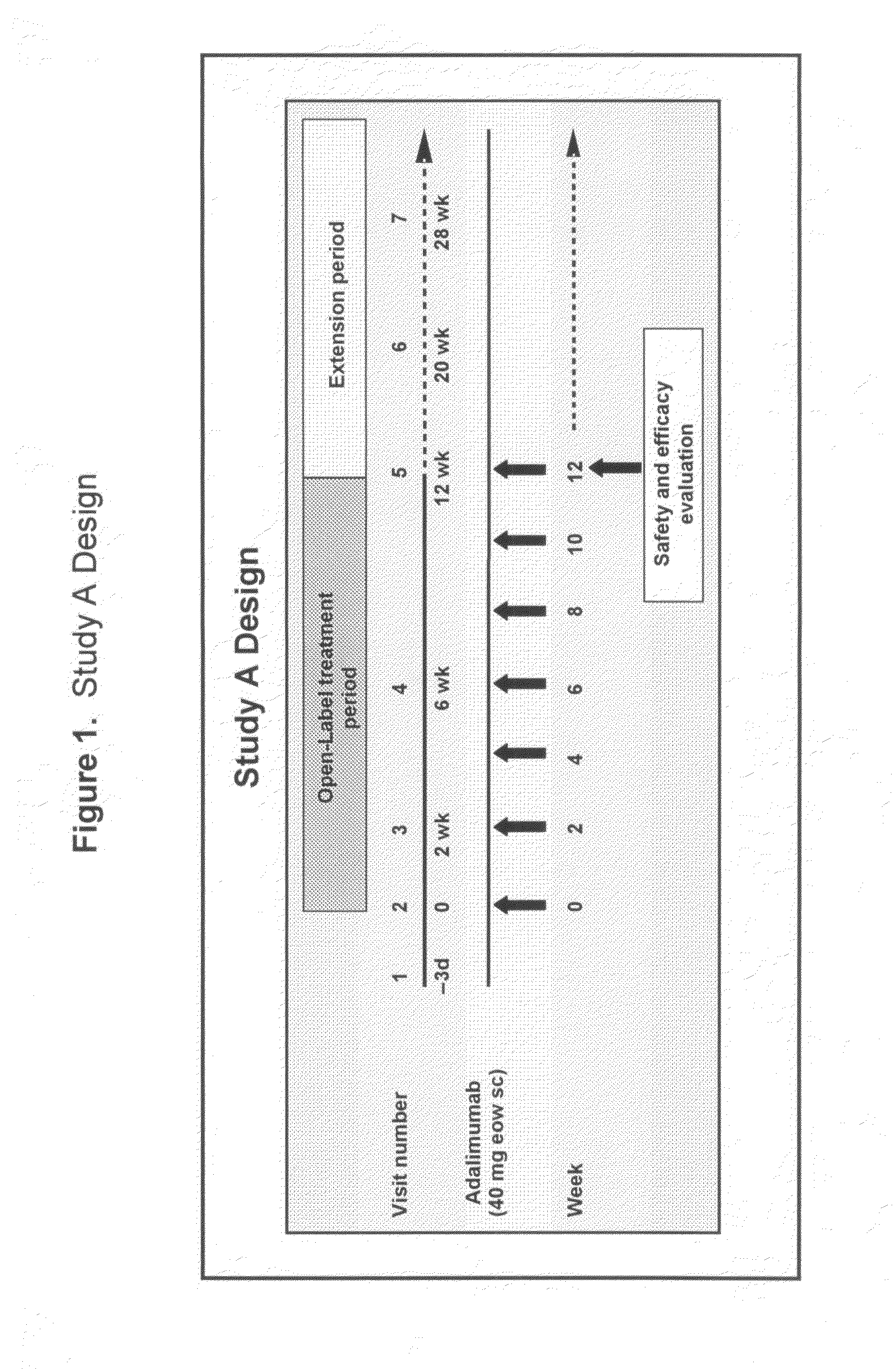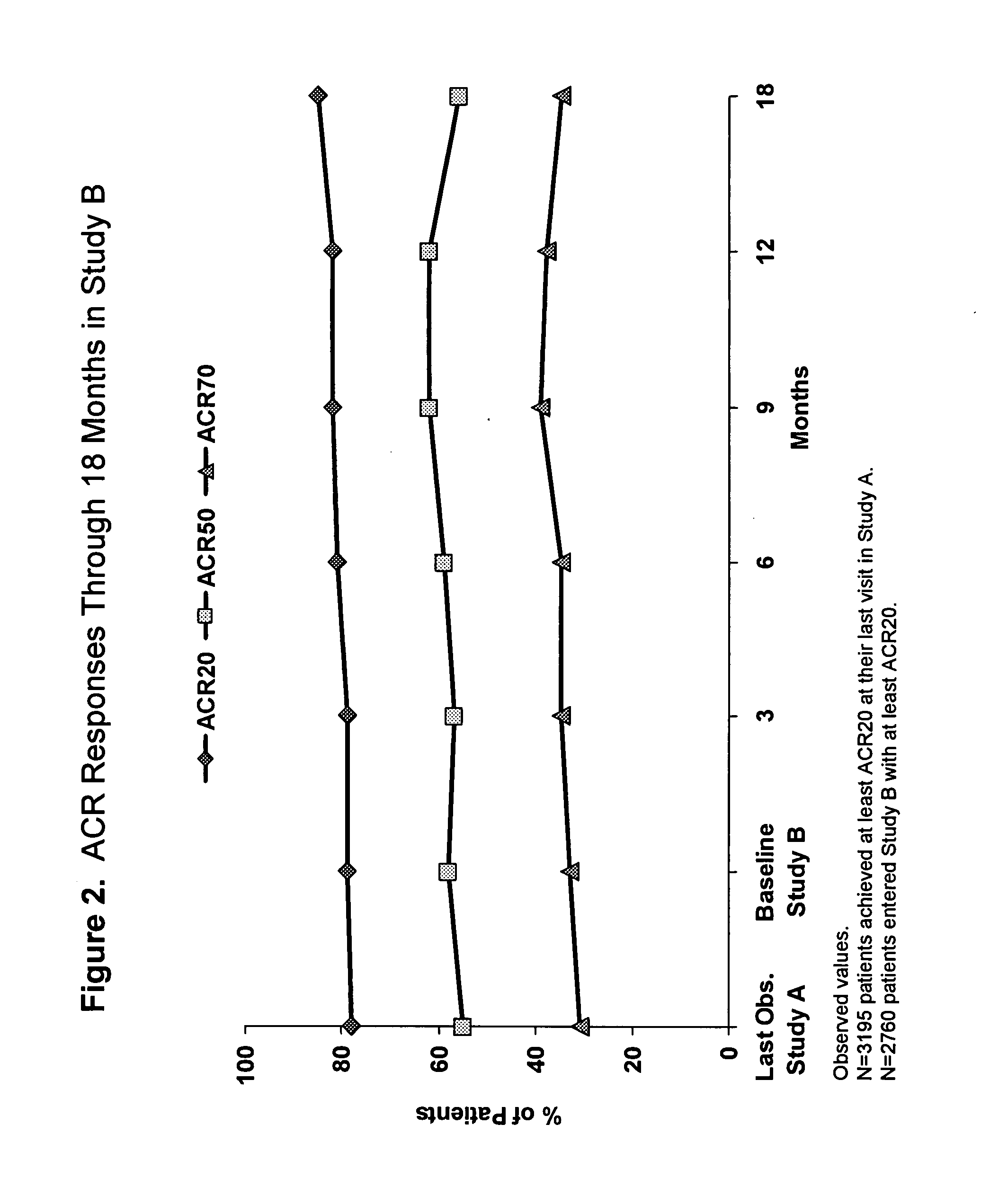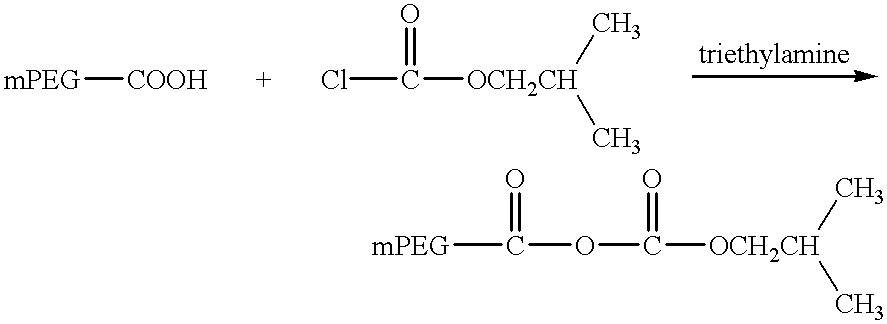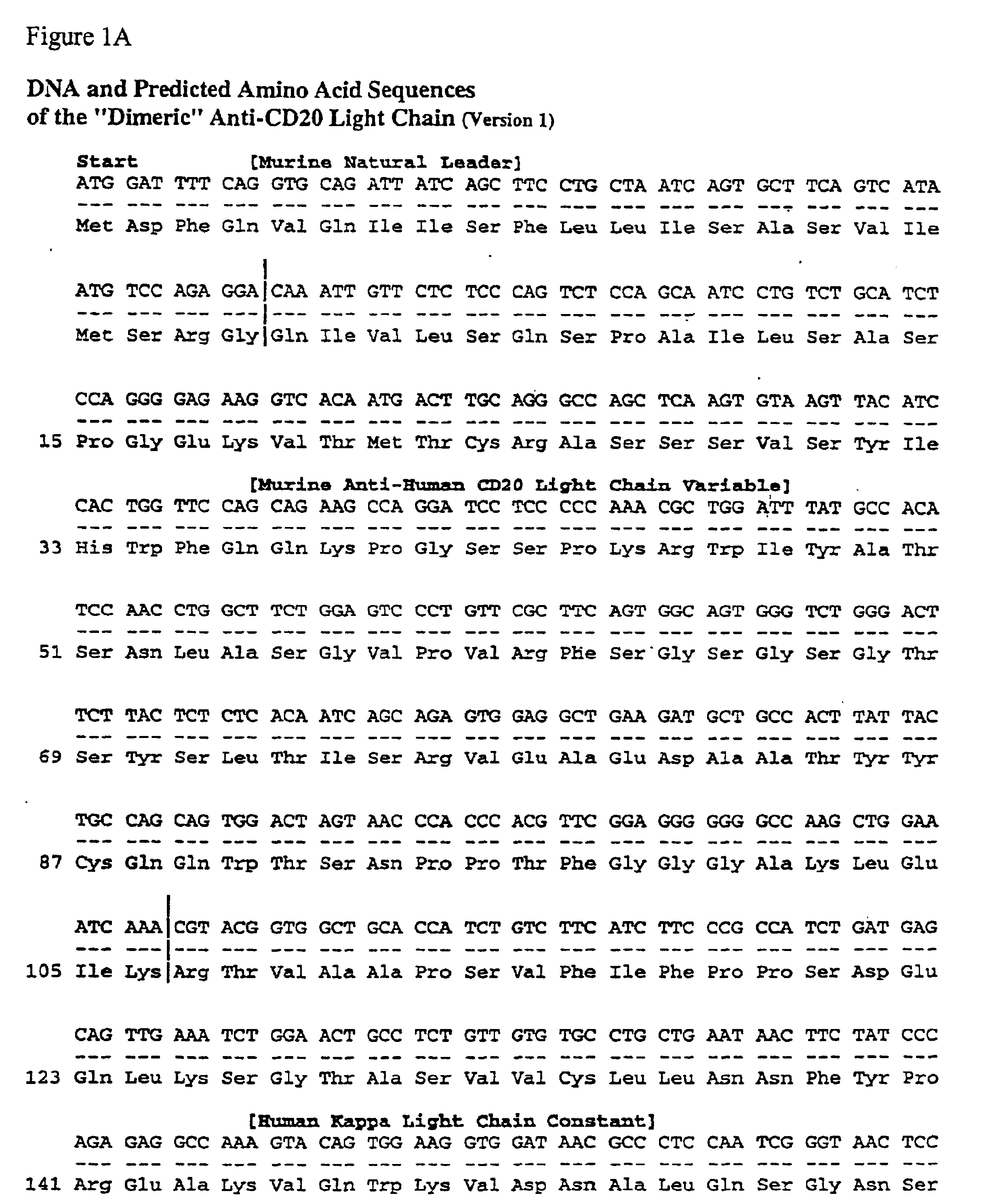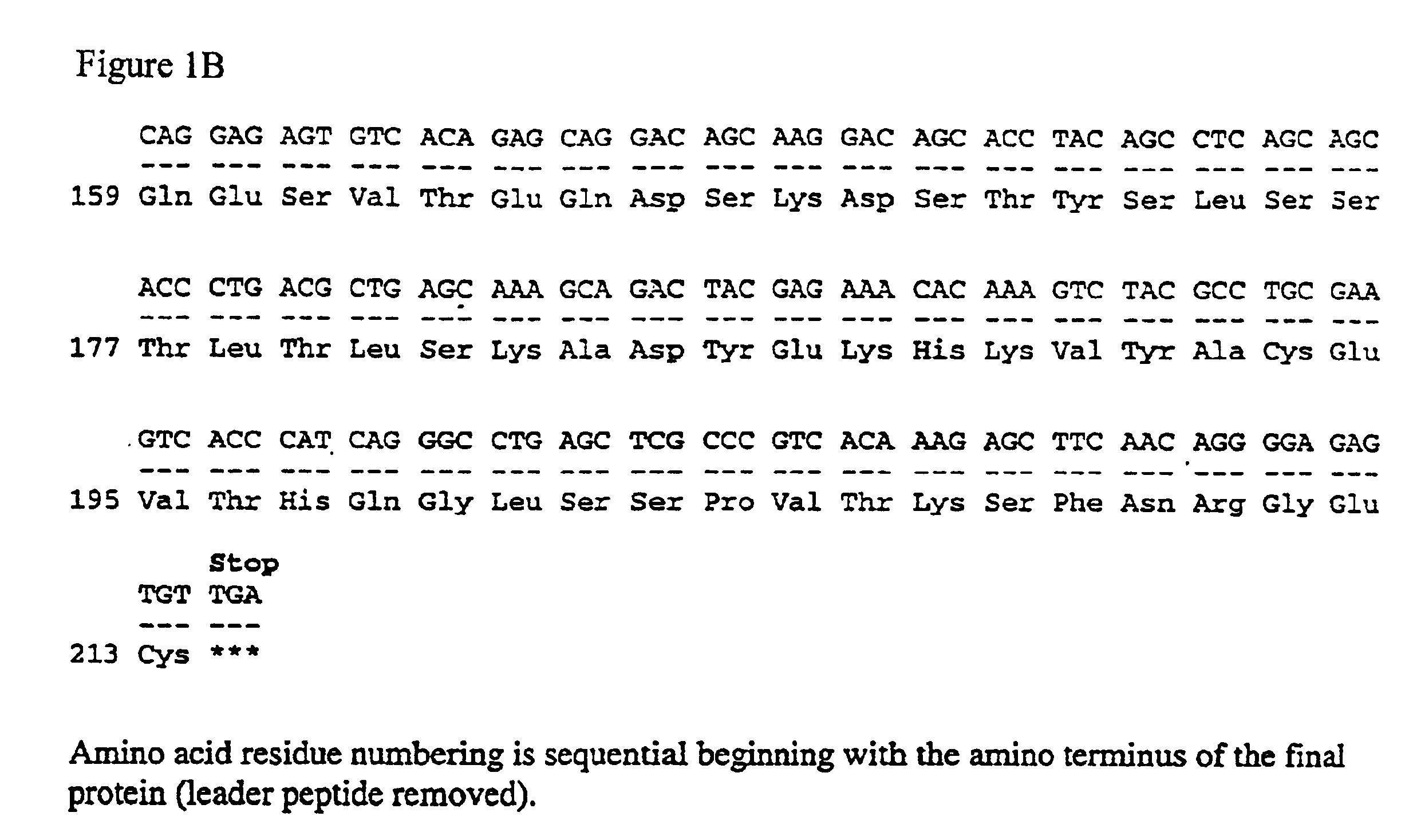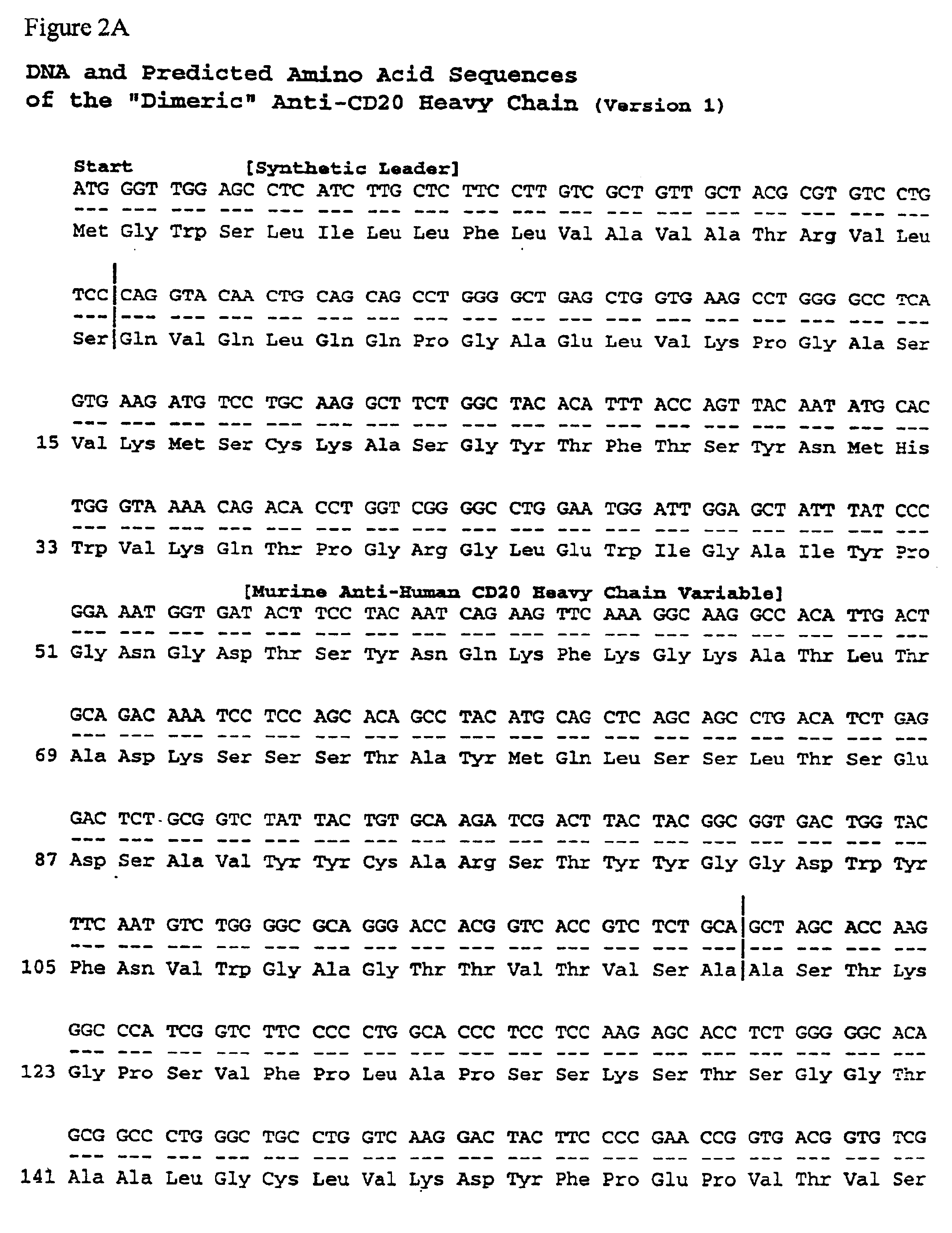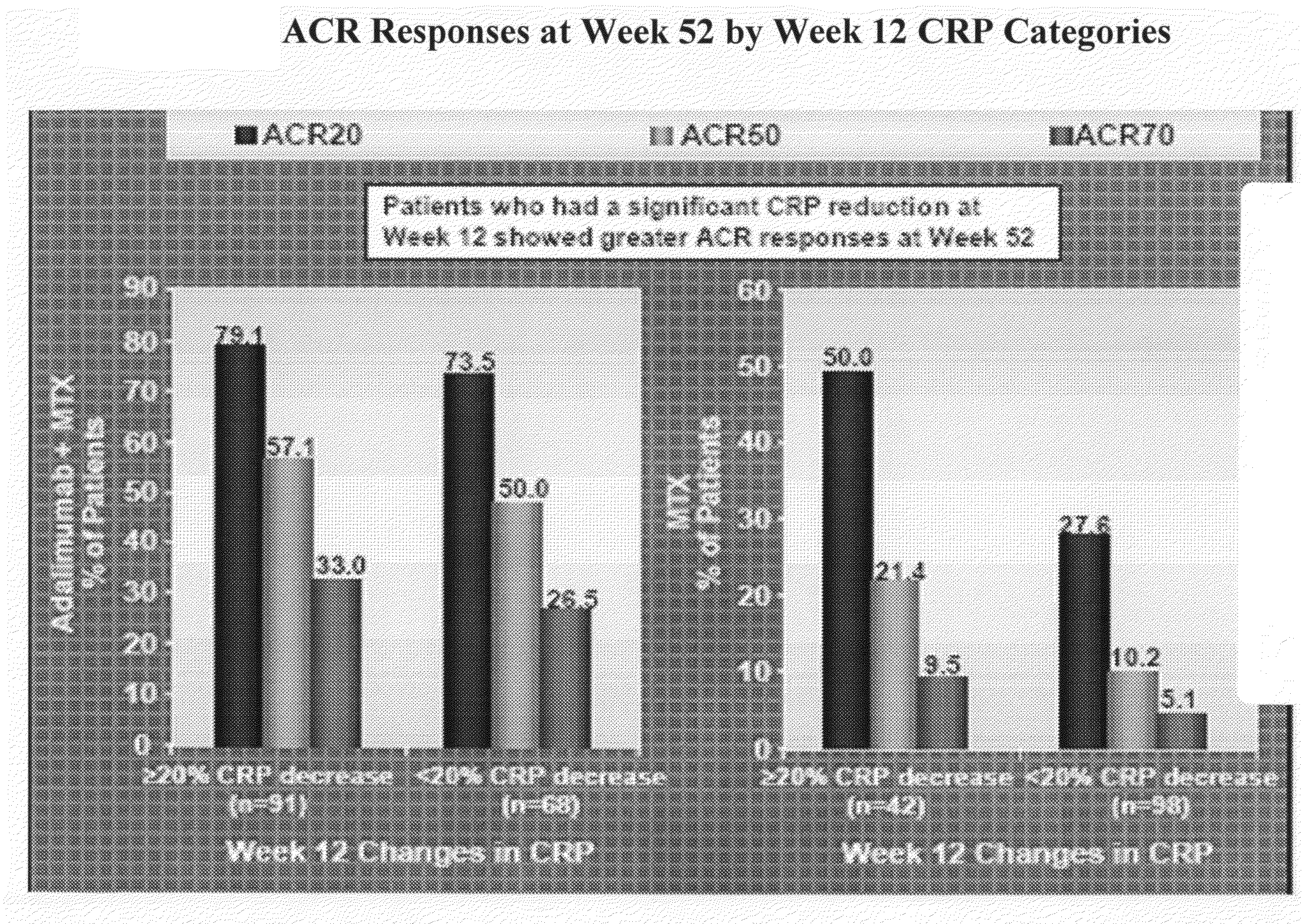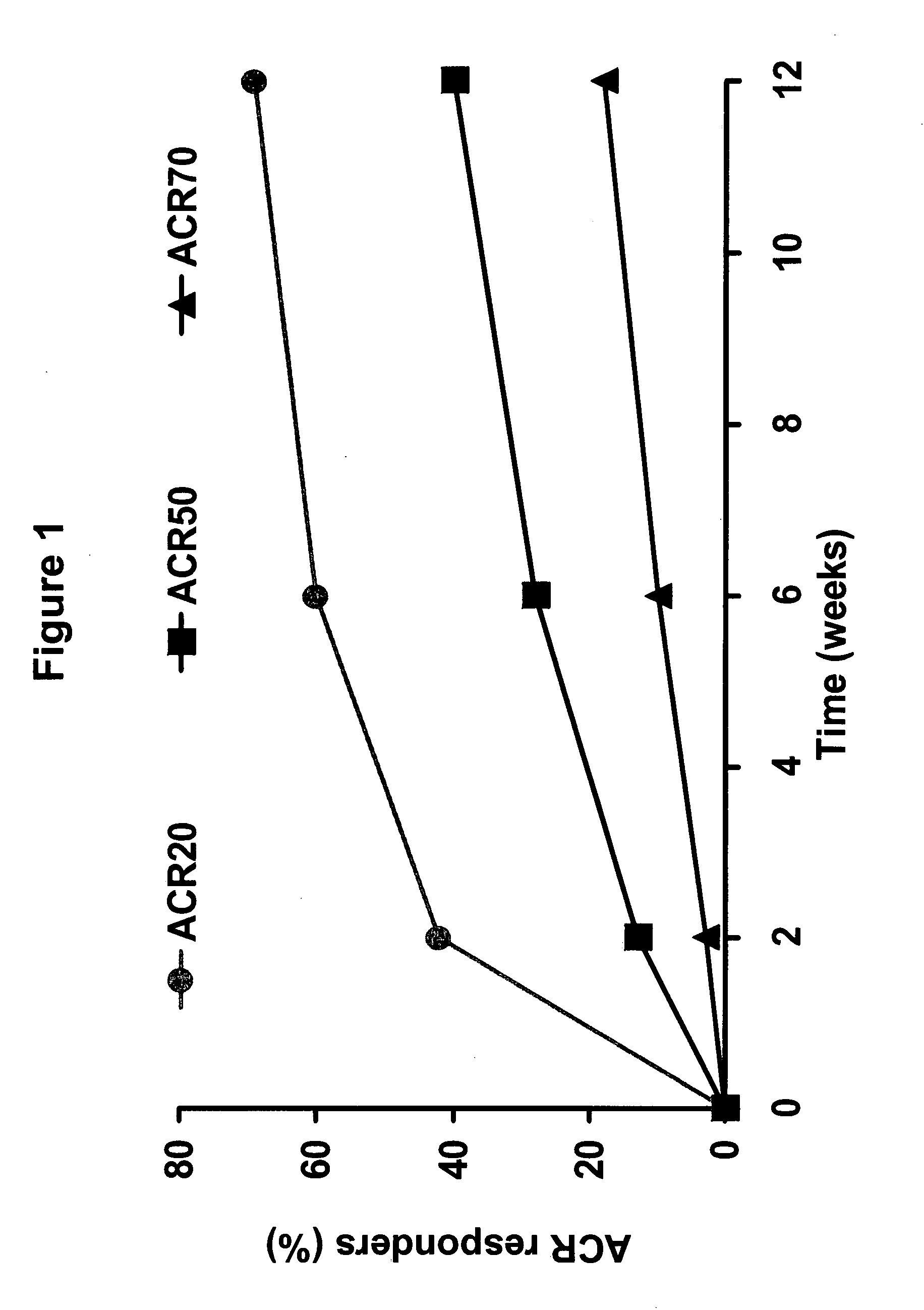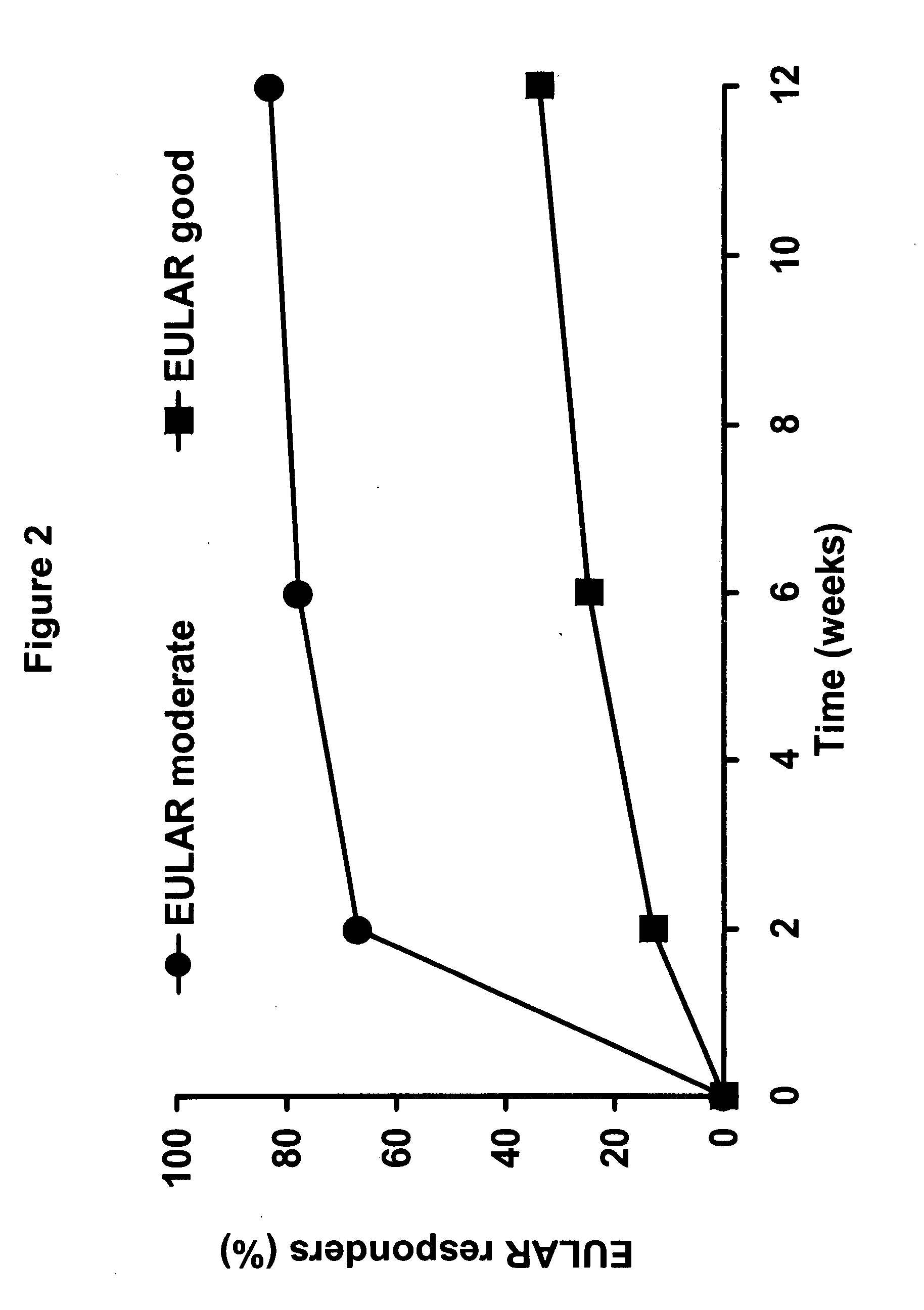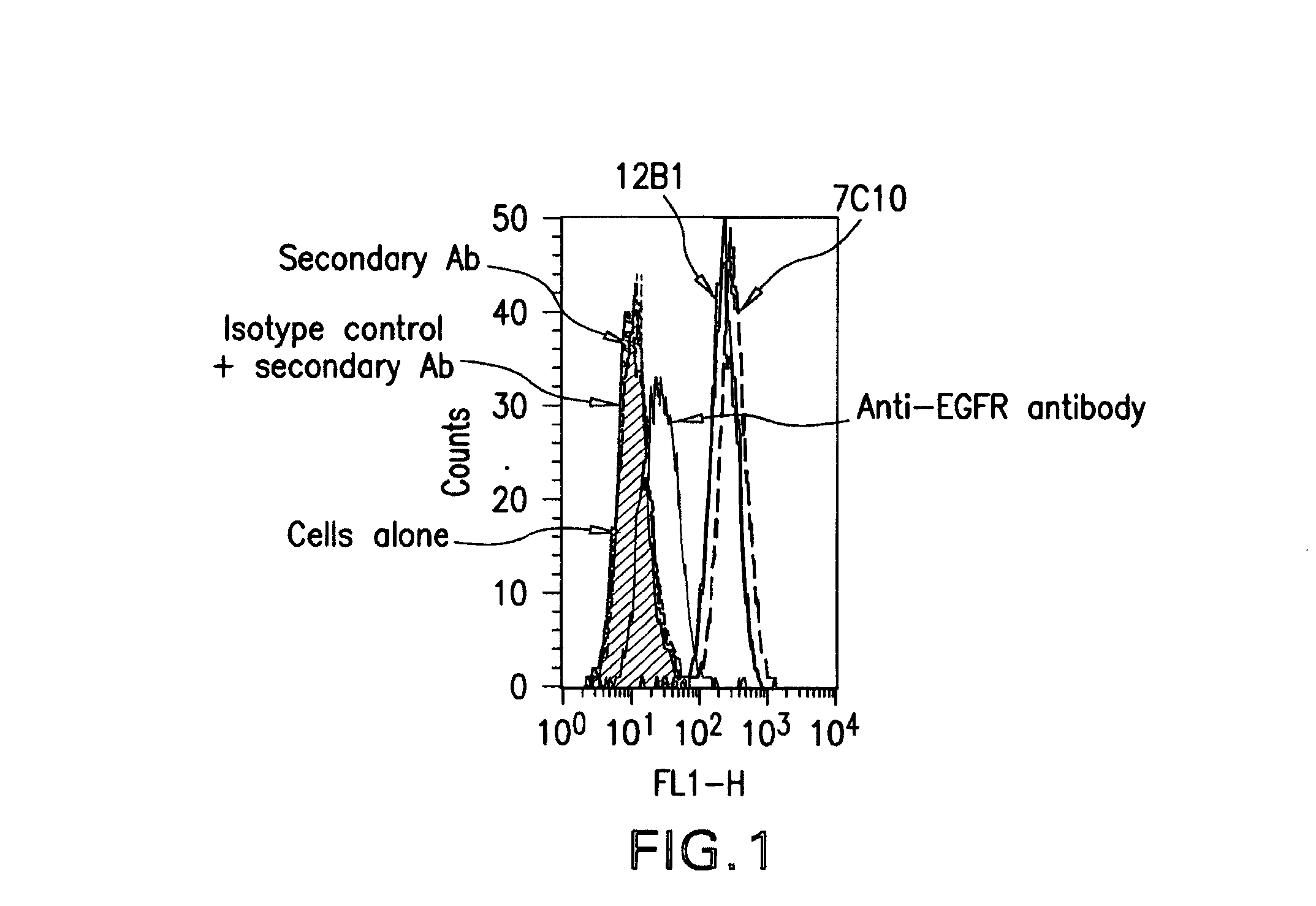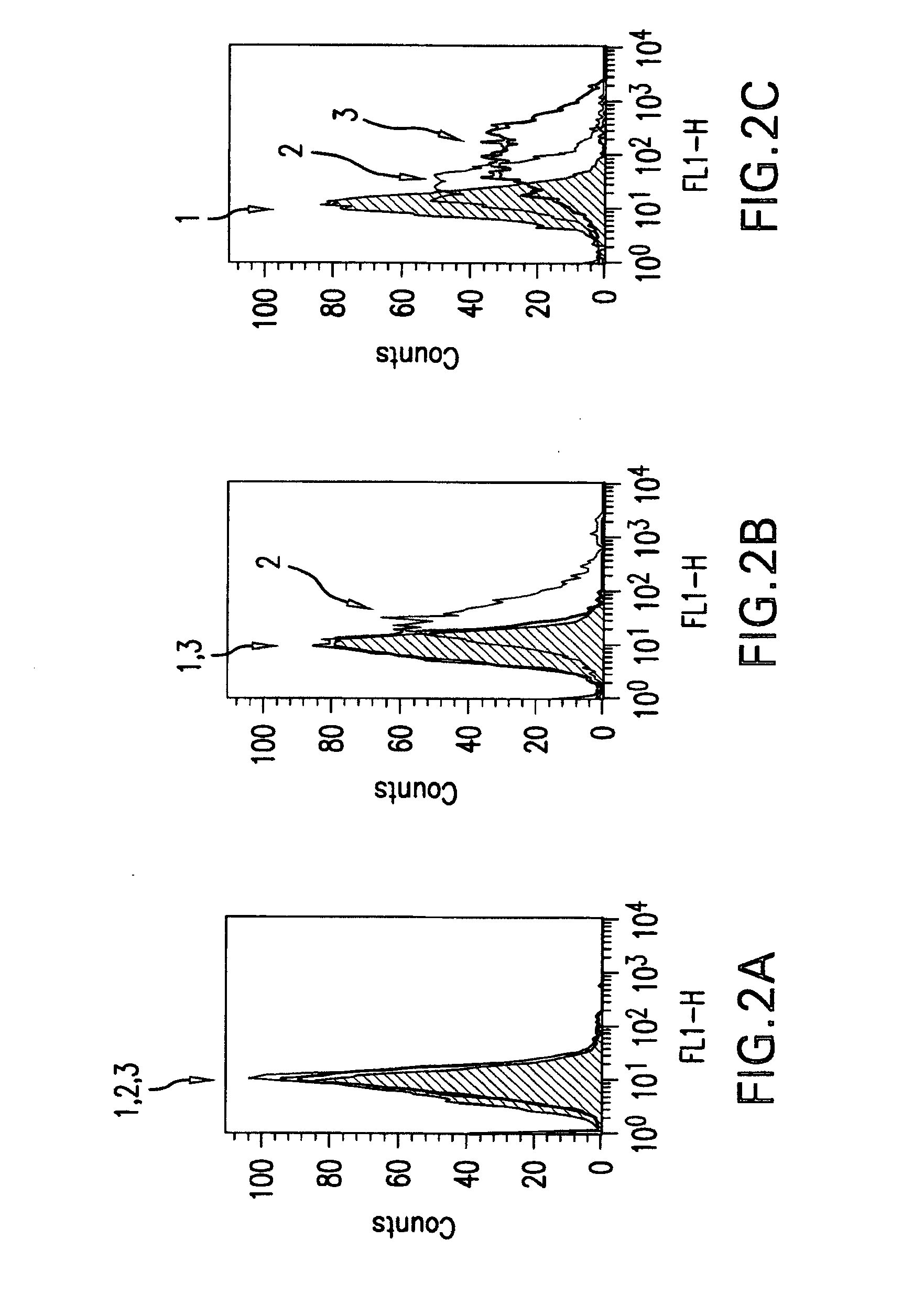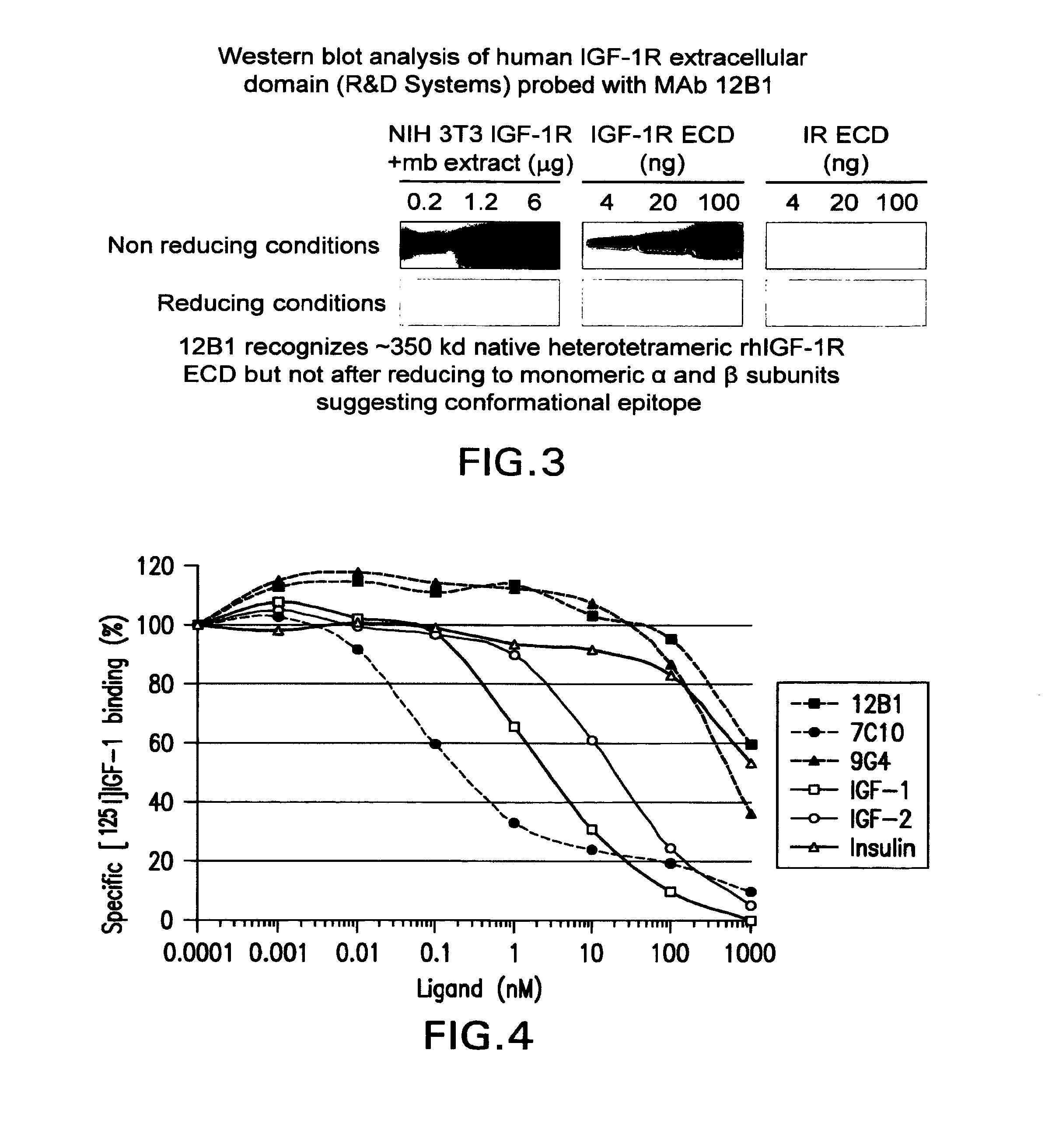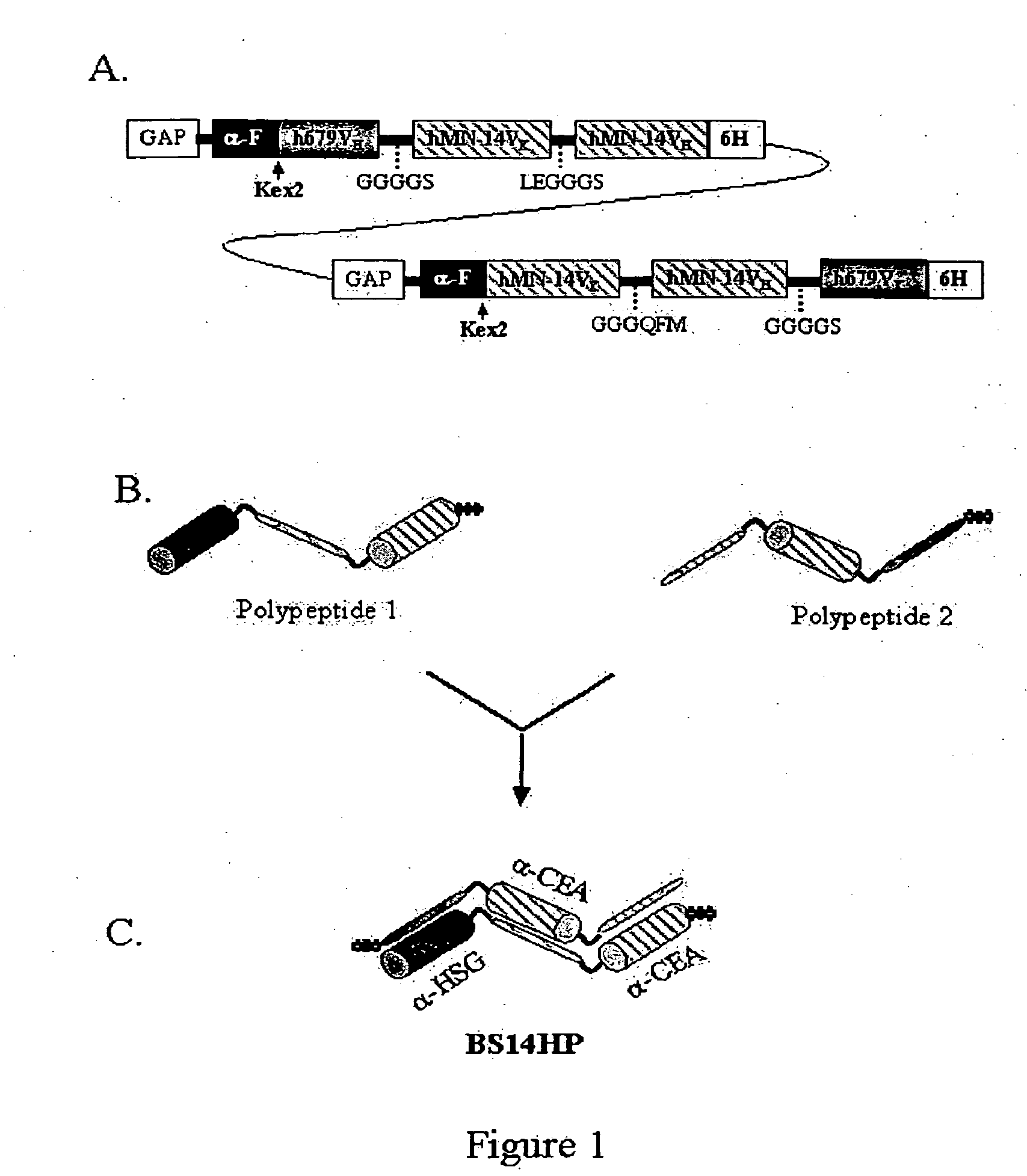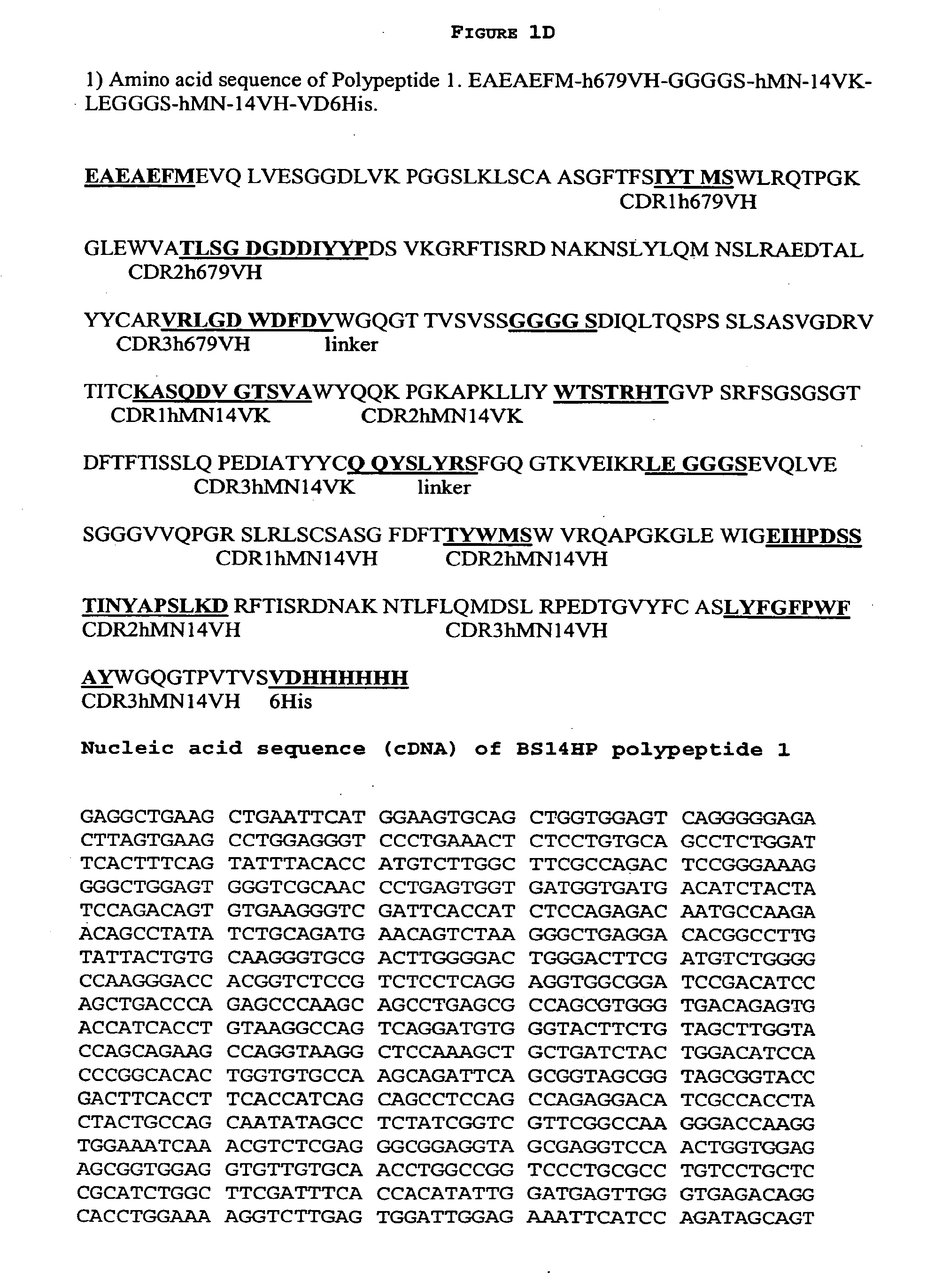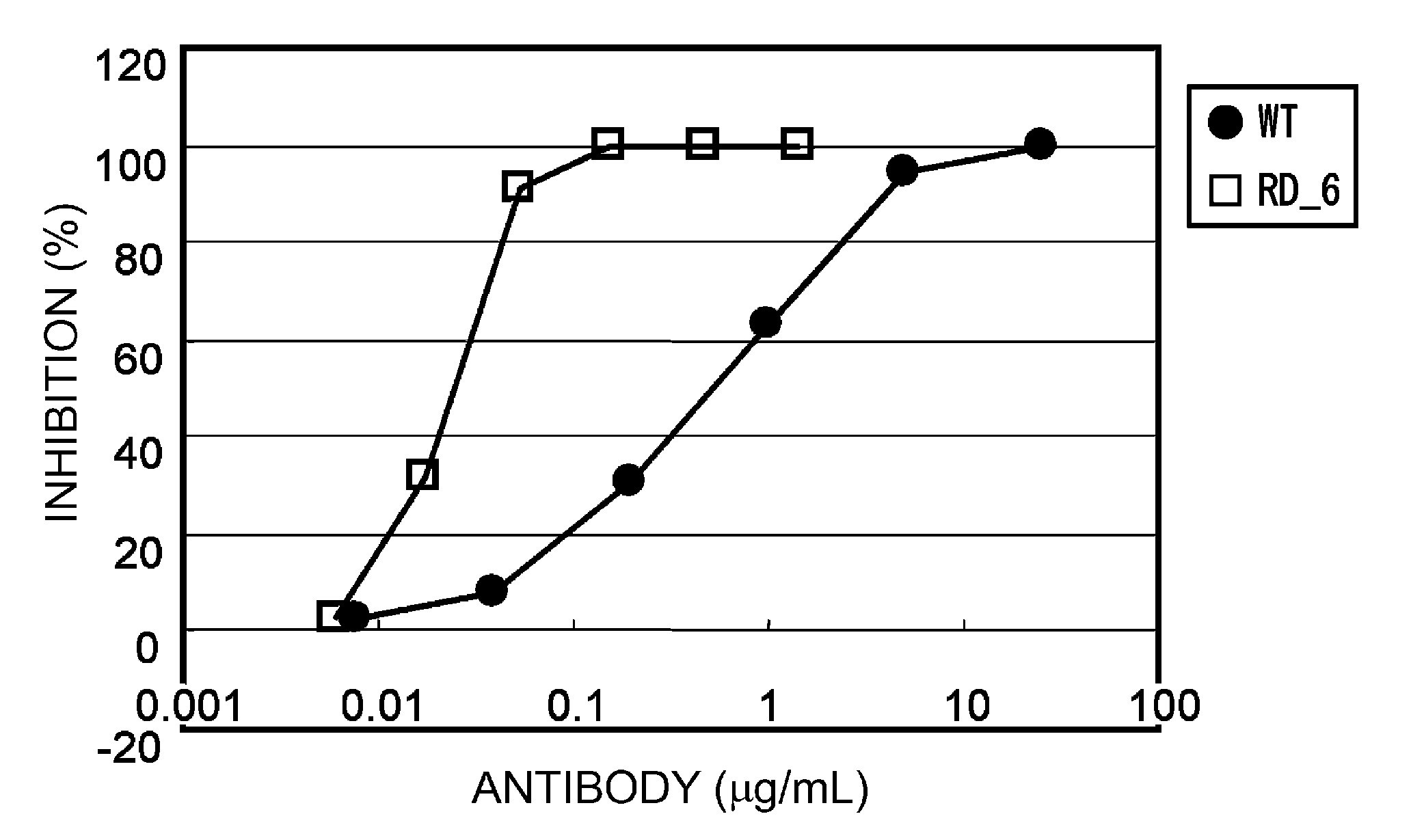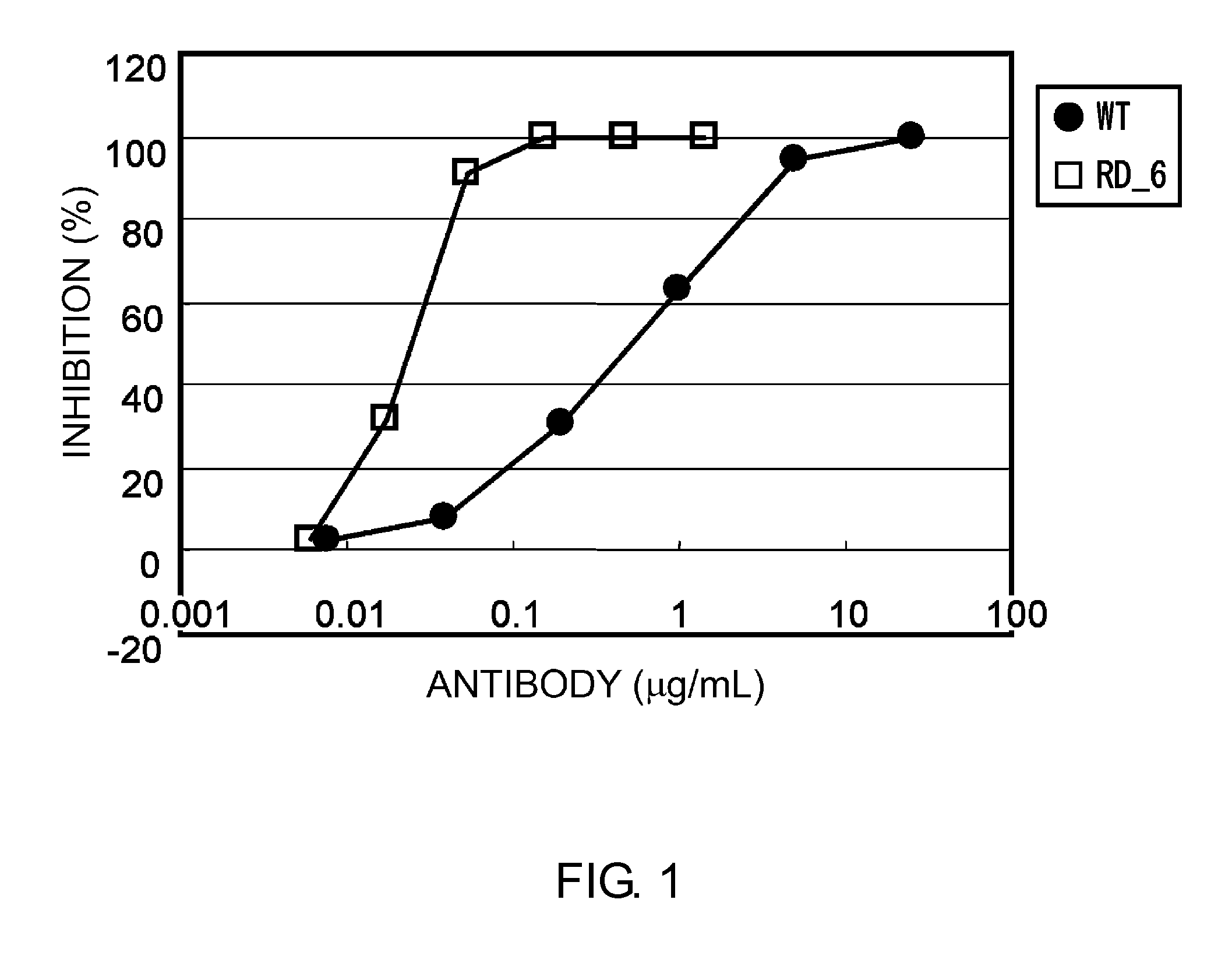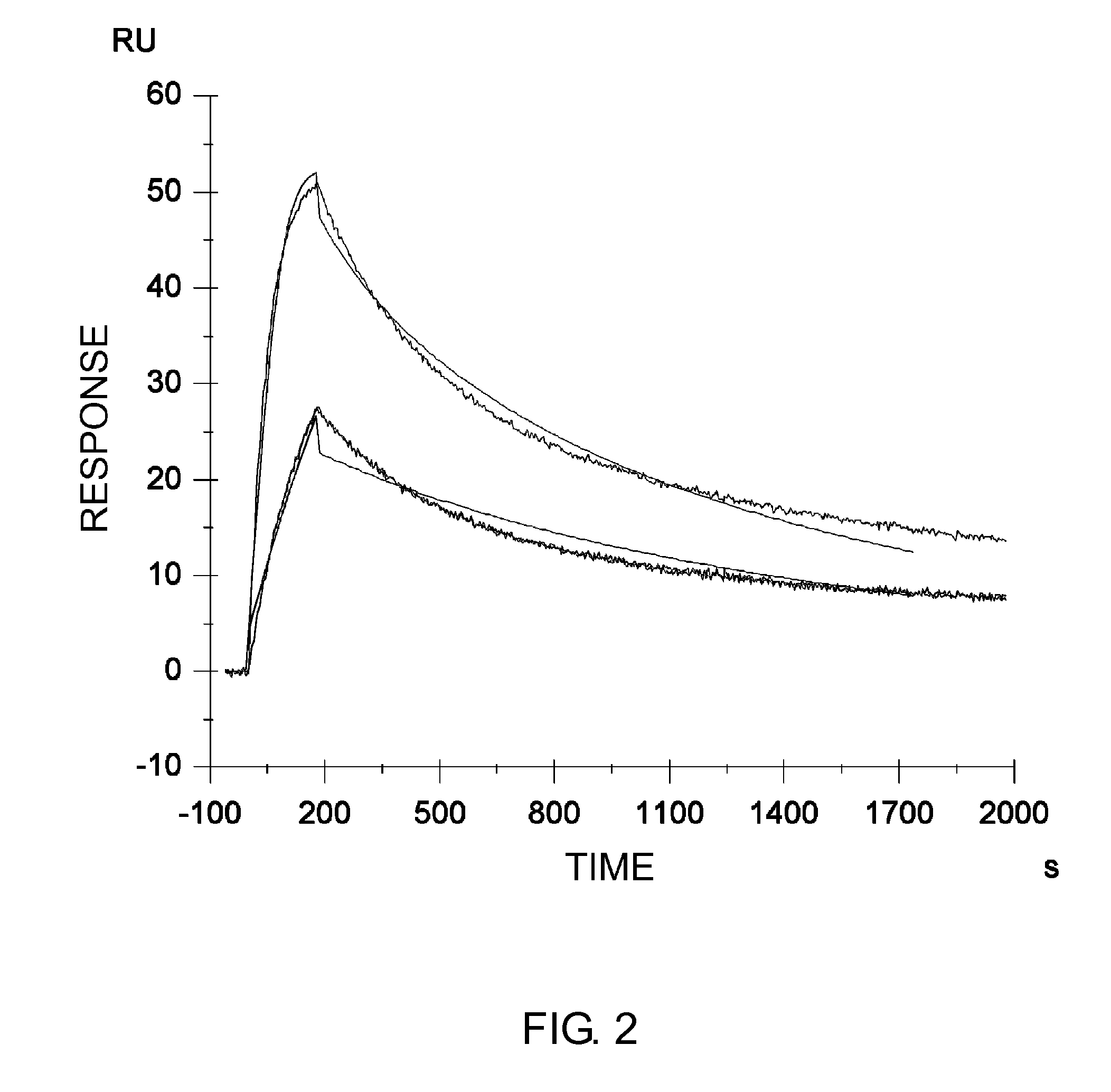Patents
Literature
3183 results about "Antigen binding" patented technology
Efficacy Topic
Property
Owner
Technical Advancement
Application Domain
Technology Topic
Technology Field Word
Patent Country/Region
Patent Type
Patent Status
Application Year
Inventor
A binding antibody is an antibody that has a reaction when combined with an antigen, possibly eliminating it.
Multivalent antibodies and uses therefor
The present application describes engineered antibodies, with three or more functional antigen binding sites, and uses, such as therapeutic applications, for such engineered antibodies.
Owner:GENENTECH INC
Synthetic antibody phage libraries
InactiveUS20050079574A1High-quality target binding characteristicGenerate efficientlyAntibody mimetics/scaffoldsImmunoglobulins against cell receptors/antigens/surface-determinantsHeterologousIntravenous gammaglobulin
The invention provides immunoglobulin polypeptides comprising variant amino acids in CDRs of antibody variable domains. In one embodiment, the polypeptide is a variable domain of a monobody and has a variant CDRH3 region. These polypeptides provide a source of great sequence diversity that can be used as a source for identifying novel antigen binding polypeptides. The invention also provides these polypeptides as fusion polypeptides to heterologous polypeptides such as at least a portion of phage or viral coat proteins, tags and linkers. Libraries comprising a plurality of these polypeptides are also provided. In addition, methods of and compositions for generating and using these polypeptides and libraries are provided.
Owner:GENENTECH INC
Variable domain library and uses
ActiveUS20050266000A1Generate efficientlyQuality improvementImmunoglobulins against growth factorsImmunoglobulins against cell receptors/antigens/surface-determinantsComplementarity determining regionAntigen binding
The invention provides polypeptides comprising a variant heavy chain variable framework domain (VFR). In some embodiments, the amino acids defining the VFR form a loop of an antigen binding pocket. In an embodiment, the polypeptide is a variable domain of a monobody and has a variant VFR. The polypeptide may optionally comprise one or more complementary determining regions (CDRs) of antibody variable domains. In an embodiment, the polypeptide is a variable domain of a monobody and has a variant VFR and one or more variant CDRs. Libraries of polypeptides that include a plurality of different antibody variable domains generated by creating diversity in a VFR, and optionally, one or more CDRs are provided and may be used as a source for identifying novel antigen binding polypeptides that can be used therapeutically or as reagents. The invention also provides fusion polypeptides, compositions, and methods for generating and using the polypeptides and libraries.
Owner:GENENTECH INC
Binding polypeptides with restricted diversity sequences
InactiveUS20070237764A1Small sizeHigh-quality target binding characteristicFermentationVector-based foreign material introductionHeterologousAntigen binding
The invention provides variant CDRs comprising highly restricted amino acid sequence diversity. These polypeptides provide a flexible and simple source of sequence diversity that can be used as a source for identifying novel antigen binding polypeptides. The invention also provides these polypeptides as fusion polypeptides to heterologous polypeptides such as at least a portion of phage or viral coat proteins, tags and linkers. Libraries comprising a plurality of these polypeptides are also provided. In addition, methods of and compositions for generating and using these polypeptides and libraries are provided.
Owner:GENENTECH INC
Use of Chimeric Antigen Receptor-Modified T-Cells to Treat Cancer
ActiveUS20130287748A1Stimulate immune responseVirusesPeptide/protein ingredientsBinding domainAntigen binding
The present invention provides compositions and methods for treating cancer in a human. The invention includes relates to administering a genetically modified T cell to express a CAR wherein the CAR comprises an antigen binding domain, a transmembrane domain, a costimulatory signaling region, and a CD3 zeta signaling domain.
Owner:THE TRUSTEES OF THE UNIV OF PENNSYLVANIA
Human antibodies that bind human IL-12 and methods for producing
InactiveUS6914128B1Avoid interferencePreservationNervous disorderPeptide/protein ingredientsAntigen bindingIn vivo
Human antibodies, preferably recombinant human antibodies, that specifically bind to human interleukin-12 (hIL-12) are disclosed. Preferred antibodies have high affinity for hIL-12 and neutralize hIL-12 activity in vitro and in vivo. An antibody of the invention can be a full-length antibody or an antigen-binding portion thereof. The antibodies, or antibody portions, of the invention are useful for detecting hIL-12 and for inhibiting hIL-12 activity, e.g., in a human subject suffering from a disorder in which hIL-12 activity is detrimental. Nucleic acids, vectors and host cells for expressing the recombinant human antibodies of the invention, and methods of synthesizing the recombinant human antibodies, are also encompassed by the invention.
Owner:ABBVIE DEUTSHLAND GMBH & CO KG
Humanization of antibodies
InactiveUS20050042664A1Limited diversityFast and less labor intensive productionHybrid immunoglobulinsMicrobiological testing/measurementAntigen bindingHumanized antibody
The present invention provides methods of re-engineering or re-shaping an antibody from a first species, wherein the re-engineered or re-shaped antibody does not elicit undesired immune response in a second species, and the re-engineered or re-shaped antibody retains substantially the same antigen binding-ability of the antibody from the first species. In accordance with the present invention, a combinatorial library comprising the CDRs of the antibody from the first species fused in frame with framework regions derived from a second species can be constructed and screened for the desired modified antibody. In particular, the present invention provides methods utilizing low homology acceptor antibody frameworks for efficiently humanizing an antibody or a fragment thereof. The present invention also provides antibodies produced by the methods of the invention.
Owner:MEDIMMUNE LLC
Polyvalent protein complex
The invention provides for a polyvalent protein complex (PPC) comprising two polypeptide chains generally arranged laterally to one another. Each polypeptide chain typically comprises 3 or 4 “v-regions”, which comprise amino acid sequences capable of forming an antigen binding site when matched with a corresponding v-region on the opposite polypeptide chain. Up to about 6 “v-regions” can be used on each polypeptide chain. The v-regions of each polypeptide chain are connected linearly to one another and may be connected by interspersed linking regions. When arranged in the form of the PPC, the v-regions on each polypeptide chain form individual antigen binding sites.
Owner:IBC PHARMACEUTICALS INC
Anti-pd-l1 antibodies and uses thereof
ActiveUS20140341917A1Function increaseUpregulate cell-mediated immune responsesOrganic active ingredientsPeptide/protein ingredientsAntigen Binding FragmentAntigen binding
The present application relates to anti-PD-L1 antibodies or antigen binding fragments thereof, nucleic acid encoding the same, therapeutic compositions thereof, and their use to enhance T-cell function to upregulate cell-mediated immune responses and for the treatment of T cell dysfunctional disorders, such as tumor immunity, for the treatment of and cancer.
Owner:MERCK PATENT GMBH
Human Antibodies to PD-1
ActiveUS20150203579A1Rescue T-cell signalingInhibit tumor growthNervous disorderAntipyreticFc(alpha) receptorDisease
The present invention provides antibodies that bind to the T-cell co-inhibitor programmed death-1 (PD-1) protein, and methods of use. In various embodiments of the invention, the antibodies are fully human antibodies that bind to PD-1. In certain embodiments, the present invention provides multi-specific antigen-binding molecules comprising a first binding specificity that binds to PD-1 and a second binding specificity that binds to an autoimmune tissue antigen, another T-cell co-inhibitor, an Fc receptor, or a T-cell receptor. In some embodiments, the antibodies of the invention are useful for inhibiting or neutralizing PD-1 activity, thus providing a means of treating a disease or disorder such as cancer or a chronic viral infection. In other embodiments, the antibodies are useful for enhancing or stimulating PD-1 activity, thus providing a means of treating, for example, an autoimmune disease or disorder.
Owner:REGENERON PHARM INC
Fully human antibodies against human 4-1BB
Fully human antibodies and antigen-binding portions thereof that bind to human 4-1BB and that allow binding of human 4-1BB to a human 4-1BB ligand. In one aspect, the antibody is an IgG4 antibody. Also provided is a method for treating a disease in a subject comprising administering a therapeutically effective amount of the antibody to said subject.
Owner:BRISTOL MYERS SQUIBB CO
Stable high protein concentration formulations of human Anti-tnf-alpha-antibodies
InactiveUS20100278822A1Suitable viscosityIncrease concentrationAntibacterial agentsSenses disorderHigh concentrationPolyol
The invention provides a liquid pharmaceutical formulation which does not include NaCl and comprises more than 20 mg of a polyol and at least about 100 mg / mL of a human anti-TNF-alpha antibody, or antigen-binding portion thereof. The invention provides a high concentration antibody formulation having long-term stability and advantageous characteristics for subcutaneous administration.
Owner:ABBVIE BIOTECHNOLOGY LTD
RS7 antibodies
InactiveUS7238785B2Diagnosing and treating malignancyRadioactive preparation carriersImmunoglobulins against cell receptors/antigens/surface-determinantsEpitopeBinding site
Owner:IMMUNOMEDICS INC
Single chain fc, methods of making and methods of treatment
InactiveUS20080260738A1Improve solubilityImprove stabilityAnimal cellsFungiAntigen bindingStereochemistry
The present invention relates generally to scFc molecules. The scFc molecules comprise at least two Fc regions and at least one linker, and can be produced in a variety of single chain configurations. The scFc molecules can further comprise at least one binding entity and / or at least one functional molecule. Binding entities can be fused to the scFc molecule in a variety of configurations. The present invention also relates generally to methods for making such molecules and methods for their use. The scFc molecules provided herein can be recombinantly produced. Also provided are monovalent forms of the scFc molecules that have an equivalent or superior ADCC and / or CDC response than do bivalent molecules targeting the same antigens. Provided herein are improved antigen binding compositions. Methods for using the scFc molecules of the present inventions are provided
Owner:ZYMOGENETICS INC
Methods of modifying antibodies for purification of bispecific antibodies
ActiveUS20090263392A1Efficient purificationFunction increaseSugar derivativesAntibody ingredientsAntiendomysial antibodiesBinding site
The present inventors devised methods for efficiently purifying bispecific antibodies using a chromatography column based on the difference in isoelectric points between the H chains of two types of antibodies, wherein the difference is introduced by modifying the amino acids present on the surface of the antibody variable regions of two types of antibodies that constitute a bispecific antibody. Furthermore, the inventors devised methods for efficiently purifying bispecific antibodies using a chromatography column by linking respective antigen binding sites (heavy chain variable regions) to the antibody constant regions having different isoelectric points, and then coexpressing these antibodies.
Owner:CHUGAI PHARMA CO LTD
Anti-cd3 antibodies, bispecific antigen-binding molecules that bind cd3 and cd20, and uses thereof
ActiveUS20140088295A1Useful in treatmentFacilitates directed killing (cell lysis) of the targetedImmunoglobulins against cell receptors/antigens/surface-determinantsAntibody ingredientsCD20Disease
The present invention provides antibodies that bind to CD3 and methods of using the same. According to certain embodiments, the antibodies of the invention bind human CD3 with high affinity and induce human T cell proliferation. The invention includes antibodies that bind CD3 and induce T cell-mediated killing of tumor cells. According to certain embodiments, the present invention provides bispecific antigen-binding molecules comprising a first antigen-binding domain that specifically binds human CD3, and a second antigen-binding molecule that specifically binds human CD20. In certain embodiments, the bispecific antigen-binding molecules of the present invention are capable of inhibiting the growth of B-cell tumors expressing CD20. The antibodies and bispecific antigen-binding molecules of the invention are useful for the treatment of diseases and disorders in which an upregulated or induced targeted immune response is desired and / or therapeutically beneficial. For example, the antibodies of the invention are useful for the treatment of various cancers as well as other CD20-related diseases and disorders.
Owner:REGENERON PHARM INC
Human antibodies that bind human TNFα
Human antibodies, preferably recombinant human antibodies, that specifically bind to human tumor necrosis factor a (hTNFα) are disclosed. These antibodies have high affinity for hTNFα (e.g., Kd=10−8 M or less), a slow off rate for hTNFα dissociation (e.g., Koff=10−3 sec−1 or less) and neutralize hTNFα activity in vitro and in vivo. An antibody of the invention can be a full-length antibody or an antigen-binding portion thereof. The antibodies, or antibody portions, of the invention are useful for detecting hTNFα and for inhibiting hTNFα activity, e.g., in a human subject suffering from a disorder in which hTNFα activity is detrimental. Nucleic acids, vectors and host cells for expressing the recombinant human antibodies of the invention, and methods of synthesizing the recombinant human antibodies, are also encompassed by the invention.
Owner:ABBVIE BIOTECHNOLOGY LTD
Bispecific antibody devoid of Fc region and method of treatment using same
InactiveUS20060263367A1Efficient productionAvoids undesirable effector functionHybrid immunoglobulinsImmunoglobulins against cell receptors/antigens/surface-determinantsBispecific antibodyAntigen binding
Bispecific antibody derivatives are disclosed which are comprised of a first region which binds to a first antigen and a second region which binds to a second antigen different from the first antigen. The first and second regions of the bispecific antibody are each stabilized by an additional internal disulfide bridge, and connected by a flexible polypeptide linker. The bispecific antibody is devoid of an Fc portion and is encoded as a single chain-sequence.
Owner:FRIEDRICH ALEXANDER UNIV ERLANGEN NURNBERG
Antibodies to insulin-like growth factor I receptor
Owner:AMGEN FREMONT INC +1
Powdered protein compositions and methods of making same
InactiveUS20090226530A1Easy to moveWide concentration rangeAntibacterial agentsPowder deliveryBiotechnologyProtein composition
Owner:ABBVIE DEUTSHLAND GMBH & CO KG
Antigen-binding molecule capable of binding to two or more antigen molecules repeatedly
InactiveUS20110111406A1Pharmacokinetics of the antigen-binding molecule can be improvedGood effectSsRNA viruses negative-senseCompound screeningHalf-lifeAntigen binding
The present inventors discovered that antibodies having weaker antigen-binding activity at the early endosomal pH in comparison with that at the pH of plasma are capable of binding to multiple antigen molecules with a single antibody molecule, have long half-lives in plasma, and have improved durations of time in which they can bind to antigen.
Owner:CHUGAI PHARMA CO LTD
Uses and compositions for treatment of rheumatoid arthritis
ActiveUS20080166348A1Relieve symptomsInhibit progressSsRNA viruses negative-senseBiocideAntigen bindingRheumatoid arthritis
The invention provides methods, uses and compositions for the treatment of rheumatoid arthritis. The invention describes methods and uses for treating rheumatoid arthritis wherein a TNFα inhibitor, such as a human TNFα antibody, or antigen-binding portion thereof. Also described are methods for determining the efficacy of a TNFα inhibitor for treatment of rheumatoid arthritis in a subject.
Owner:ABBVIE BIOTECHNOLOGY LTD
Single-chain antigen-binding proteins capable of glycosylation, production and uses thereof
The present invention relates to single-chain antigen-binding molecules capable of glycosylation. Compositions of, genetic constructions coding for, and methods for producing monovalent and multivalent single-chain antigen-binding molecules capable of glycosylation are described and claimed. Composition of, genetic constructions coding for, and methods for producing glycosylated monovalent and multivalent single-chain antigen-binding molecules capable of polyalkylene oxide conjugation are described and claimed. The invention also relates to methods for producing a polypeptide having increased glycosylation and the polypeptide produced by the described method. Uses resulting from the multifunctionality of a glycosylated / polyalkylene oxide conjugated antigen-binding protein are also described and claimed.
Owner:ENZON PHARM INC
Production of tetravalent antibodies
The present invention relates to a novel process for the preparation of biologically active antibody dimers in a pharmaceutically acceptable composition. The dimers can be composed of two antibody molecules having the same antigen binding specificity and linked through reducible, disulfide, or a non-reducible thioether, bond (homodimer). Alternatively, the dimers can be composed of two different antibody molecules having binding specificity for two distinct antigens (heterodimer). These dimers are useful for inducing hyper-cross-linking of membrane antigens. The present invention further relates to the use of biologically active antibody dimers for the preferential killing or inhibition of selected cell populations in the treatment of diseases such as cancer and autoimmune disorders.
Owner:BIOGEN INC
Method of treating depression using a TNF-alpha antibody
InactiveUS20070041905A1Inhibiting TNFα activityImprove depressionSalicyclic acid active ingredientsBiocideAntiendomysial antibodiesAntigen binding
The invention describes methods of treating depression comprising administering a TNFα antibody, such as a human TNFα antibody. The invention also provides a method for treating depression comprising inhibiting TNFα activity in a subject suffering from depression by systemically administering to the subject a human anti-TNFα antibody, or an antigen-binding portion thereof, such that depression is treated. Also described is a method for the treatment or alleviation of depression or other affective disorders comprising administering an amount of an anti-inflammatory agent effective to treat or alleviate depression or other affective disorder to a subject in need thereof, wherein said anti-inflammatory agent down-regulates peripheral cytokine levels to thereby treat or alleviate depression or other affective disorder.
Owner:HOFFMAN REBECCA S +3
Uses and compositions for treatment of rheumatoid arthritis
InactiveUS20080131374A1Improve the quality of lifeBiocideAntipyreticAntigen bindingEarly rheumatoid arthritis
The invention provides methods, uses and compositions for the treatment of rheumatoid arthritis. The invention describes methods and uses for treating rheumatoid arthritis wherein a TNFα inhibitor, such as a human TNFα antibody, or antigen-binding portion thereof. Also described are methods for determining the efficacy of a TNFα inhibitor for treatment of rheumatoid arthritis in a subject.
Owner:MEDICH JOHN R +7
Igf-1r specific antibodies useful in the detection and diagnosis of cellular proliferative disorders
InactiveUS20130084243A1High affinityUseful in detectionAnimal cellsIn-vivo radioactive preparationsDiseaseSingle-Chain Antibodies
The present invention relates to mammalian antibodies, designated 12B1 and antigen-binding portions thereof that specifically bind to insulin-like growth factor I receptor (IGF-IR), preferably human IGF-IR. Also included are chimeric, bispecific, derivatized, single chain antibodies derived from the antibodies disclosed herein. Nucleic acid molecules encoding the mammalian antibodies as well as methods of use thereof are also disclosed. Also included are pharmaceutical compositions comprising these antibodies and methods of using the antibodies and compositions thereof for treatment and diagnosis of pathological hyperproliferative oncogenic disorders associated with expression of IGf-1R.
Owner:GOETSCH LILIANE +4
Polyvalent protein complex
The invention provides for a polyvalent protein complex (PPC) comprising two polypeptide chains generally arranged laterally to one another. Each polypeptide chain typically comprises 3 or 4 “v-regions”, which comprise amino acid sequences capable of forming an antigen binding site when matched with a corresponding v-region on the opposite polypeptide chain. Up to about 6 “v-regions” can be used on each polypeptide chain. The v-regions of each polypeptide chain are connected linearly to one another and may be connected by interspersed linking regions. When arranged in the form of the PPC, the v-regions on each polypeptide chain form individual antigen binding sites.
Owner:IBC PHARMACEUTICALS INC
Variant IgG3 Rituxan and therapeutic use thereof
InactiveUS20020128448A1Prevent and reduce proliferation of cellReduce and prevent proliferationImmunoglobulins against cell receptors/antigens/surface-determinantsAntibody ingredientsCD20Antigen binding
Monoclonal anti-human CD20 antigen binding antibodies containing human IgG3 constant domains are provided. These antibodies possess effector functions that render them well suited for use in therapeutic methods, especially treatments wherein inhibition of B cell function or B cell number is therapeutically desirable.
Owner:BIOGEN INC
Method of Modifying Isoelectric Point of Antibody Via Amino Acid Substitution in CDR
ActiveUS20110076275A1Enhanced antigen-neutralizing activityImprove retentionSugar derivativesImmunoglobulins against cell receptors/antigens/surface-determinantsComplementarity determining regionAmino acid substitution
The present inventors provide methods for modifying the isoelectric point of an antibody while retaining its antigen-binding activity, comprising modifying the charge of at least one exposable amino acid residue on the surface of the complementarity determining region (CDR). The present invention also provides methods for purifying multispecific antibodies, comprising modifying isoelectric point, and methods for improving the plasma pharmacokinetics of antibodies, comprising modifying isoelectric point. The present invention further provides antibodies with a modified isoelectric point, pharmaceutical compositions comprising the antibodies as an active ingredient, and methods for producing the antibodies and compositions.
Owner:CHUGAI PHARMA CO LTD
Features
- R&D
- Intellectual Property
- Life Sciences
- Materials
- Tech Scout
Why Patsnap Eureka
- Unparalleled Data Quality
- Higher Quality Content
- 60% Fewer Hallucinations
Social media
Patsnap Eureka Blog
Learn More Browse by: Latest US Patents, China's latest patents, Technical Efficacy Thesaurus, Application Domain, Technology Topic, Popular Technical Reports.
© 2025 PatSnap. All rights reserved.Legal|Privacy policy|Modern Slavery Act Transparency Statement|Sitemap|About US| Contact US: help@patsnap.com
